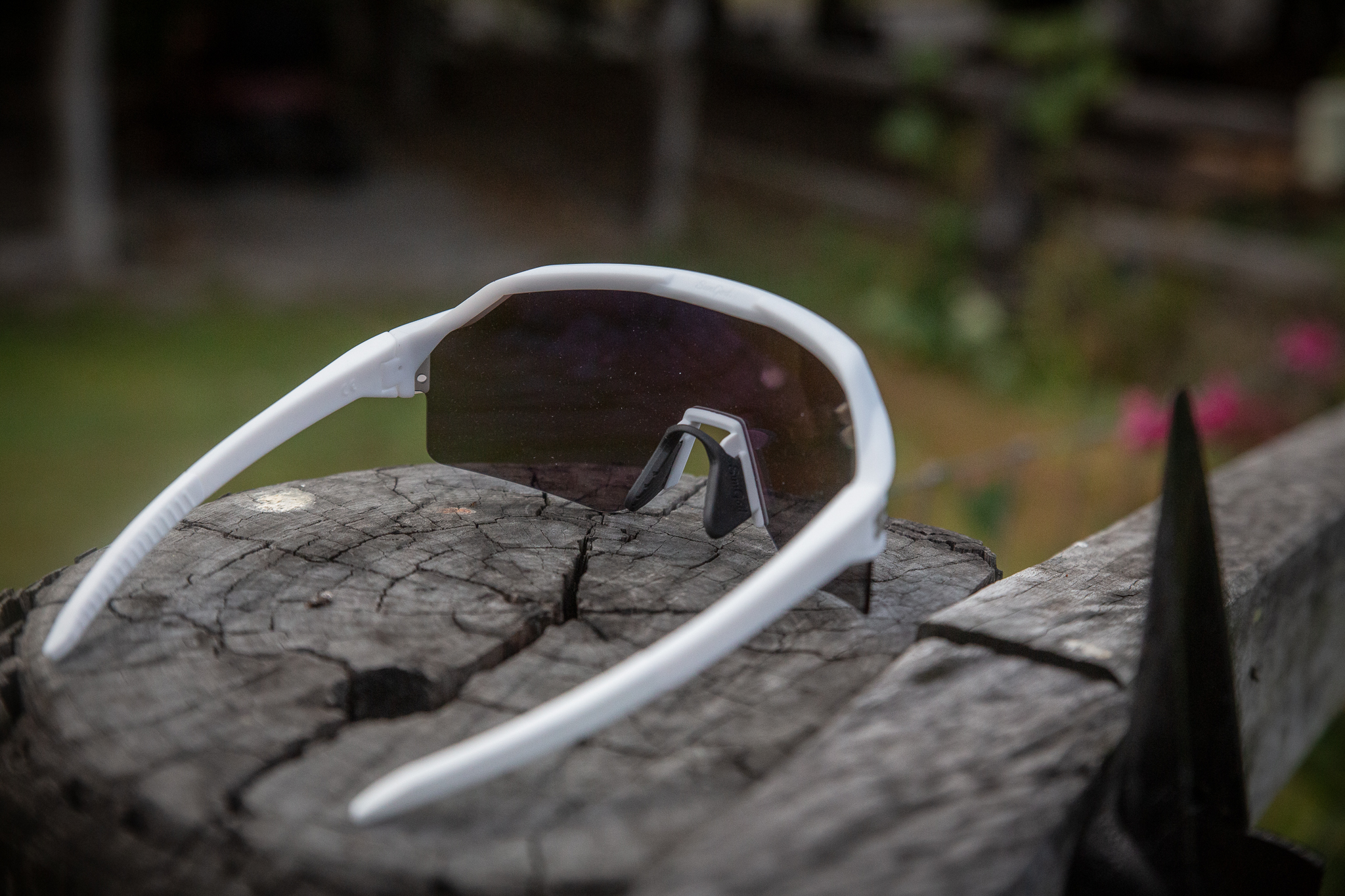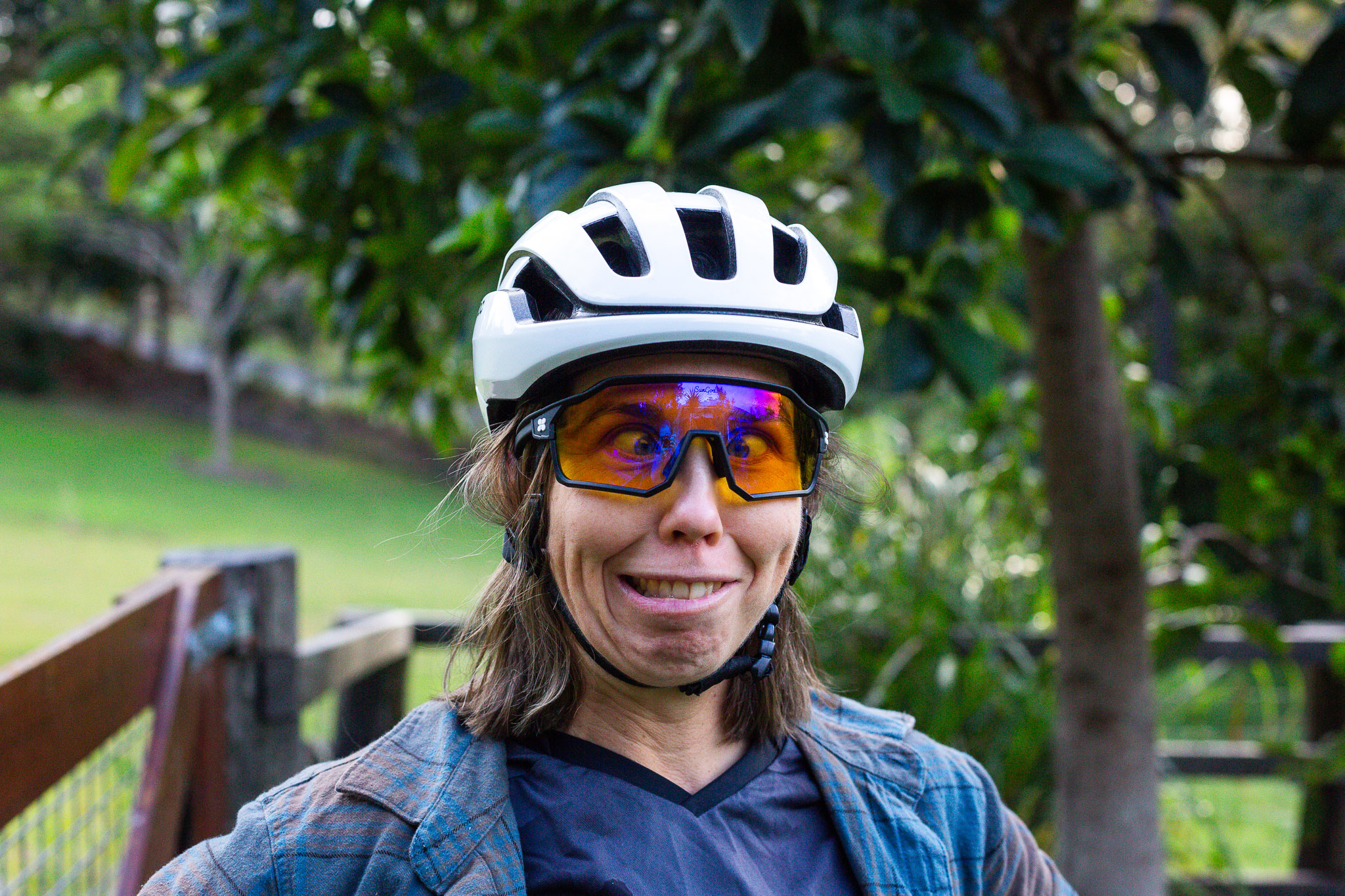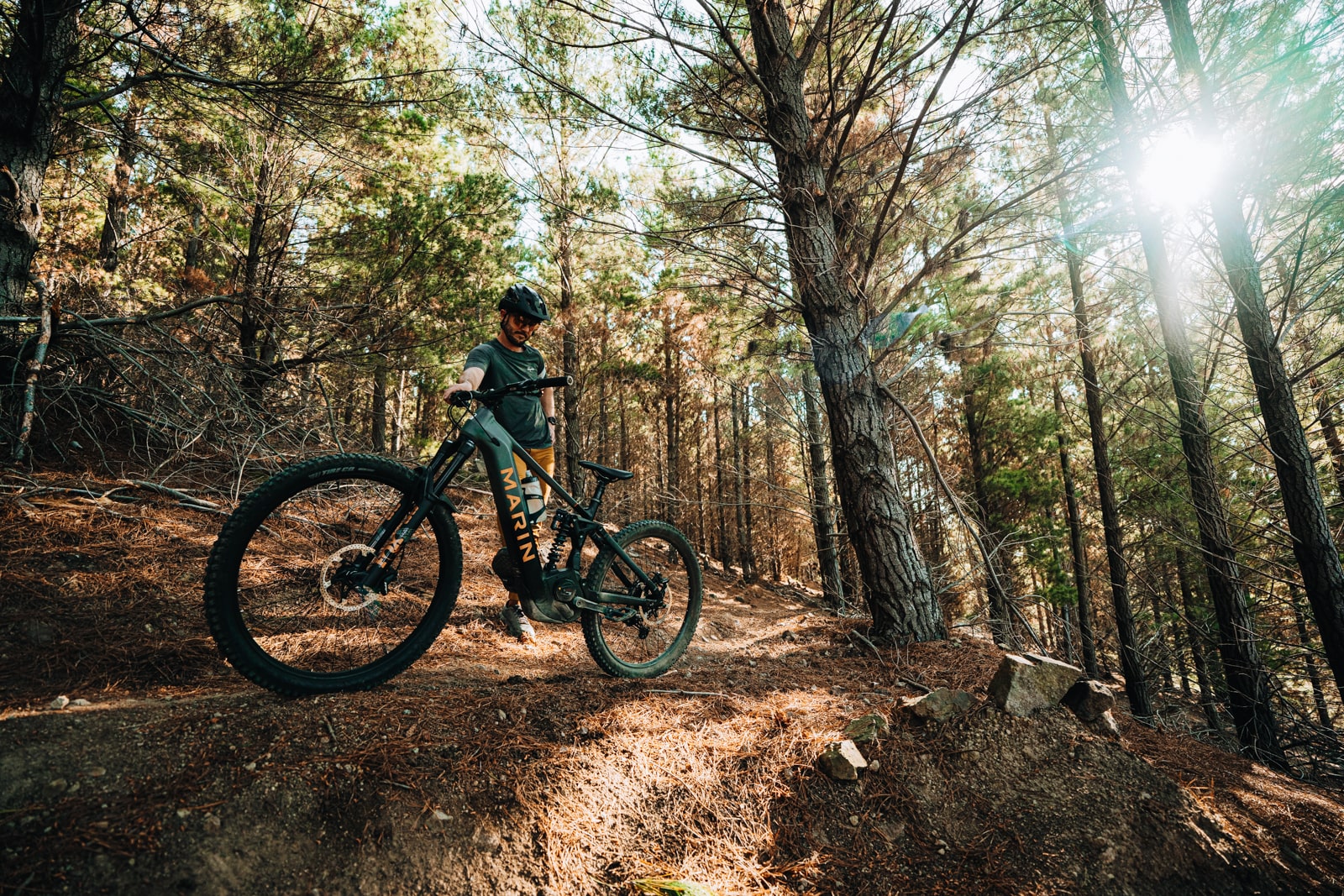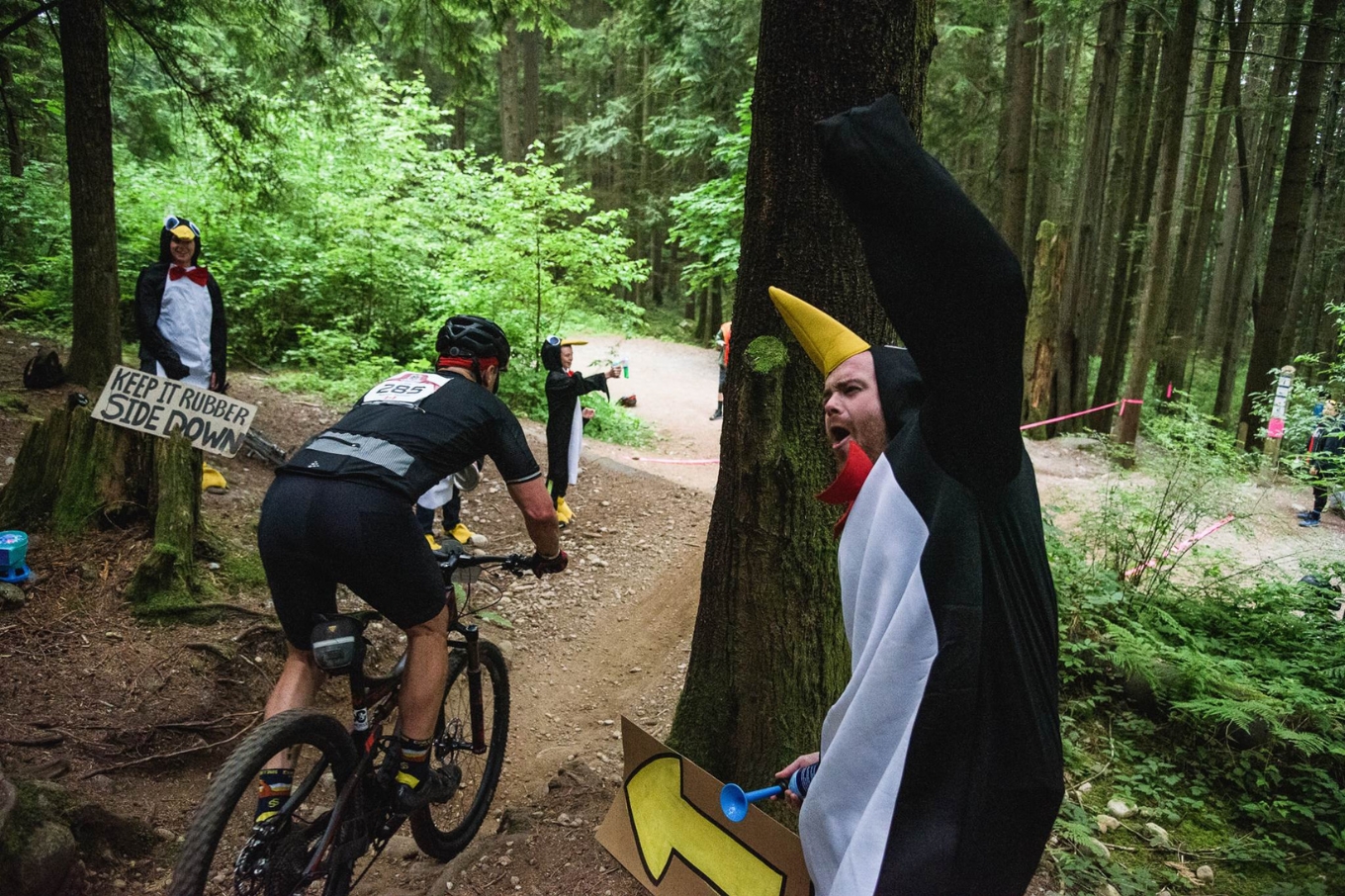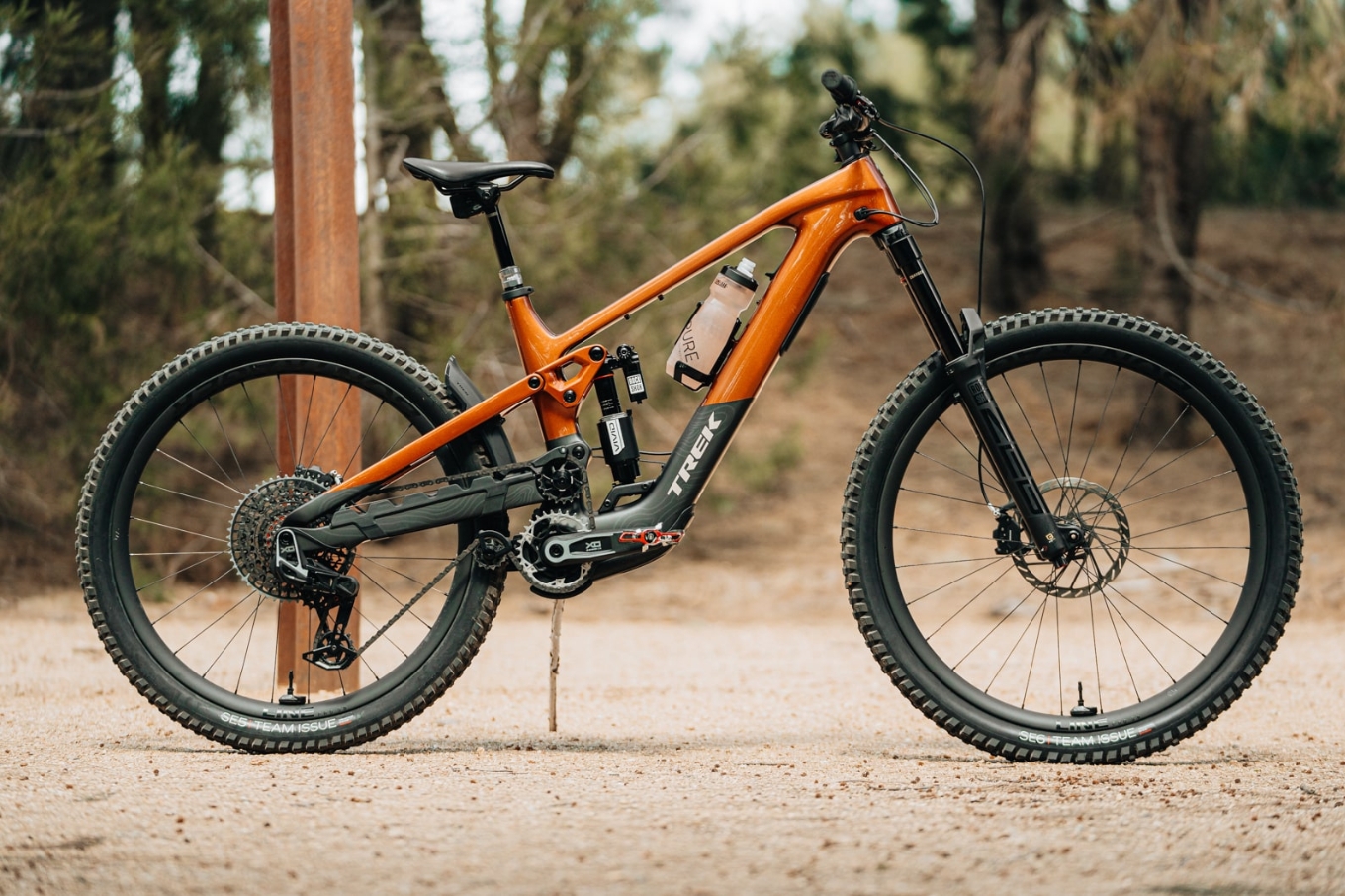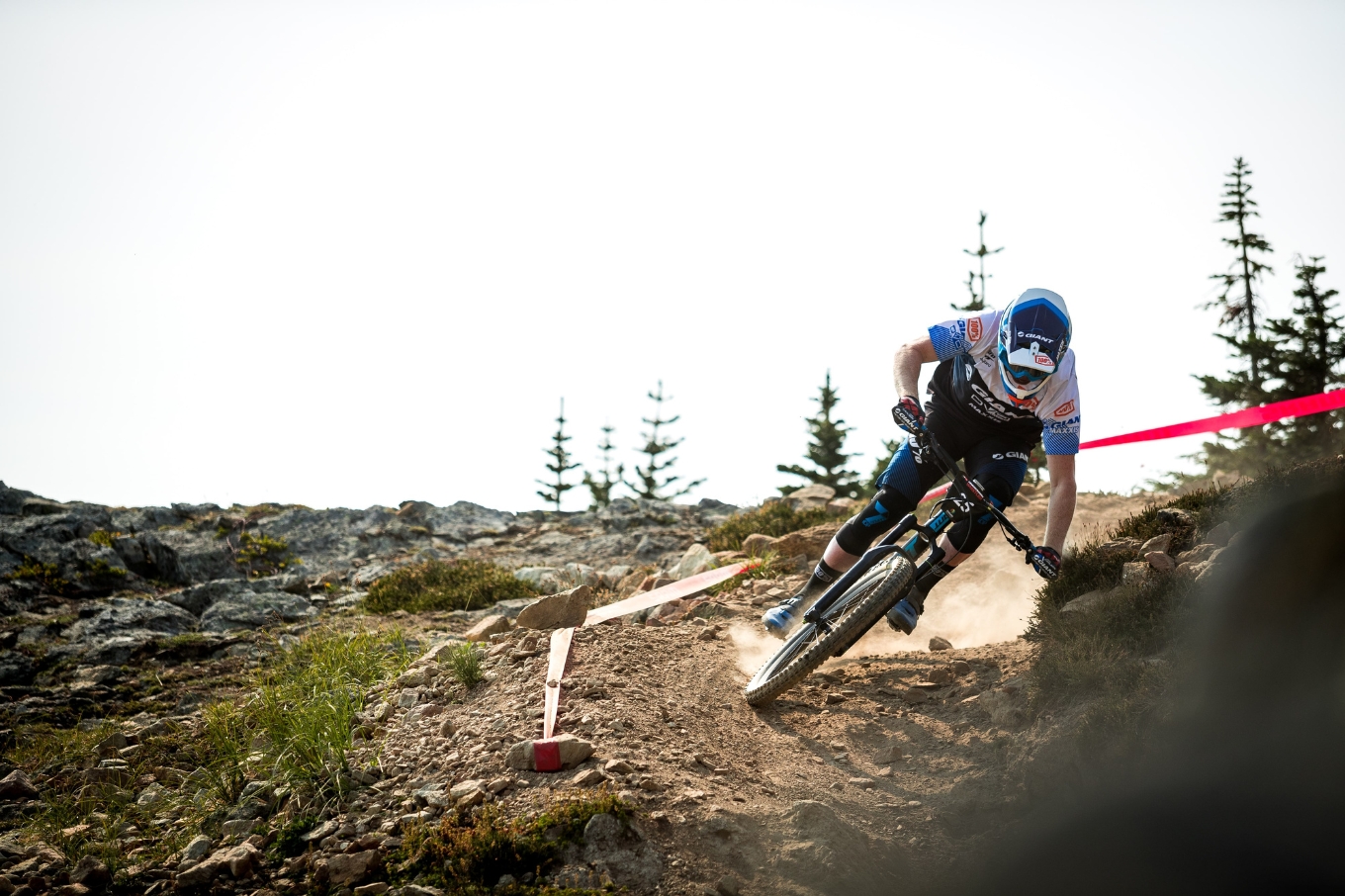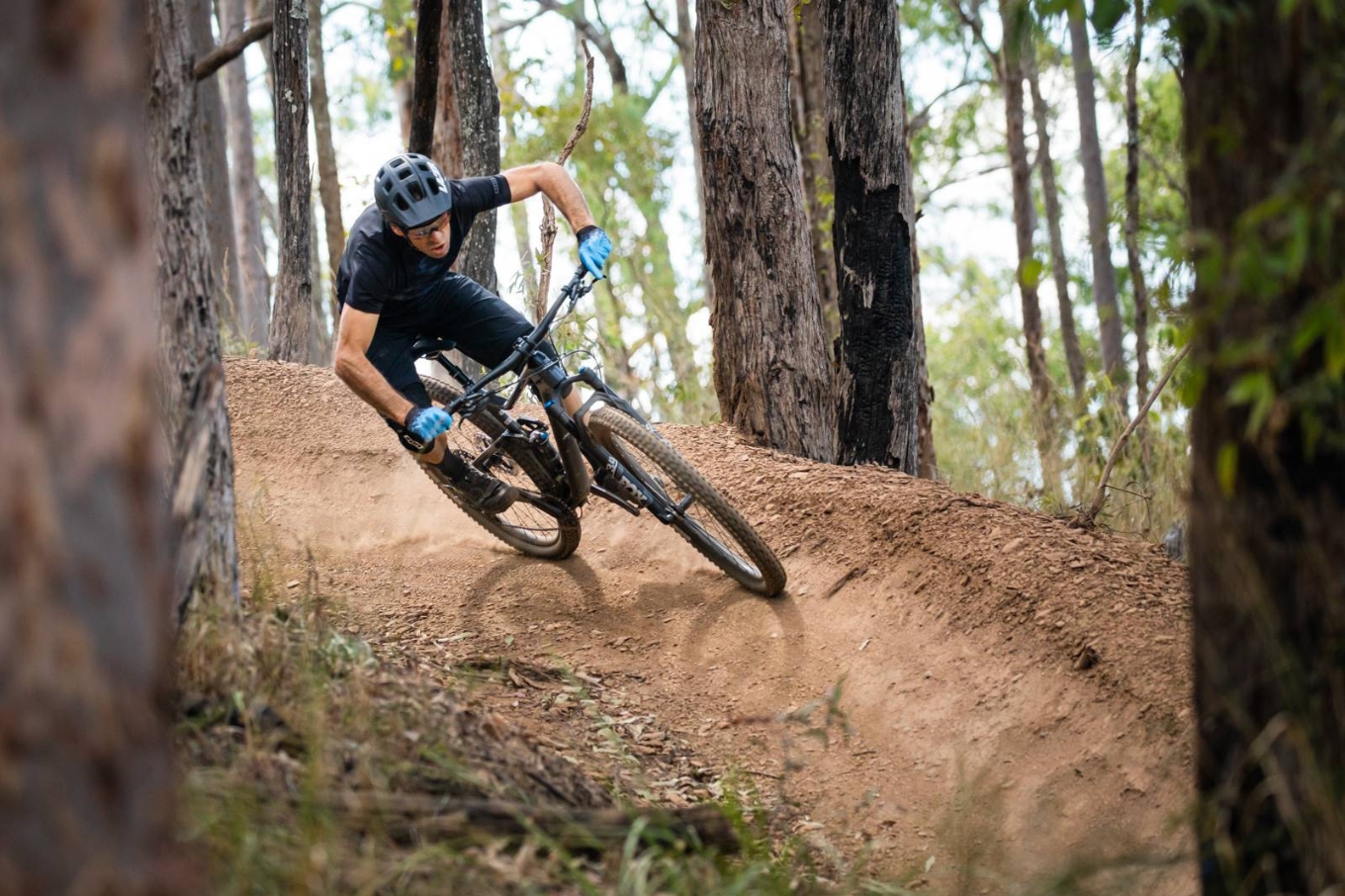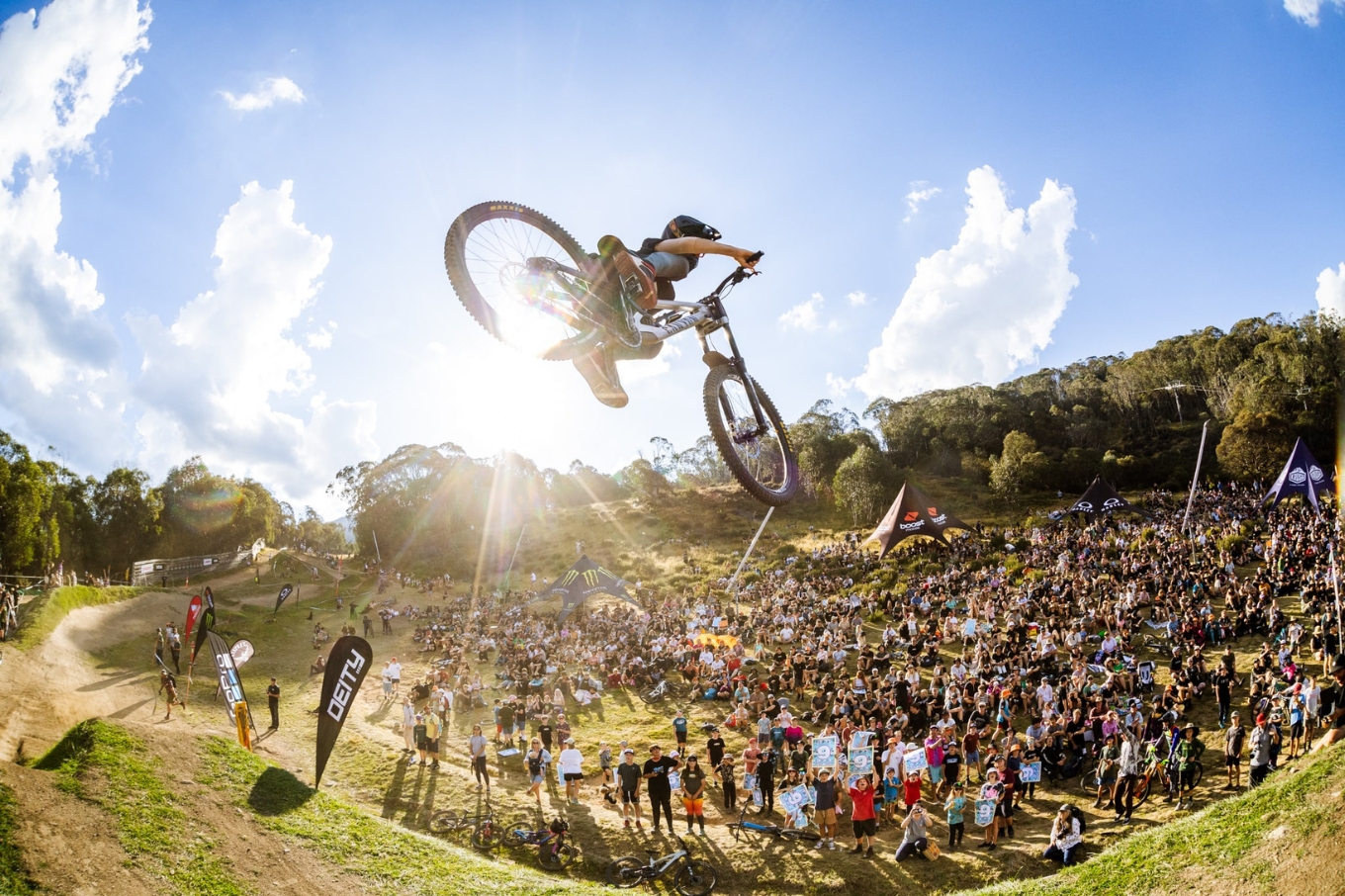GROUP TEST: Sunglasses for mountain biking and cycling
A quality pair of sunglasses are essential safety equipment for riding, and the right pair can really improve your vision in changing conditions. Anna Went down the rabbit hole with this one!
Eyewear should be seen as an important part of your safety gear when riding. Our eyes are essential for mountain biking, so it makes sense to look after them. After our goggles group test, sunglasses were the next logical choice, and the demands are similar.
This extensive sunglasses group test took place throughout June and July in Queensland, allowing for extensive low-light and dappled light trail riding as well as some brighter days testing some of the darker lens options. All the glasses with a Fox Mainframe helmet as well as a POC Omne Light Road/Gravel/XC helmet.
Looking for goggles? Check out our goggles group test
The testing matrix focussed on fit, construction and performance. As for fit, my head has a 55cm head circumference and reasonably narrow face and nose. But I also used a secondary tester with a large head and larger facial features (aka my husband).
What we tested
Shimano CE Technium – $119.95
Shimano CE Aerolite – $149.95
Heatwave Future Tech – $159.95
Heatwave Lazerface – $139.95
Heatwave Vector – $129.95
100 Percent Norvik – $329
100 Percent Hypercraft and Hypercraft XS – $279/$259
Pit Viper Try Hard – $199.69
Pit Viper Flip-Off – $164.69
POC Elicit – $345
POC Devour – $360
Oakley Sutro S – $239
Oakley Encoder Strike – $344
Magicshine Windbreaker – From $94.95
SunGod Velans – $355
SunGod Vulcans – From $270
All about the fit of sunglasses
A few things impacted fit: firmness of the temple construction, width of frame, adjustability and grip of nosepiece and temple tips. In some cases, due to the construction of the temples, glasses without any rubber on the temple tip fitted exceptionally well! On the other hand, some sunglasses that had extensive rubber on the temples and adjustable rubberised nose pieces failed to fit as well due to less rigidity and wider construction. I discovered that it is the synergy between the temple and frame construction and the nosepiece and temple tips/ear socks that allows for good fit. A good fit means you’re not having to remove your hands from the bars to push the sunglasses back into place on technical trails, and also allows stable coverage and eye protection while riding.
Construction was also related to fit, particularly in terms of the rigidity and wrap of the temples, however construction also related to the perceived durability of the sunglasses and ability to deal with a few blows. This may not be a huge issue if you’re very good at looking after sunglasses and have a good method of cleaning and putting them a safe space after use, but for many of us who are a bit more chaotic, a solid construction can be the difference between an accidentally broken pair of glasses and some that last a little longer.
There were a wide variety of frame construction and features in the group test, but primarily they can be categorised as frameless, half frame or full frame options. Frameless options featured the temples adhered to the side of the lens, half frame typically featured a top frame and temples (aside from the Shimano Aerolite which featured a bottom half-frame construction), and a full frame featured a complete frame around the lens.
Choosing the right sunglasses lenses
Lenses were a key factor in how each test option performed on the trail. Most low-mid light lenses for trail use are classified as Category 2, allowing 18-42% visible light transmission, however many options were tested with a default Category 3 lens which correlates to 8-18% light transmission. We had a smattering of Category 1 (very light tint) lenses as well, and all clear lenses (often supplied as a spare lens) would be category 0. It’s not just category of lens though, a sophisticated category 3 lens with high contrast features at the higher end of light transmission, often performed better than a category 2 lens without any specific contrast technology. Other features that were seen within the test cohort included polarised lenses (for use in high glare environments, boating, fishing etc) and photochromatic lenses (those which darken or lighten to mirror the external brightness).
Other features of some lenses included lens venting, anti-fog treatment, anti-shatter construction, and coating to repel dirt/water/oil. While I could assess how well the lens vented and if they fogged at low-speeds, a longer term test would be needed to ascertain the effectiveness of each model's anti-shatter technology and specialised protective coating.
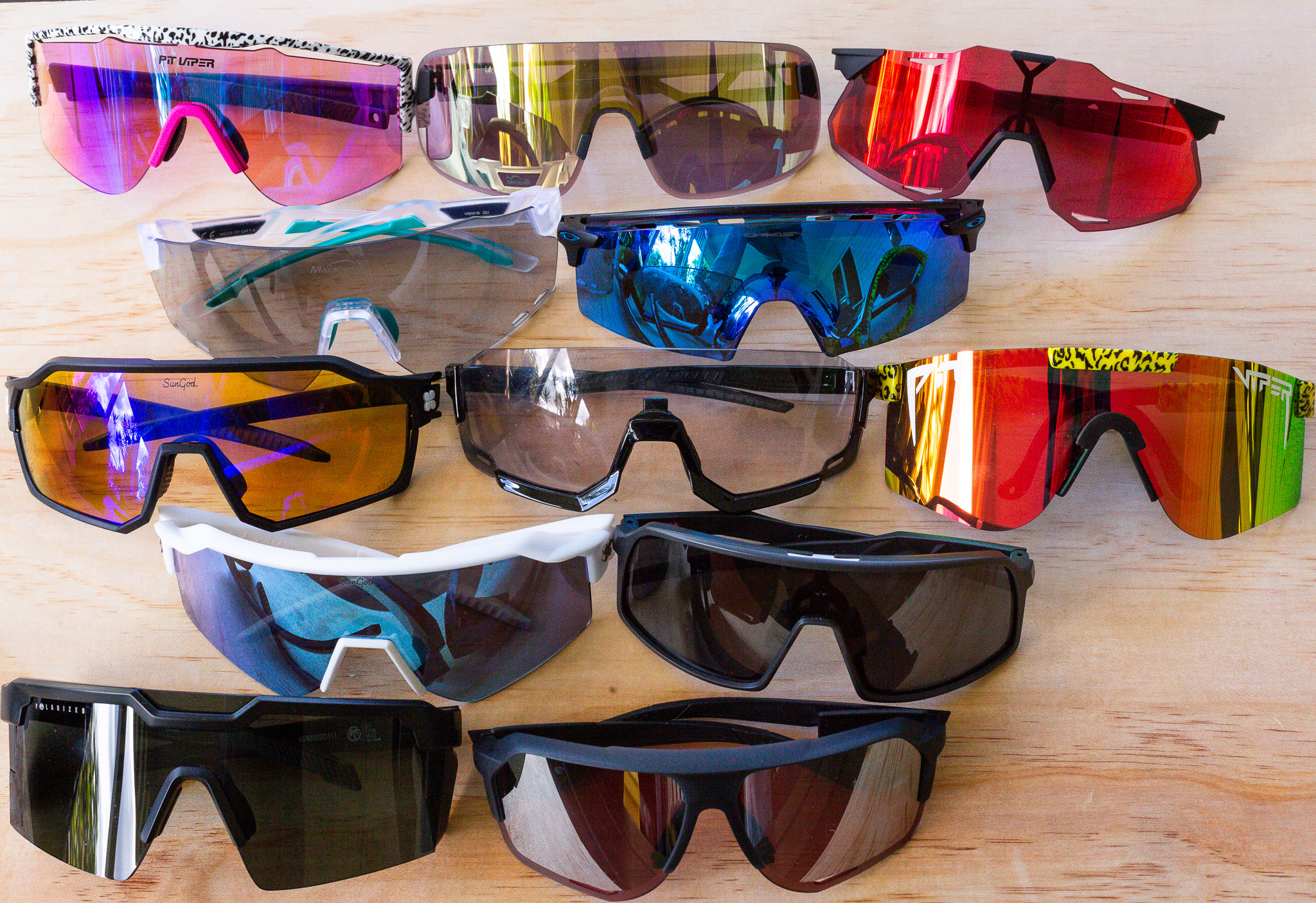
Shimano CE Technium
$119.95 | bike.shimano.com/en-AU
Colours: Metallic black, dark grey (tested), bronze gold, blue
Lens options: Ridescape Offroad and Clear (tested), Ridescape Road and Ridescape Gravel.
Weight: 28g
Contact: rubber nose piece and earsocks (in moulded).
The Shimano CE Technium model is a full frame model with a vented one-piece lens. The frames are constructed from Grilamid TR-90, a high-performance polyamide with long-term resistance to UV degradation. I tested the Dark grey frame with the Ridescape Offroad (OR) lense, and they came with a clear lens option. The category 2 orange/rose tinted lens is designed specifically for trail conditions and features slits to mitigate fogging, with UV400 protection. Shimano state the lenses are treated with a hydrophobic, water-repellant coating and anti-scratch treatment.
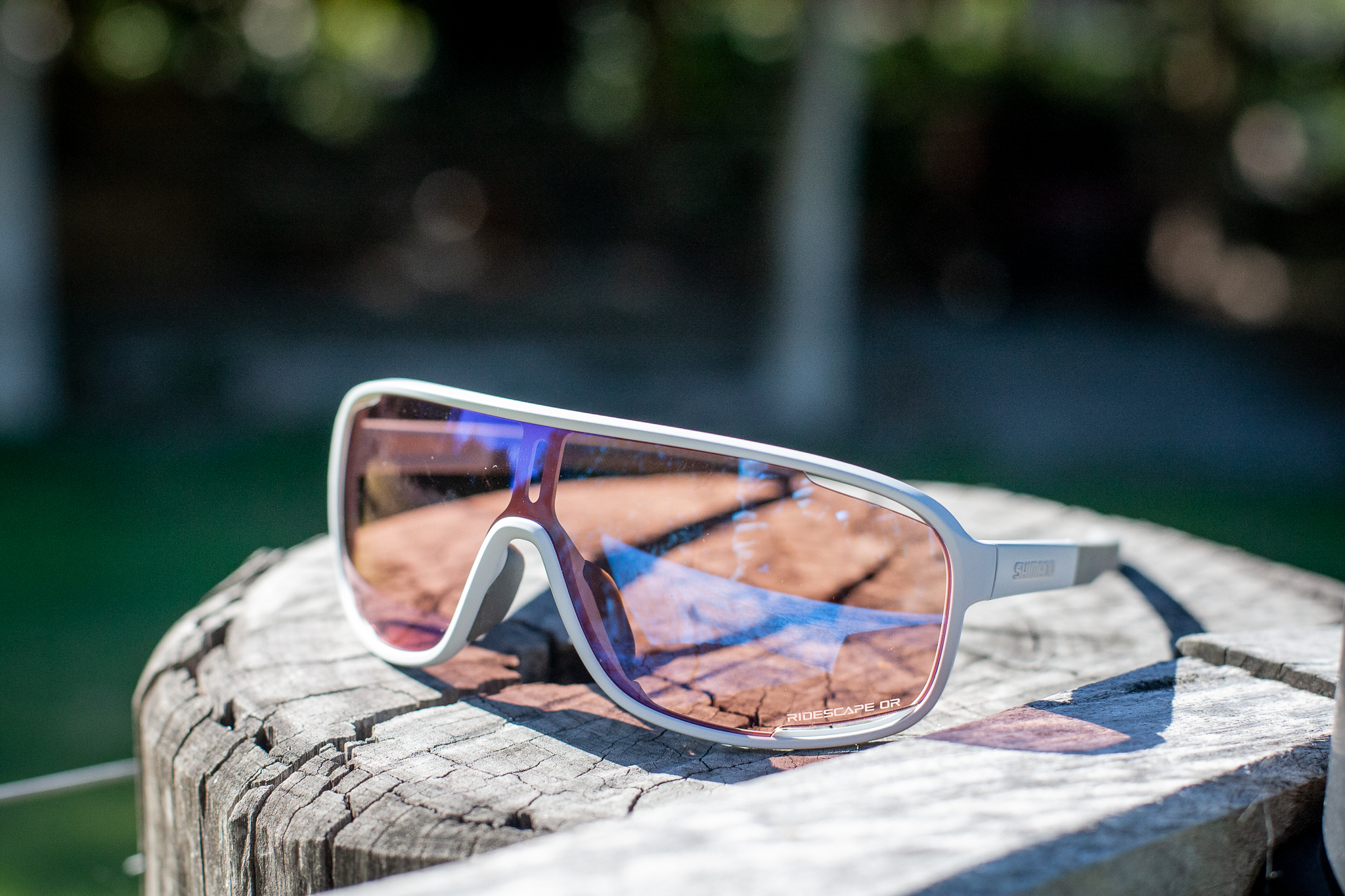
The lens highlighted and brightened the trail, and the full frame construction wasn't obstructive to trail scanning, and on low-speed traverses uphill I didn’t experience any fogging. The fit is on the wider size but offset by the in-moulded ear socks, however on fast and rough descents I did experience some slippage. This in-moulded nosepiece didn’t offer quite as much grip as others on the test, and as such these may be a better option for those with wider faces and noses, as verified from my partner, who swiftly stole these and remarked how comfortable they were on his wider face with a larger nose.
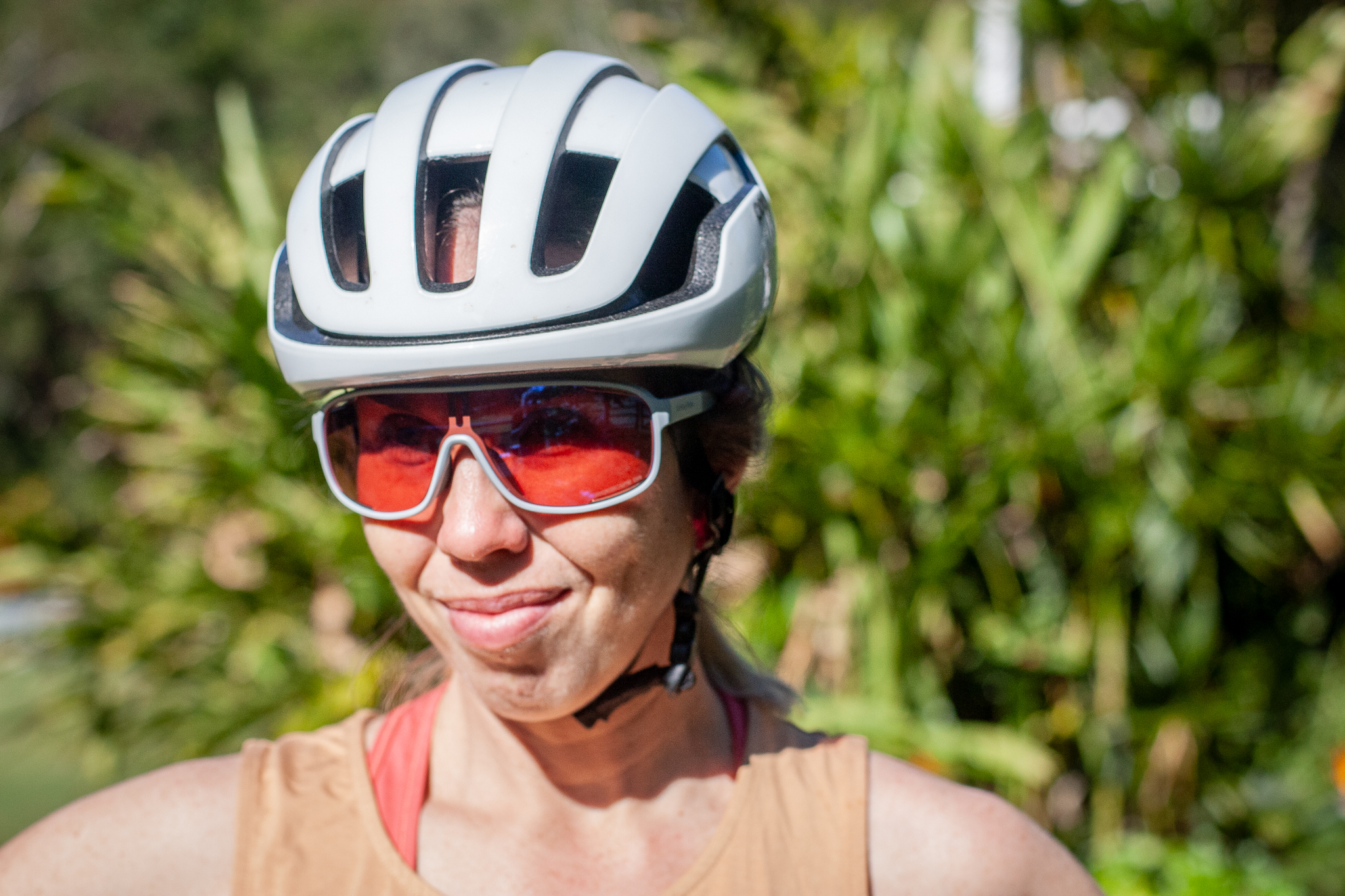
The CE Technium is a well priced, good quality option for everyday riding in dappled trail conditions, or for road or gravel use in morning or afternoon light. As a category 2 lens they still allow 18-42% visible light transmission, and compared to other category 2 in the test seemed to let more light in. If the majority of your trail riding takes part in bright or exposed trails you may be better seeking a trail lens that runs darker.
Shimano CE Technium – $119.95
Shimano CE Aerolite – $149.95
Heatwave Future Tech – $159.95
Heatwave Lazerface – $139.95
Heatwave Vector – $129.95
100 Percent Norvik – $329
100 Percent Hypercraft and Hypercraft XS – $279/$259
Pit Viper Try Hard – $199.69
Pit Viper Flip-Off – $164.69
POC Elicit – $345
POC Devour – $360
Oakley Sutro S – $239
Oakley Encoder Strike – $344
Magicshine Windbreaker – From $94.95
SunGod Velans – $355
SunGod Vulcans – From $270
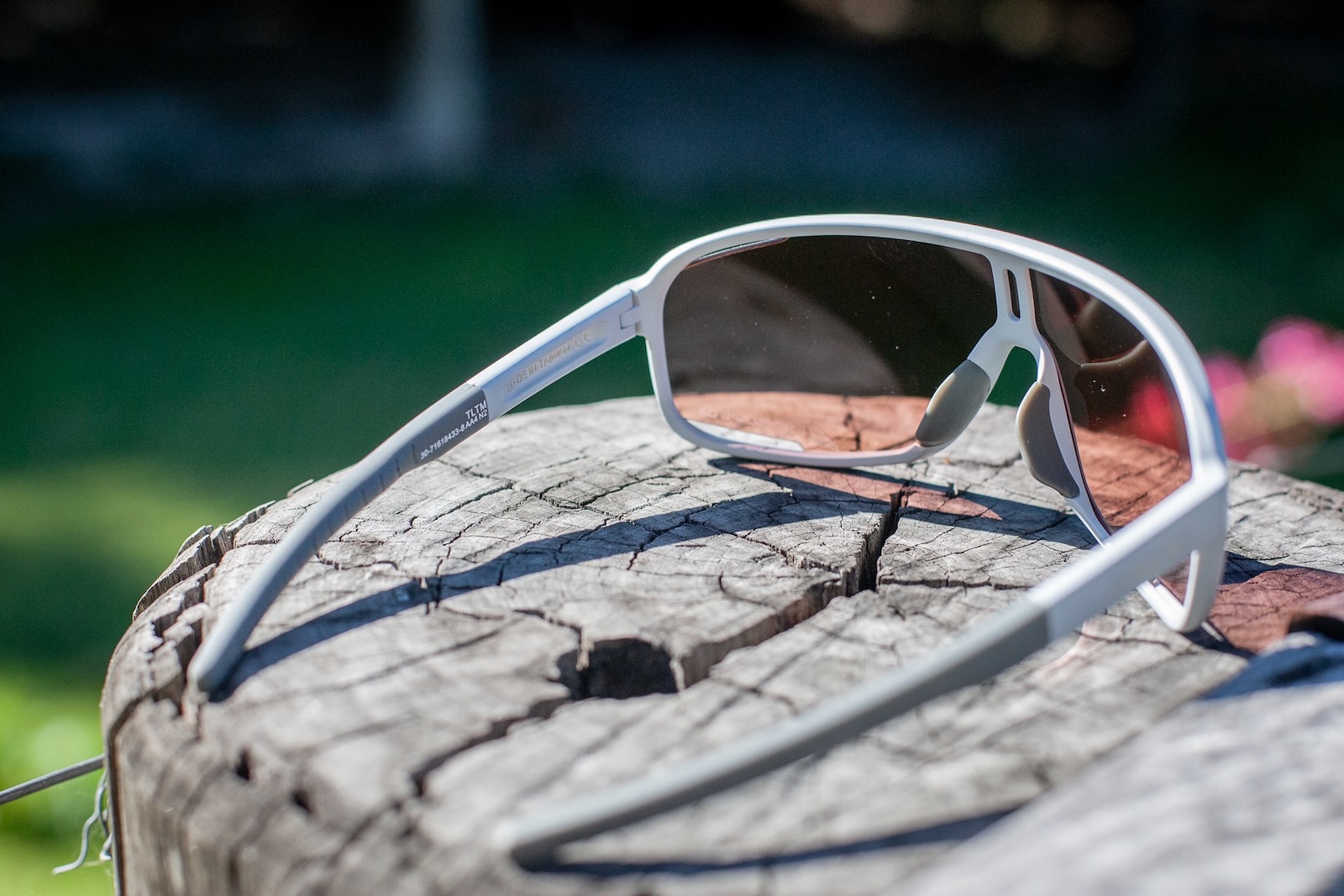
Shimano CE Aerolite
$149.95 | bike.shimano.com/en-AU
Colours: Black, white, metallic red, matte metallic blue, moss green
Lens options: Photochromatic grey (tested), Ridescape HC
Weight: 30g
Contact: rubberised in moulded temple tips, adjustable nosepiece
The Shimano CE Aerolite were the only photochromatic option on test, with a half frame construction with a one-piece lens. As with the Technium, the Aerolite is also constructed from the Grilamid TR-90 polyamide. The frame is sturdy and lacks the nervous fragility of some of the other brands’ lightweight offerings. The nose-piece on the Aerolites is rubberised and adjustable, allowing the rider to position the glasses further from the face in risk of fogging. It also allows a better fit for a wider range of face shapes. Like the Technium, the lenses are hydrophobic and feature anti-scratch treatment. The lenses are interchangeable, however I only tested the photochromatic lens.
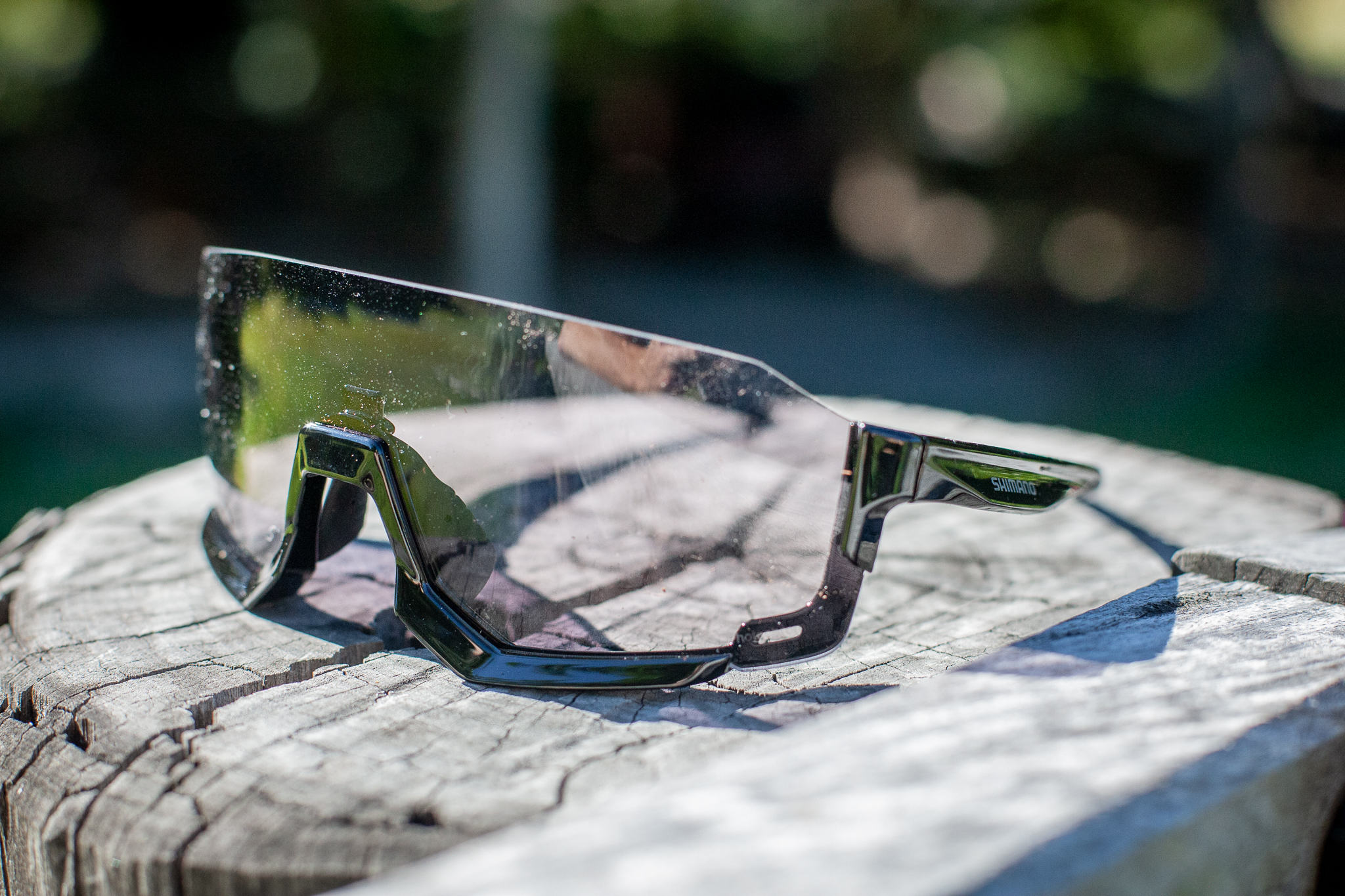
The fit of the Aerolite was firm and they were completely motionless on even the roughest of trails. I didn’t experience any fogging; even when engaging in hours of stop-start riding with skills coaching or social group rides. I initially noticed the thick lower half frame in our vision, it only took a run for my brain to forget about the frame and get on with shredding.
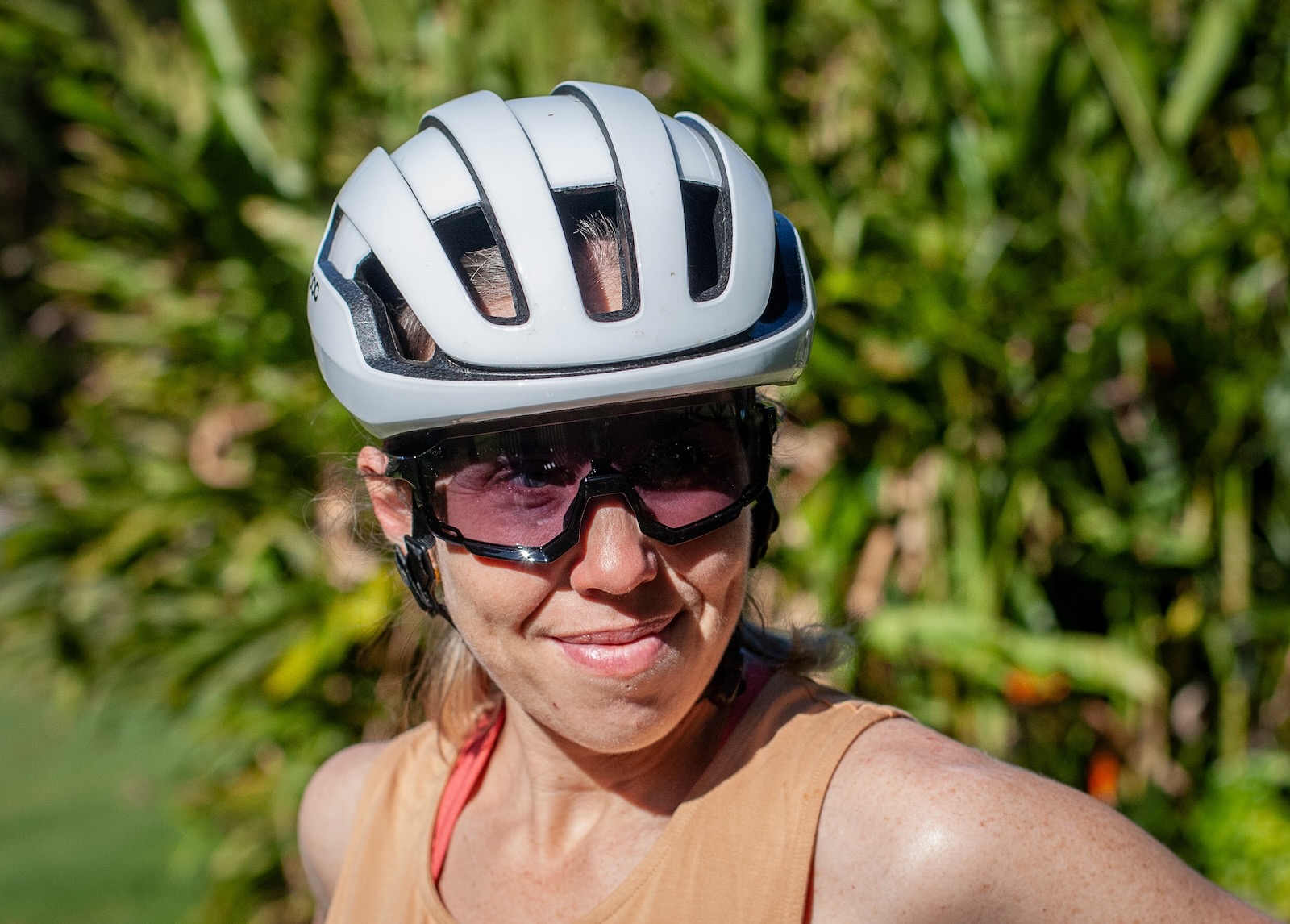
The photochromatic lens was incredibly clear, tested in very early light the glasses were essentially clear tint, and when riding into more open and exposed areas the tint increased, but was still quite a high level of light transmission. These are a great option for riders who ride very early in the mornings or late in the evenings, and are seeking something that isn’t merely a clear lens. While these wouldn’t be my primary choice for bright, exposed trails, full sun riding or open gravel exploration, for low-light or dappled trails I could wear these all day long.
Shimano CE Technium – $119.95
Shimano CE Aerolite – $149.95
Heatwave Future Tech – $159.95
Heatwave Lazerface – $139.95
Heatwave Vector – $129.95
100 Percent Norvik – $329
100 Percent Hypercraft and Hypercraft XS – $279/$259
Pit Viper Try Hard – $199.69
Pit Viper Flip-Off – $164.69
POC Elicit – $345
POC Devour – $360
Oakley Sutro S – $239
Oakley Encoder Strike – $344
Magicshine Windbreaker – From $94.95
SunGod Velans – $355
SunGod Vulcans – From $270
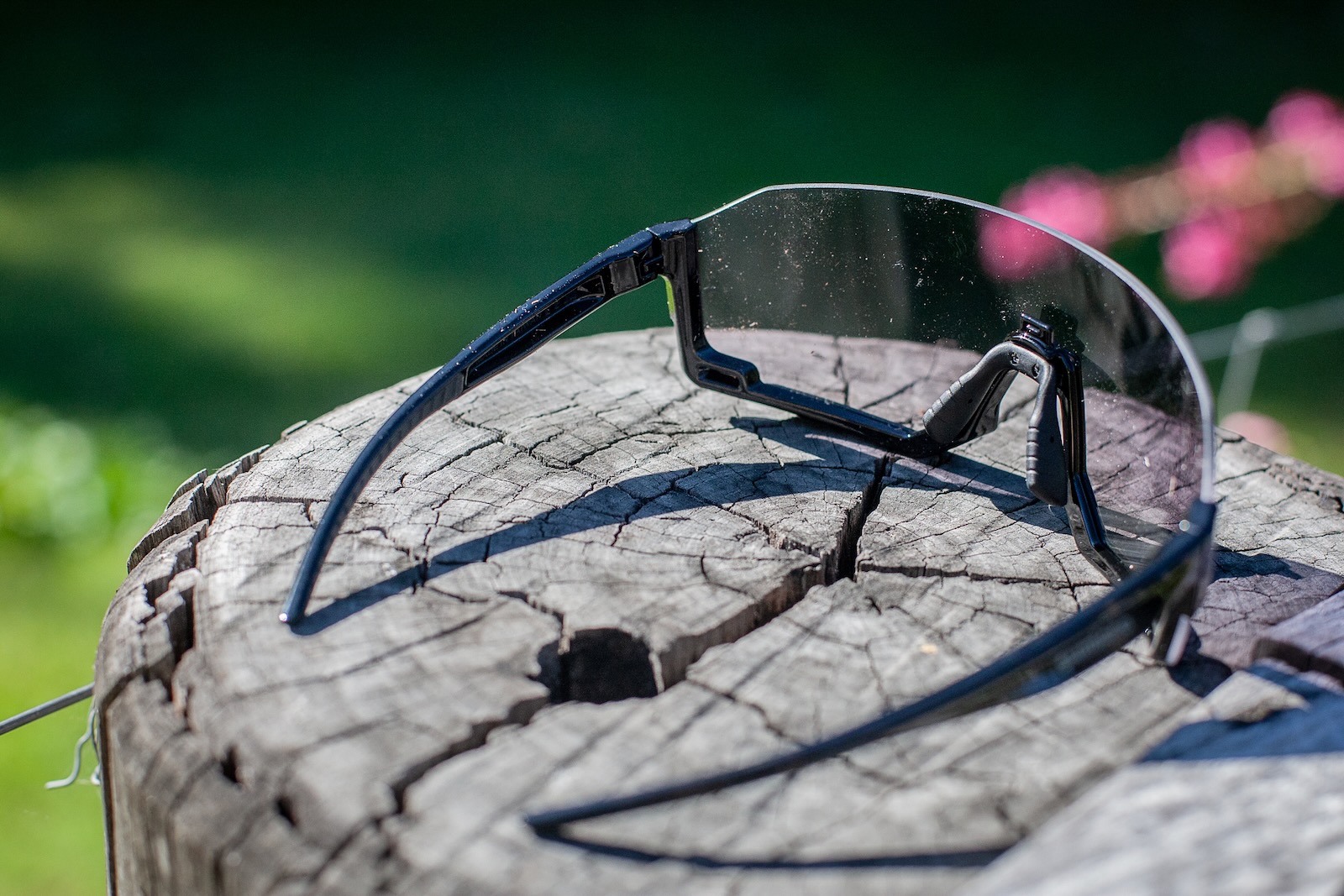
Heatwave Future Tech
$159.95 | heatwavevisual.com.au
Colours: Antifreeze (tested), many other colour/pattern options (see website)
Lens options: Firestorm Polarised, Black Polarised and clear (tested), multiple other lens/frame configurations available (see website).
Weight: 39g
Contact: Rubber nose piece, rubber temple tips.
If the Terminator and a canary had a baby that was a pair of sunglasses, then they would be the Heatwave Future Tech as tested in Antifreeze (translucent neon yellow) frame colour with Antifreeze (red mirrored) lens. Heatwave describe themselves as aggressive, loud and innovative and I wouldn’t disagree. The frame themselves are thick and rowdy, featuring a half frame nylon polyamid construction with a dipped brow, as well as lateral coverage extending from the edge of the lens. The Future Tech range offers replacable, impact resistant lenses in a myriad of colours, however all featured a darker category 3 lens. The Heatwave lens meets AS/NZS1337.1 medium-impact certification and these are one of the few models that came with polarised lenses, which reduce glare and eye strain allowing for safer vision with extreme sunlight.
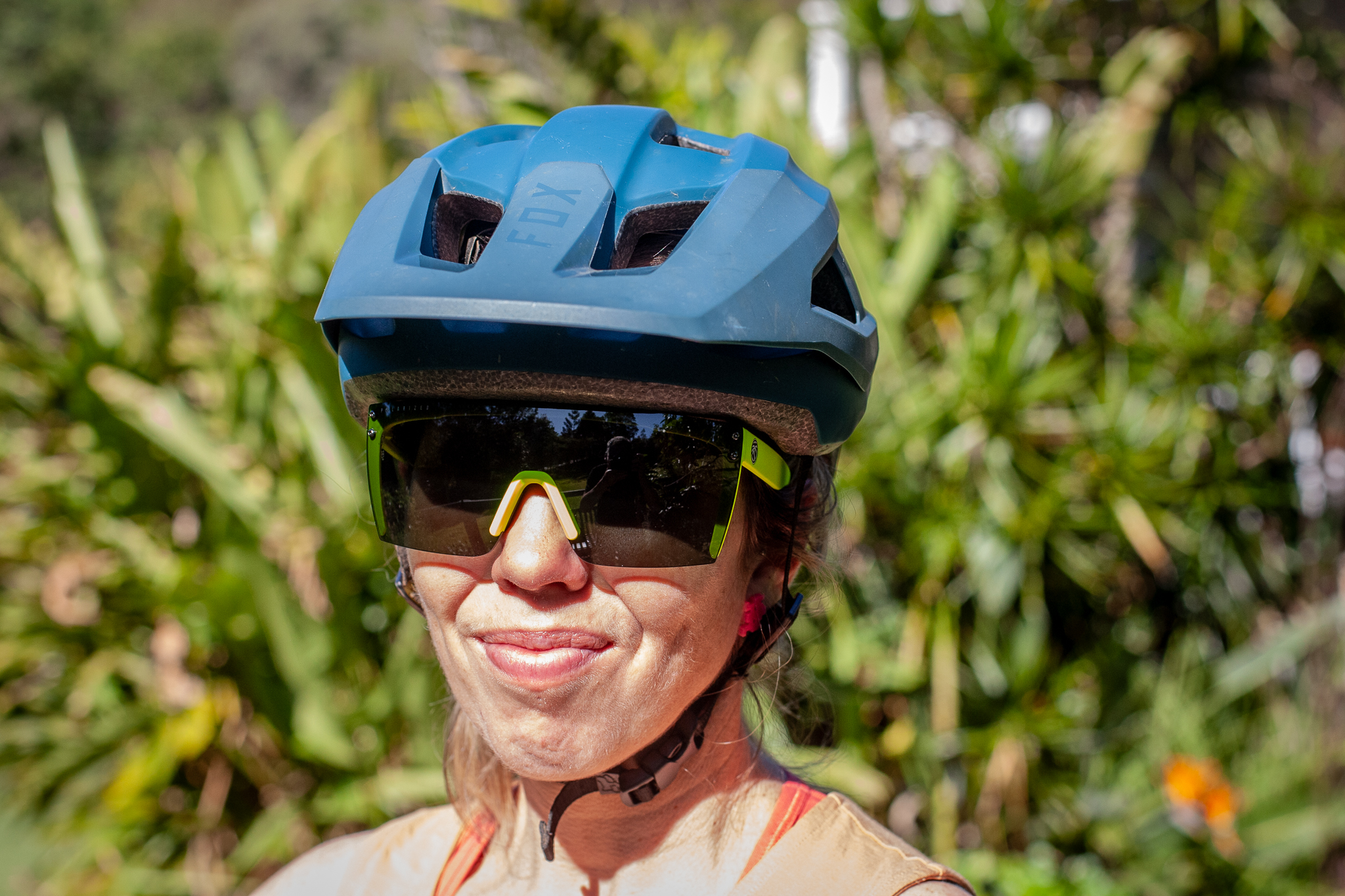
The fit of the Future Tech is quite broad, however the firm temples, adjustable nosepiece and rubberised temple tips meant they exceeded expectations in terms of trail stability. While they appear to be big bulky sunglasses with a lot of frame, they weighed in at 39g. They fitted securely minimising the effect of any extra weight, however I did notice some movement and nose-slide on rougher trails. The lenses are darker than most others on test, however in brighter trails the Firestorm lens did highlight the trail, so perhaps these are best suited for those who have very open trails, or those who do a lot of open gravel or road riding alongside their mountain biking.
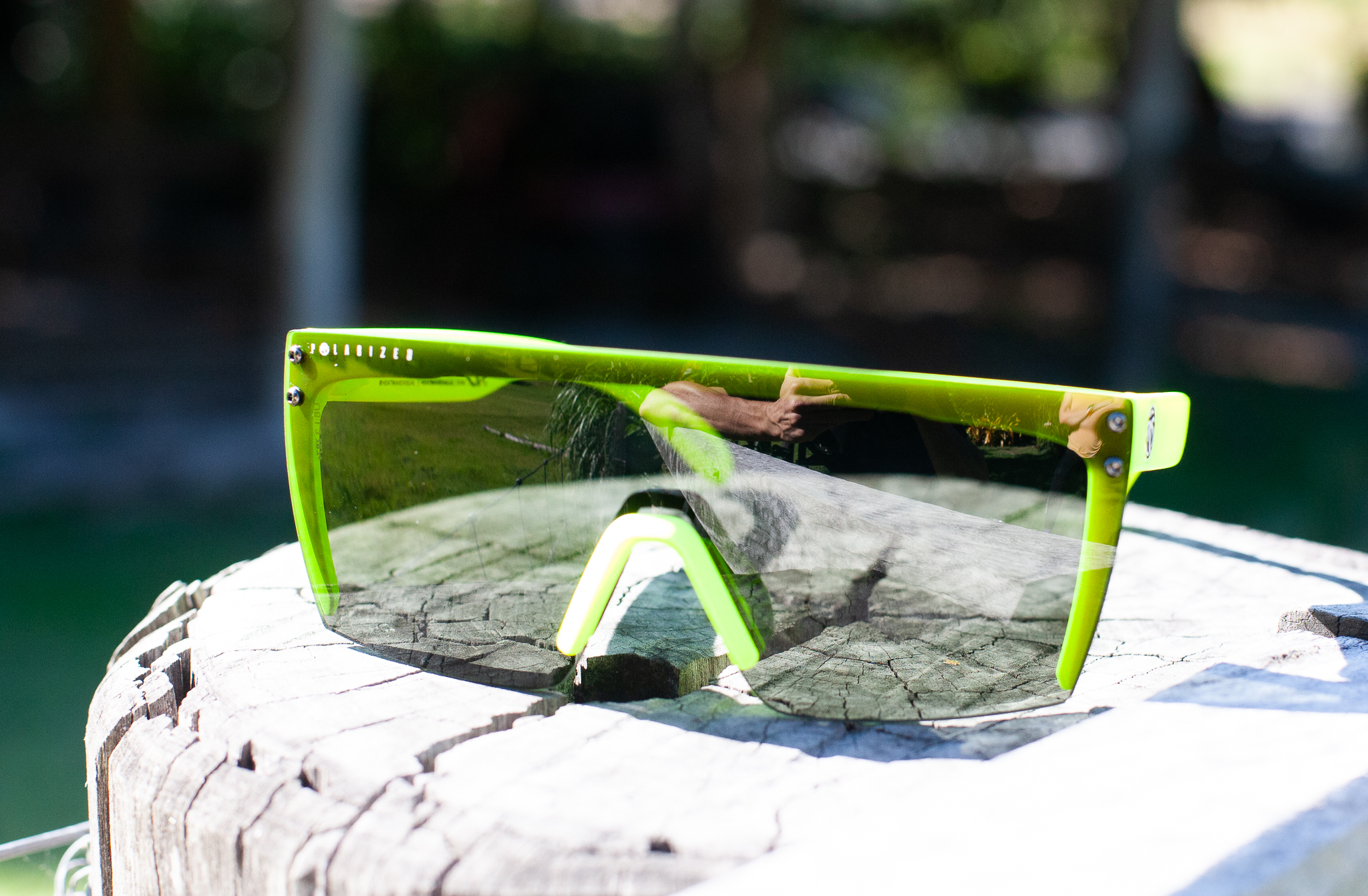
What I really loved about the Heatwave range, though, was their website that offered reasonably priced spare parts and accessories, and really comprehensive information on changing lenses and parts out on the glasses and a 30-day money back guarantee.
Shimano CE Technium – $119.95
Shimano CE Aerolite – $149.95
Heatwave Future Tech – $159.95
Heatwave Lazerface – $139.95
Heatwave Vector – $129.95
100 Percent Norvik – $329
100 Percent Hypercraft and Hypercraft XS – $279/$259
Pit Viper Try Hard – $199.69
Pit Viper Flip-Off – $164.69
POC Elicit – $345
POC Devour – $360
Oakley Sutro S – $239
Oakley Encoder Strike – $344
Magicshine Windbreaker – From $94.95
SunGod Velans – $355
SunGod Vulcans – From $270
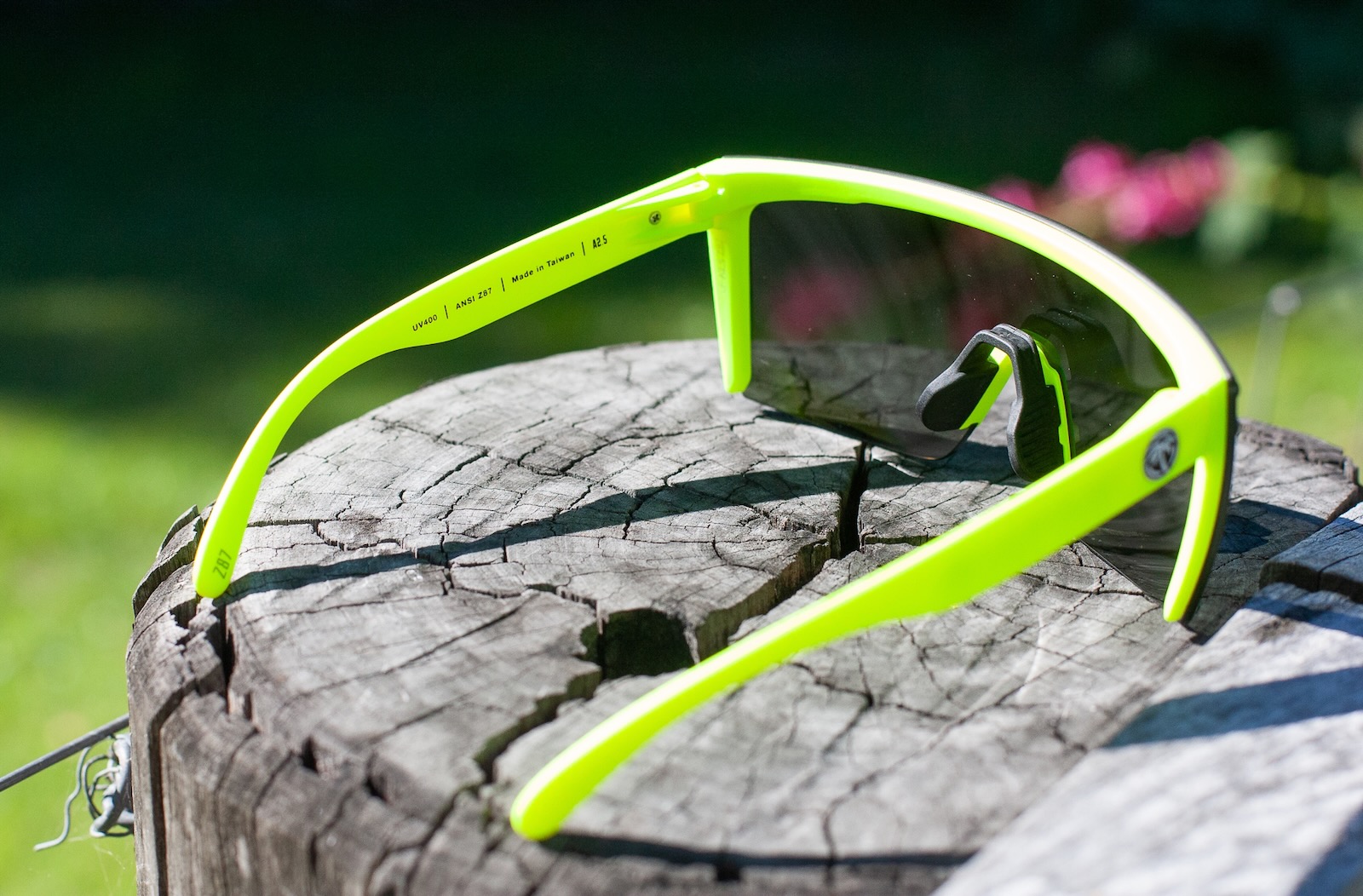
Heatwave Lazerface
$139.95 | heatwavevisual.com.au
Colours: Livewire (tested), many other colour/pattern options (see website)
Lens options: Black Polarised (tested), multiple other lens/frame configurations available (see website).
Weight: 39g
Contact: Rubber nose piece, no ear socks/temple tips.
The Heatwave Lazerface once again blurs the distinction between sports and recreational sunglasses. These are a pretty simple option construction wise; temples can be snapped out manually without tools and lenses changed with a small allen key. The Black polarised lens tested was a category 3 lens, and it’s plain black colour meant that these were much better on bright or non technical trails that don’t require highlighting. Alternatively, as a polarised option they could be useful for open or exposed terrain (I’m looking at you Alice Springs) or as a one-option-fits-most for road, gravel, running, hiking and working outdoors.
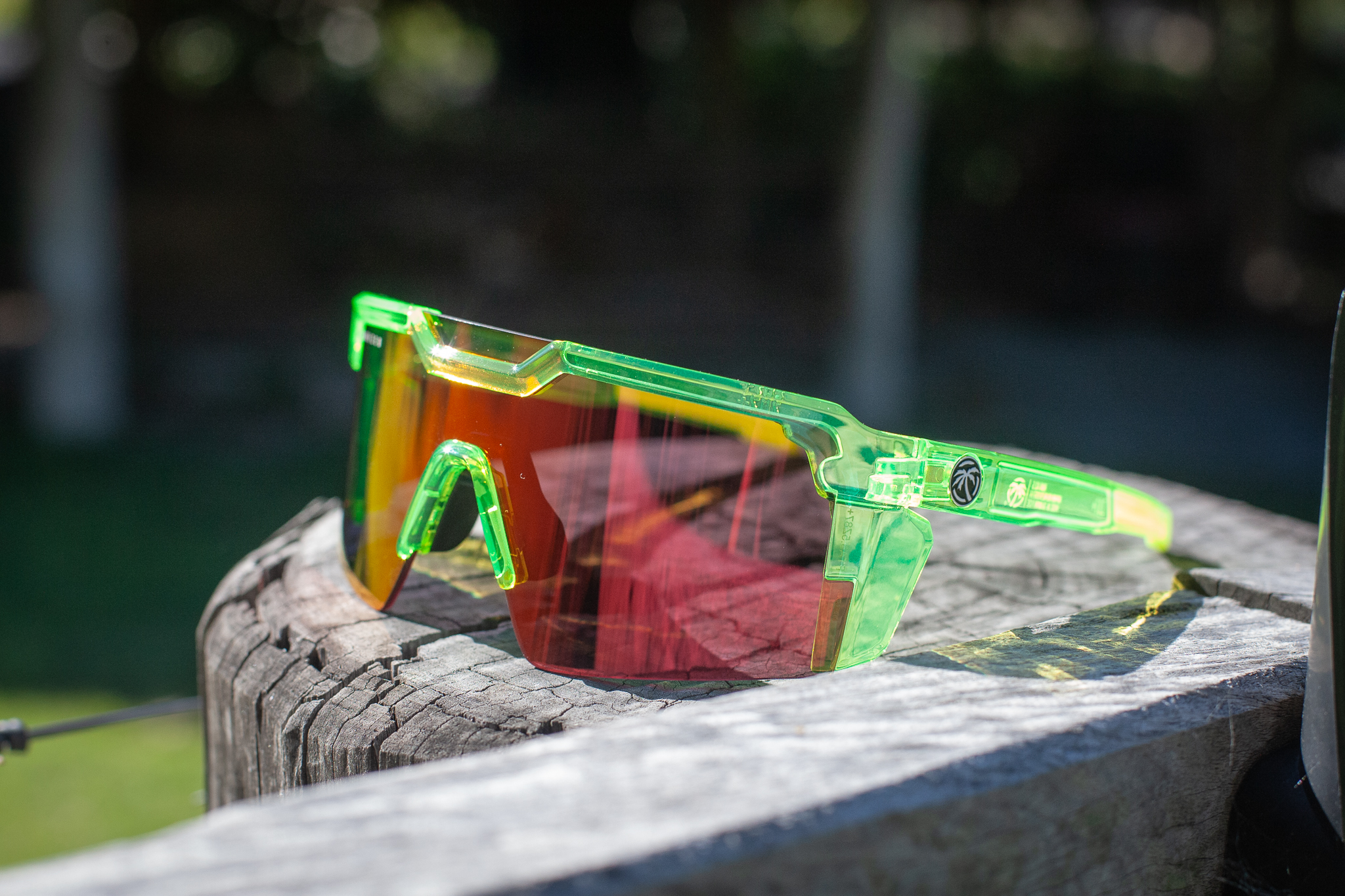
Without rubberised temple tips, the Lazerface’s did tend to slide more aggressively than other options on the test, however on less rough trails, and while road cycling and hiking they stayed in place without issue.
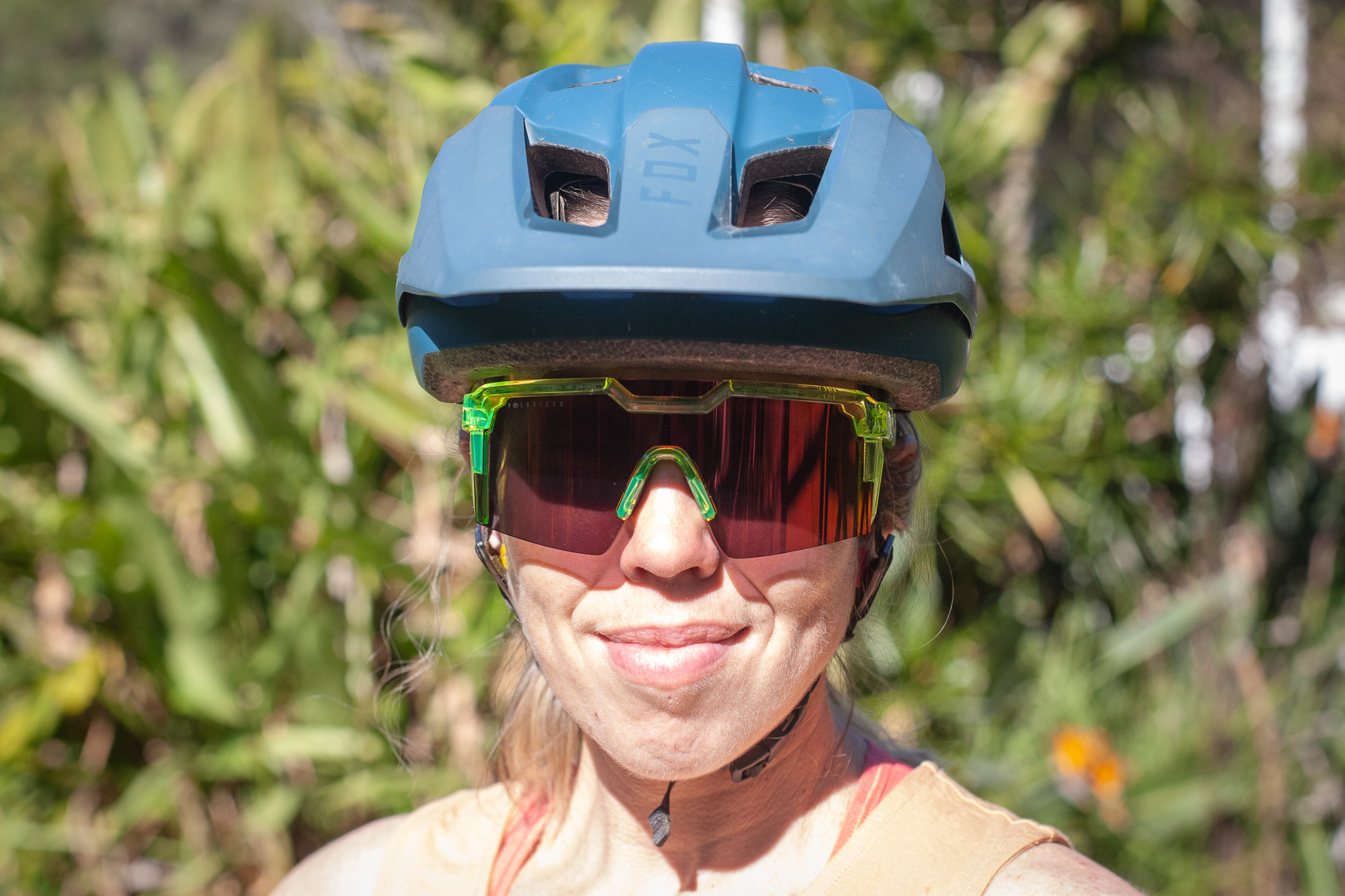
What I really loved about these glasses is their infinite customisation options. The Heatwave website allows fully customisable options with hundreds of possible lens and frame combinations. Feel like some purple palm tress on your temples with a blue nosepiece and polarised atmosphere lens? No problem. American flag temples, pink nosepiece and a polarised arctic chrome lens on an aqua frame? Too easy. If you’re after customisable, wild glasses that perform across a few different arenas—and you love neon—you’re going to love these!
Shimano CE Technium – $119.95
Shimano CE Aerolite – $149.95
Heatwave Future Tech – $159.95
Heatwave Lazerface – $139.95
Heatwave Vector – $129.95
100 Percent Norvik – $329
100 Percent Hypercraft and Hypercraft XS – $279/$259
Pit Viper Try Hard – $199.69
Pit Viper Flip-Off – $164.69
POC Elicit – $345
POC Devour – $360
Oakley Sutro S – $239
Oakley Encoder Strike – $344
Magicshine Windbreaker – From $94.95
SunGod Velans – $355
SunGod Vulcans – From $270
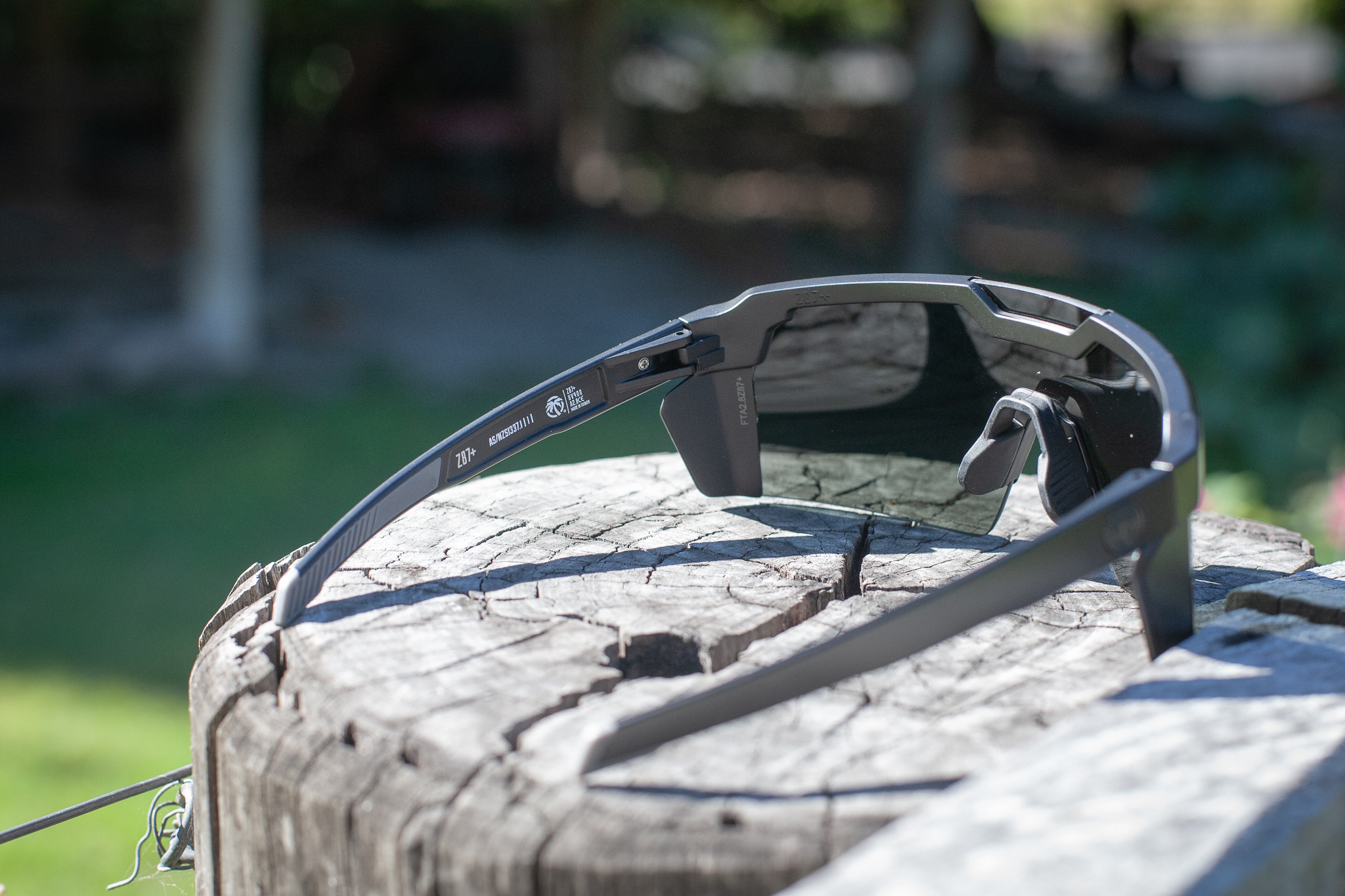
Heatwave Vector
$129.95 | heatwavevisual.com.au
Colours: Black (tested)
Lens options: Black (tested), gold, clear, silver, firestorm, galaxy, sun blast, savage spectrum.
Weight: 33g
Contact: Rubber nose piece, rubberised temple tips.
The Heatwave Vector is perhaps the most versatile sport/casual option tested form Heatwave. A full frame construction is curved and lightweight, with impact resistance once again a key feature. Aesthetically, the frame is divided by the louvred nose bridge that holds the nose piece in place. Maybe a slightly more conventional or conservative offering, the Vector is advertised as Heatwave’s ultra lightweight, close fitting option, that maintains many of the safety features and sturdy construction the brand is known for.
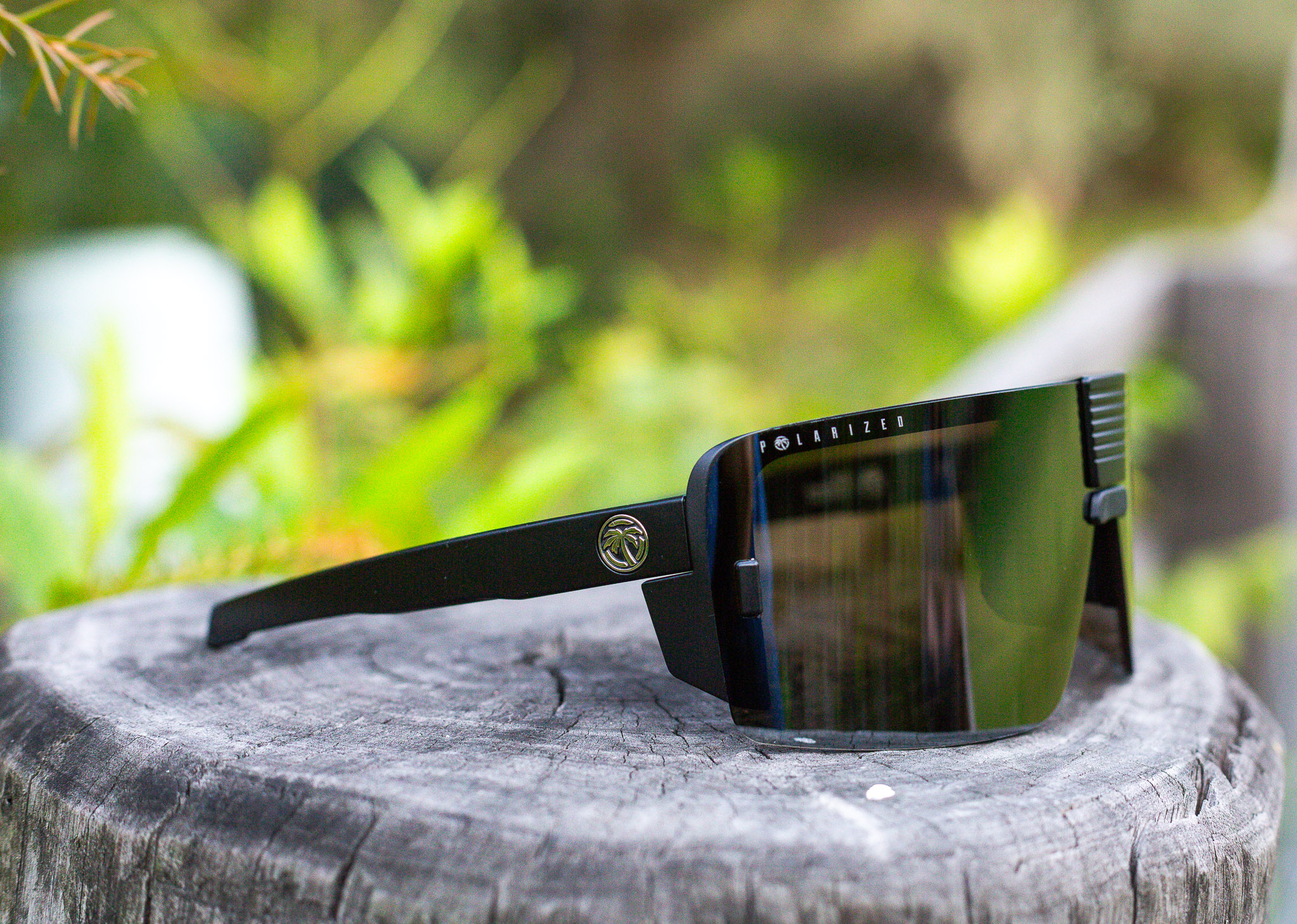
Separate lenses are available, and swapping parts can be done without tools. The Black lens tested was a category 3 lens, and it’s plain black colour meant that these were much better on bright or non technical trails that down’t require highlighting, however they weren’t too dark for riding in scrubby bush trails on bright days.
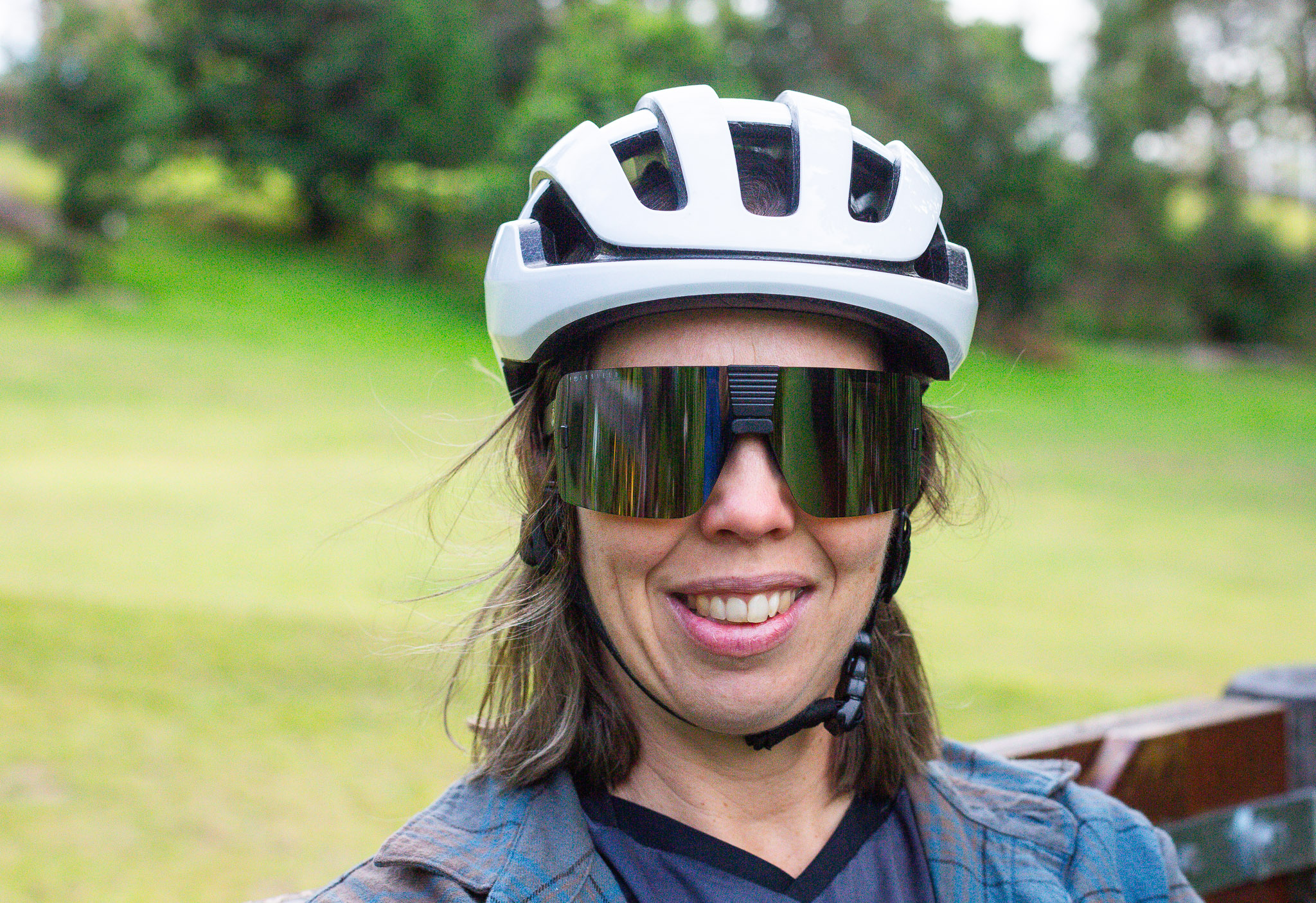
With a sturdy rubberised nosepiece and temple tips, the Vectors sat firmly in place throughout all testing and were the best fit of the Heatwave options for our smaller face. I was also impressed that the close fit of the vectors didn’t seem to increase fogging through hot and humid testing. For those that require a wider fit, the Vector is available in an XL fit model.
Once again Heatwave offers a lot of customisation with the Vector, and that’s such a strong point for the brand. For the weight weenie out there looking for a broad coverage sunglass with a close and sturdy fit, the Heatwave Vector really hit the mark.
Shimano CE Technium – $119.95
Shimano CE Aerolite – $149.95
Heatwave Future Tech – $159.95
Heatwave Lazerface – $139.95
Heatwave Vector – $129.95
100 Percent Norvik – $329
100 Percent Hypercraft and Hypercraft XS – $279/$259
Pit Viper Try Hard – $199.69
Pit Viper Flip-Off – $164.69
POC Elicit – $345
POC Devour – $360
Oakley Sutro S – $239
Oakley Encoder Strike – $344
Magicshine Windbreaker – From $94.95
SunGod Velans – $355
SunGod Vulcans – From $270
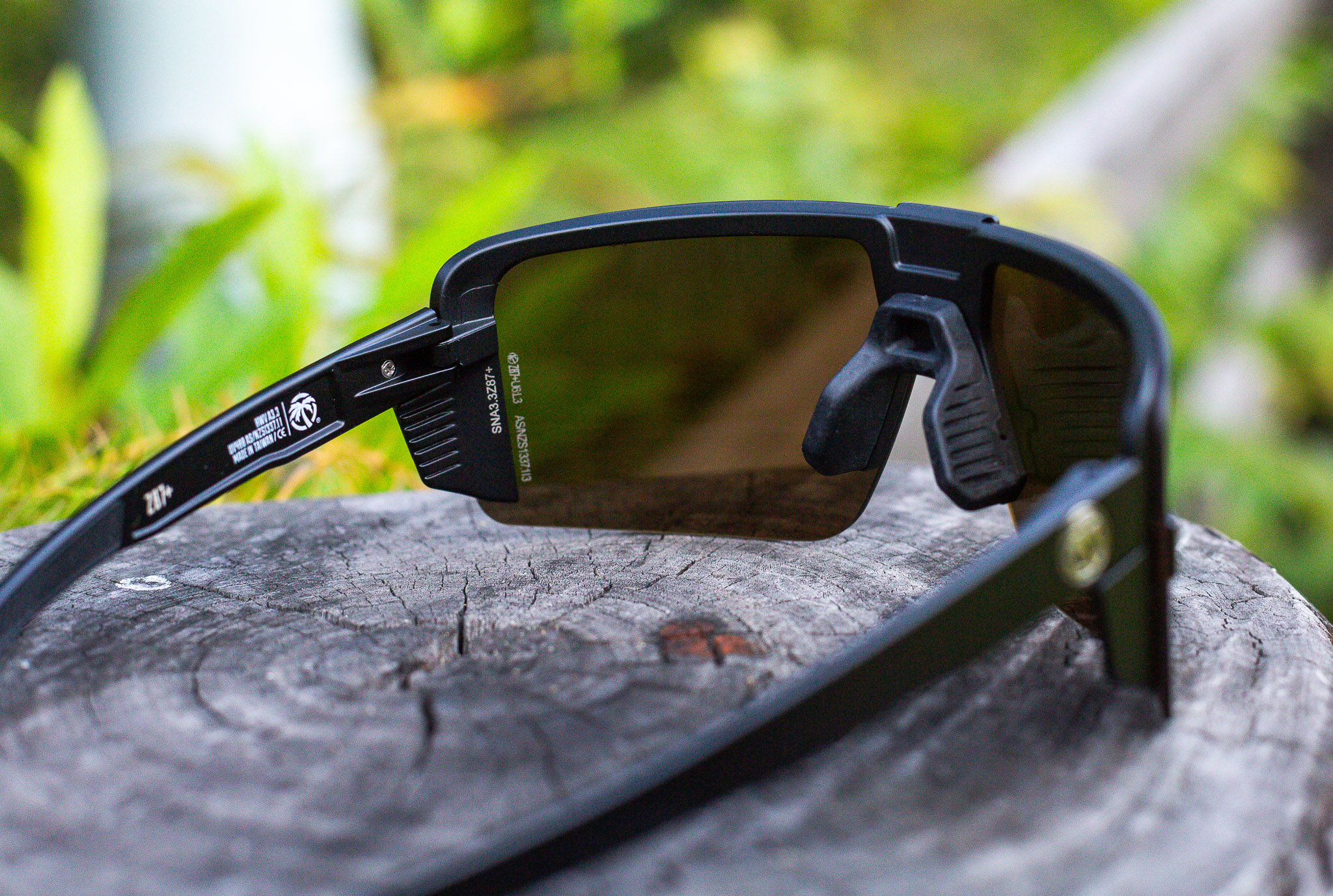
100 Percent Norvik
$329 | FEsports.com.au
Colours: soft tact crystal black and clear (tested), soft tact white, black holographic, polished translucent lavender, matte black, matte copper, soft tact army green
Lens options: HiPER crimson silver (tested), smoke, blue mirror, HiPER blue, HiPER silver, HiPER lavender, grey peak polar.
Weight: 31g
Contact: Adjustable rubber nose piece, suspended temple tips.
100 Percent is a brand that is associated with the highest echelons of cycling. The Norvik is a departure from the single lens aesthetic of most other glasses on test, with a half frame with independent lenses, and removable side shields for extra glare protection. 100% state that the Norvik offer ‘limitless performance in any conditions’ and the Norviks have been used in the snow and high alpine areas where glare is extensive, as well as on the bike.
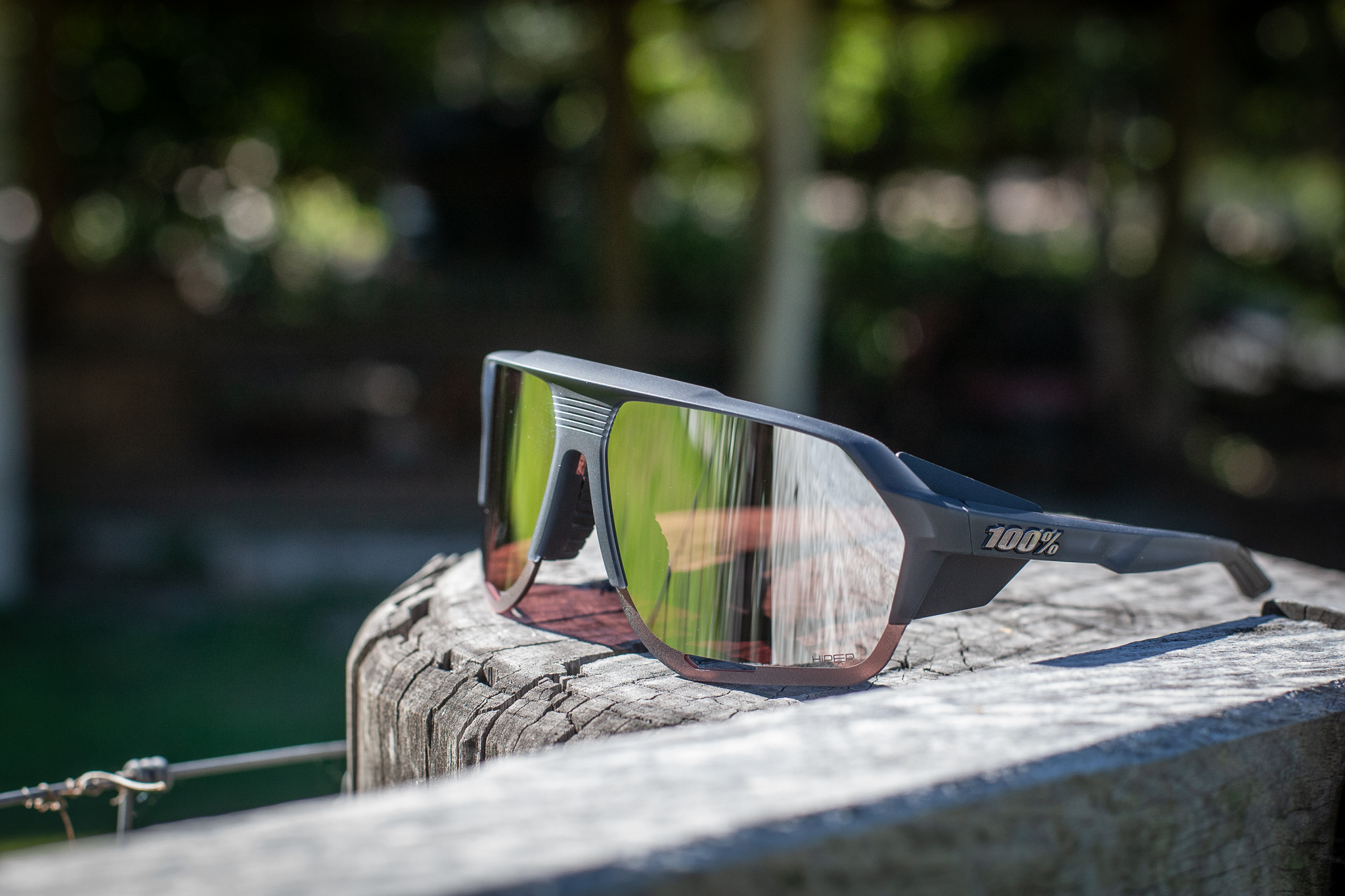
All frames in the 100 Percent range feature scratch resistance and hydrophobic and oleophobic lens treatment to repel water, dirt and oil. The frame itself is a thermoplastic TR90 construction: lightweight and durable, weighing in at 31g. The lens provided was the HiPER crimson silver lens, a vented category 3 lens on a pinkish/red base. Despite this higher lens category, I found the HiPER crimson mirror lens quite effective in dappled light trails, effectively brightening and highlighting trail contrast. 100 Percent states that the HiPER lenses are specifically designed to filter out colour crossovers to allow greater contrast and better clarity.
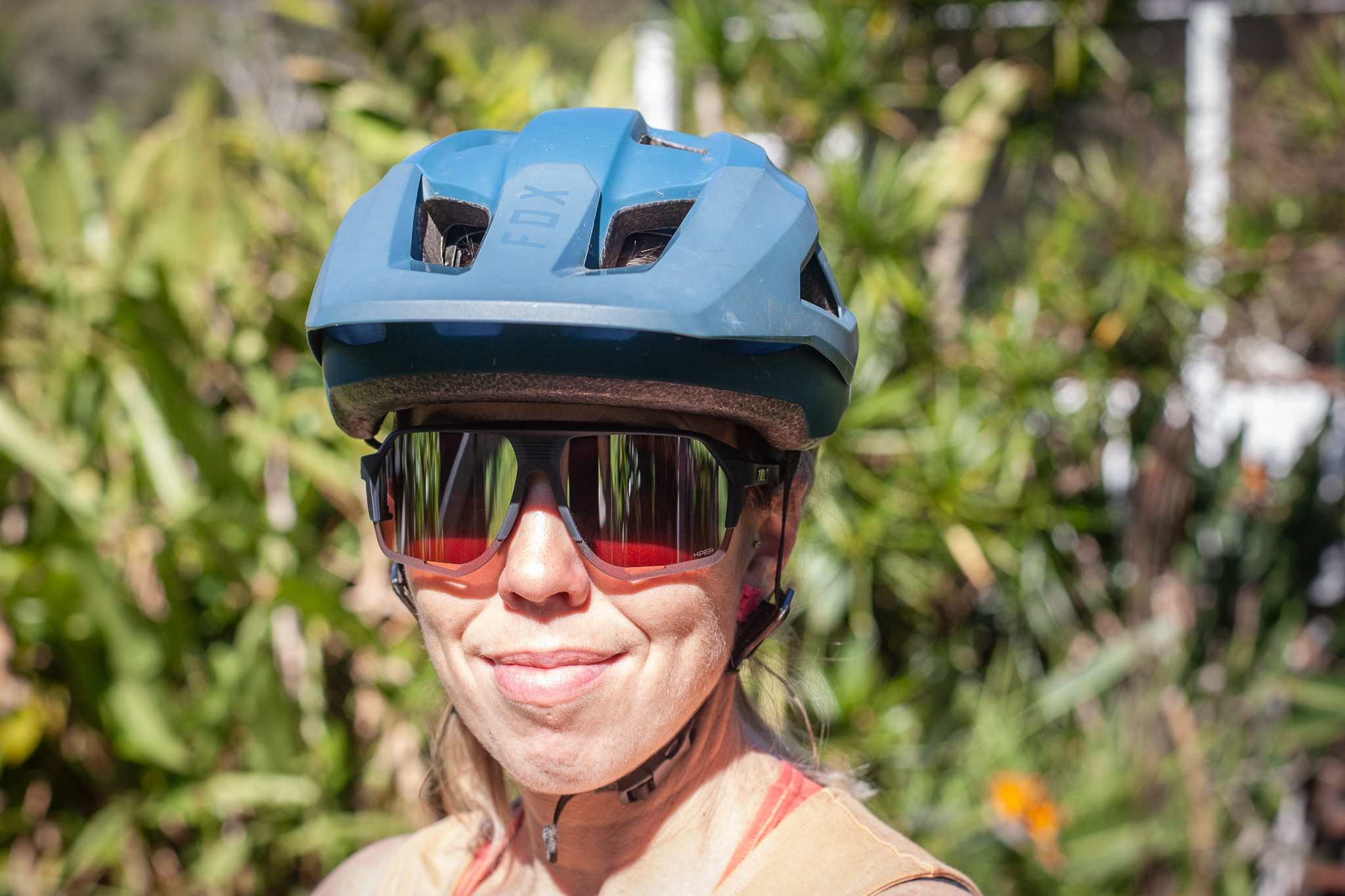
The Norvik are a wide-fit sunglass: however the rubberised temple tips, wraparound temple construction and replaceable nosepiece meant that despite their width they stayed in place on smaller faces. As for the side shields, I did notice there was reduced dry-eye on high speed descents, possibly because of reduced lateral airflow. The Norviks could be a great option for riding in high-glare environments or in early mornings and late afternoons when the sun sits low in the sky, allowing light-creep in your peripheral vision. Initially I wasn't in love with the design of the Norvik, but I found them a comfortable option, with a solidly performing lens in most conditions. Plus, they come with a spare clear lens making them even more versatile.
Shimano CE Technium – $119.95
Shimano CE Aerolite – $149.95
Heatwave Future Tech – $159.95
Heatwave Lazerface – $139.95
Heatwave Vector – $129.95
100 Percent Norvik – $329
100 Percent Hypercraft and Hypercraft XS – $279/$259
Pit Viper Try Hard – $199.69
Pit Viper Flip-Off – $164.69
POC Elicit – $345
POC Devour – $360
Oakley Sutro S – $239
Oakley Encoder Strike – $344
Magicshine Windbreaker – From $94.95
SunGod Velans – $355
SunGod Vulcans – From $270
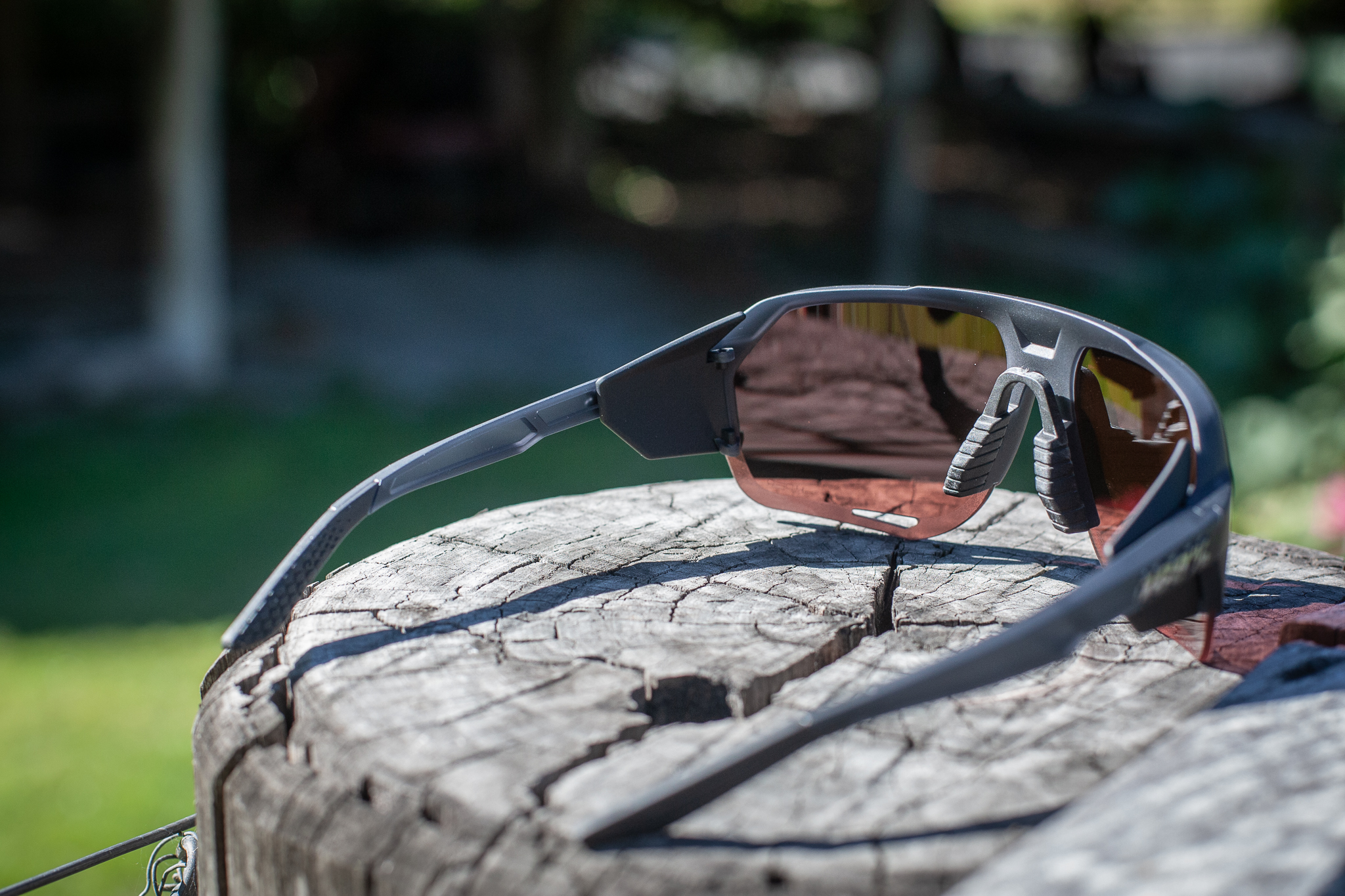
100 Percent Hypercraft and Hypercraft XS
$279, $259 (XS) | FEsports.com.au
Colours: Medium stone grey (tested), soft tact black (tested XS), soft tact white, black holographic, polished translucent lavender, matte black, matte copper, soft tact army green
Lens options: HiPER coral (tested), HiPER red multilayer mirror (tested, XS), smoke, clear, blue mirror, HiPER blue, HiPER silver, HiPER lavender, grey peak polar.
Weight: 23g, 20g (XS)
Contact: Adjustable rubber nose piece, suspended temple tips.
The 100 Percent Hypercraft are the lightest sunglasses on test at 23g (20g for the XS model), thanks to their frameless design and propriety blend of carbon and TR90 thermoplastic. This mix allows for ultralight glasses with the strength of carbon reinforcement. Like the Norvik, the Hypercraft also feature venting in the ‘aerodynamically angled’ lens as well as scratch resistance and hydrophobic and oleophobic lens treatment to repel water, dirt and oil.
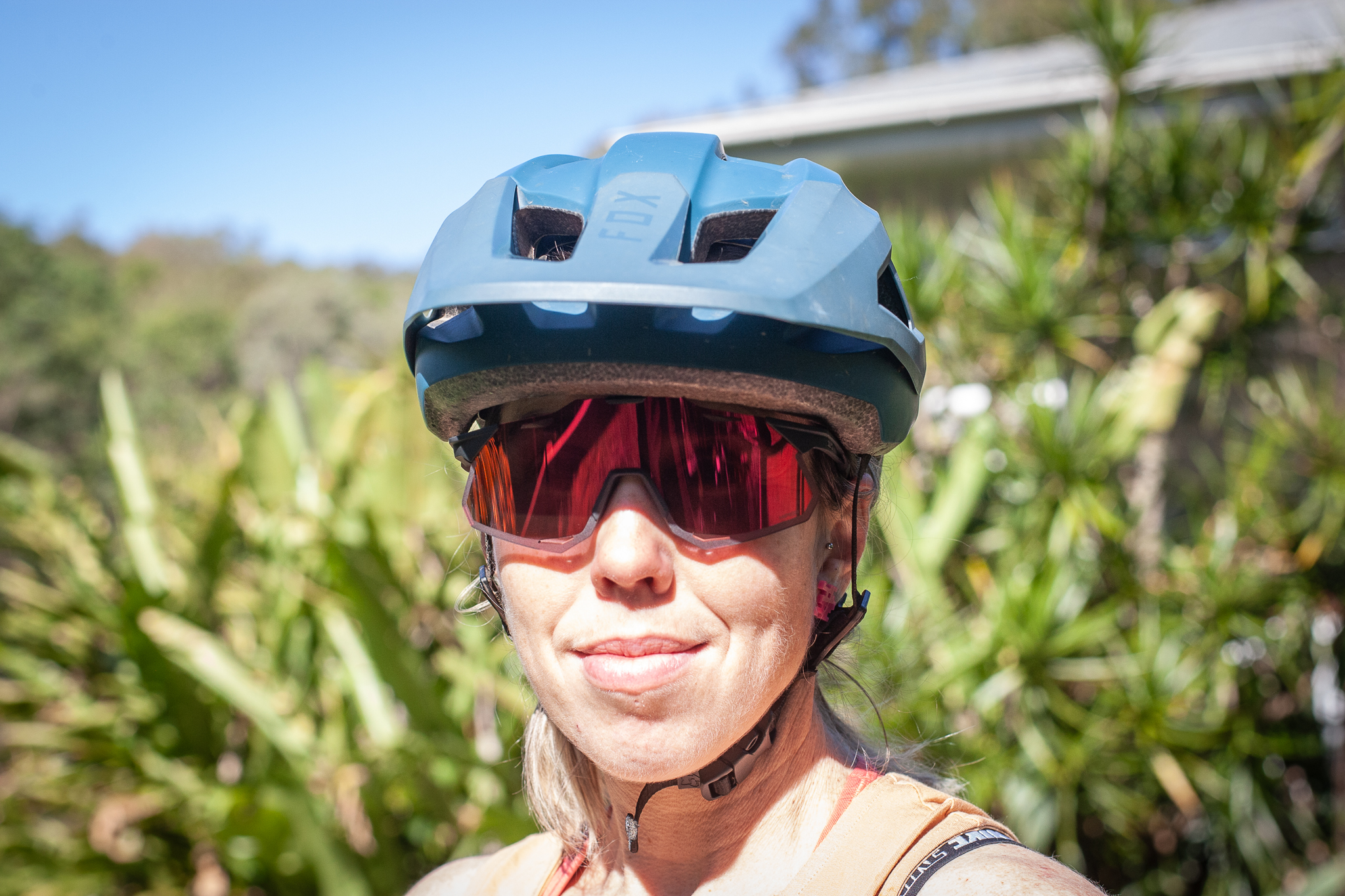
I found the fit of the Hypercraft to be exceptional: they are light weight enough to forget you’re wearing glasses which is supported by their wide-lens frameless design. The nosepiece is replaceable (and comes with a spare and secondary darker smoke coloured lens) and showed no signs of any movement or slide even on the roughest of trails. The rubberised temple tips also assisted with stability.
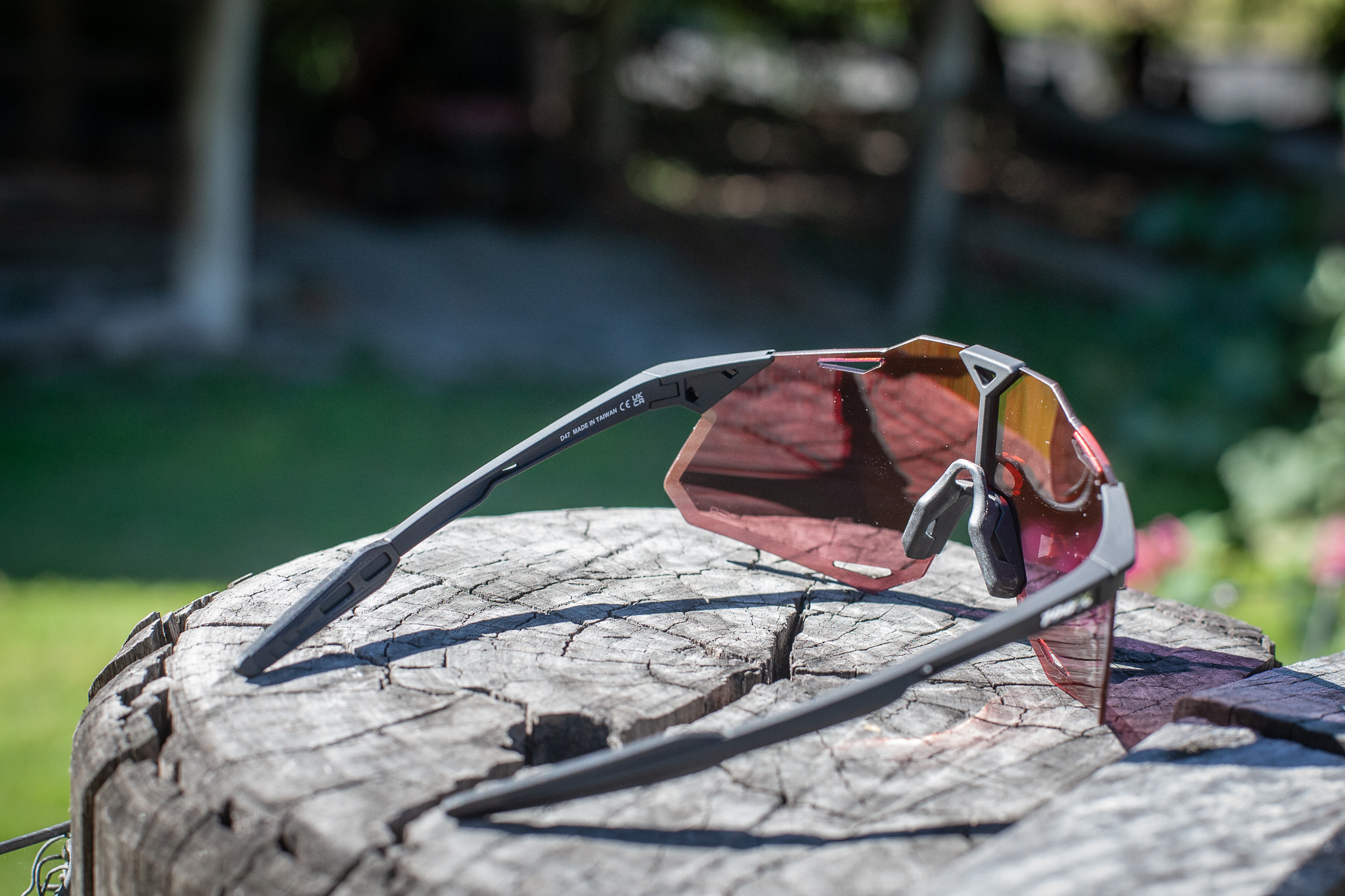
The HiPER coral lens tested is a rose/orange lens and rated as a category 1 lens, with 52% light transmission making it a perfect option for lower light or heavily dappled trails. For those who tend to ride to the trails on the road or have more open and exposed trails, no problem it’s an easy swap to the spare smoke lens, which is a darker category 3 lens with 12% light transmission (though doesn’t feature the contrasting HiPER technology). Removing and replacing the lens can be done manually by manipulating the nose piece strut and temples.
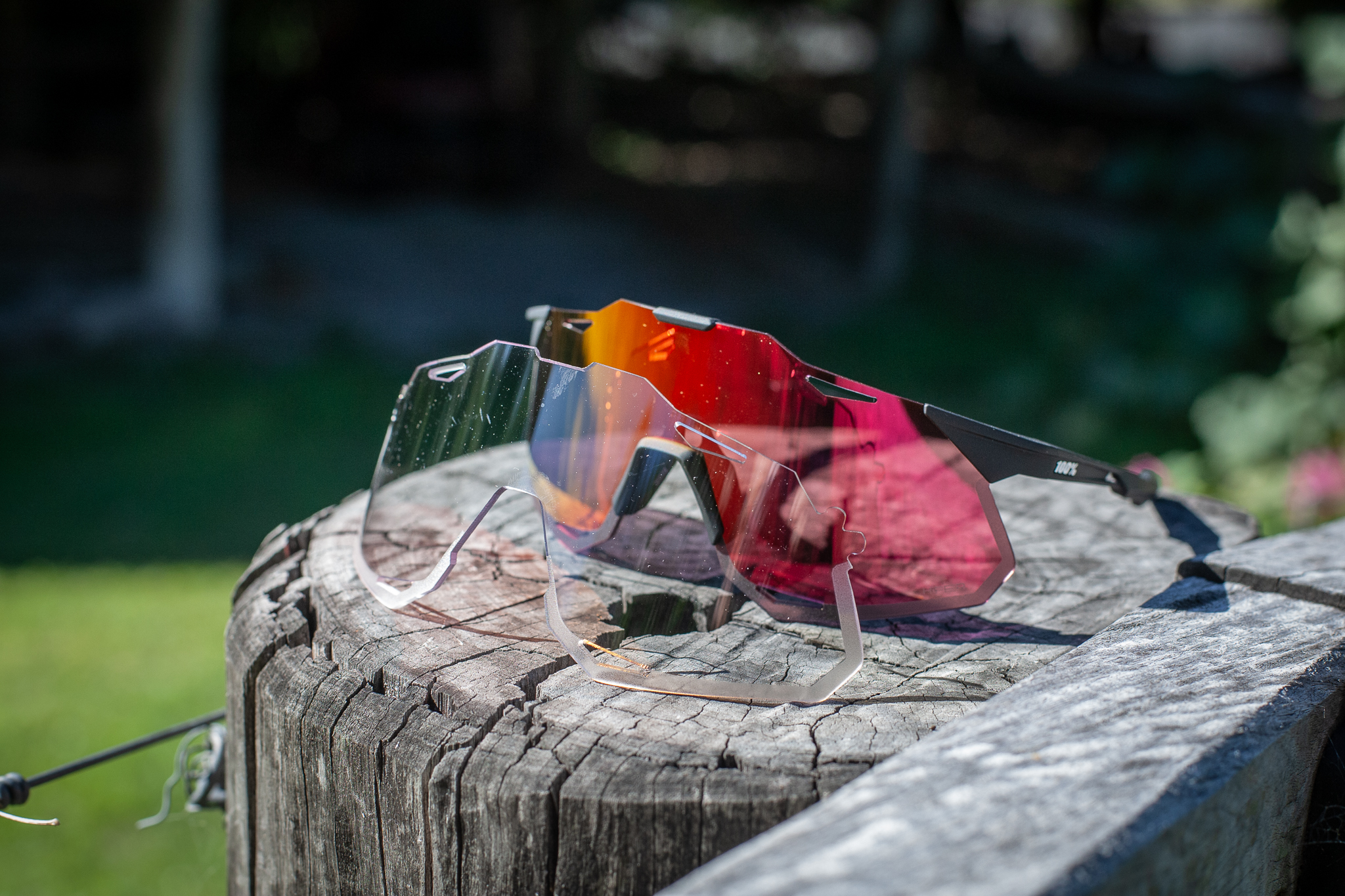
The Hypercraft XS model features all the same technology as the Hypercraft, in a ~20% smaller package. I found the nosepiece more comfortable on the classic Hypercraft. Because these are touted as a youth fit, I threw them on our smallest tester (age 11, full of attitude) and compared to other smaller models on test she picked these as the favourite for fit and clarity of lenses.
Shimano CE Technium – $119.95
Shimano CE Aerolite – $149.95
Heatwave Future Tech – $159.95
Heatwave Lazerface – $139.95
Heatwave Vector – $129.95
100 Percent Norvik – $329
100 Percent Hypercraft and Hypercraft XS – $279/$259
Pit Viper Try Hard – $199.69
Pit Viper Flip-Off – $164.69
POC Elicit – $345
POC Devour – $360
Oakley Sutro S – $239
Oakley Encoder Strike – $344
Magicshine Windbreaker – From $94.95
SunGod Velans – $355
SunGod Vulcans – From $270
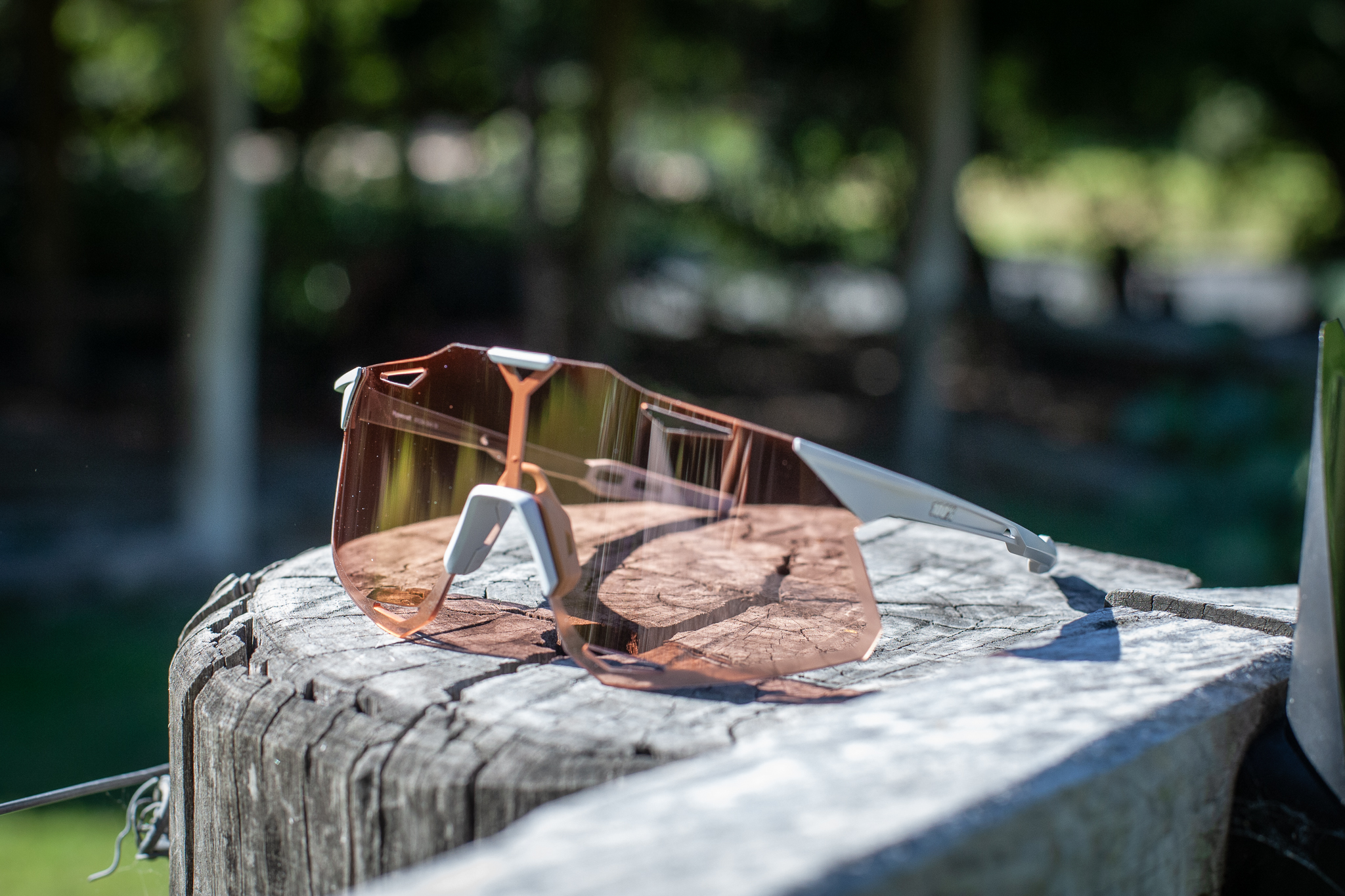
Pit Viper Try Hard
$199.69 | pitviper.au
Colours: Bonaire breeze (turquoise purple) and Son of beach (black/white fleck and magenta) (tested), yellow, orange, black
Lens options: Blue/purple revo and pink/amber (tested), black smoke, silver revo, brown,
Weight: 38g
Contact: Adjustable rubber nose piece, rubberised ear socks.
Pit Viper are huge in the US and are an emerging player: especially with key mountain bike influencer/athlete Zoe Cuthbert touring their range of gnarly shades. The Pit Viper Try Hard’s are the brands first model to offer interchangeable lenses, and I they come in mild and wild colour options.
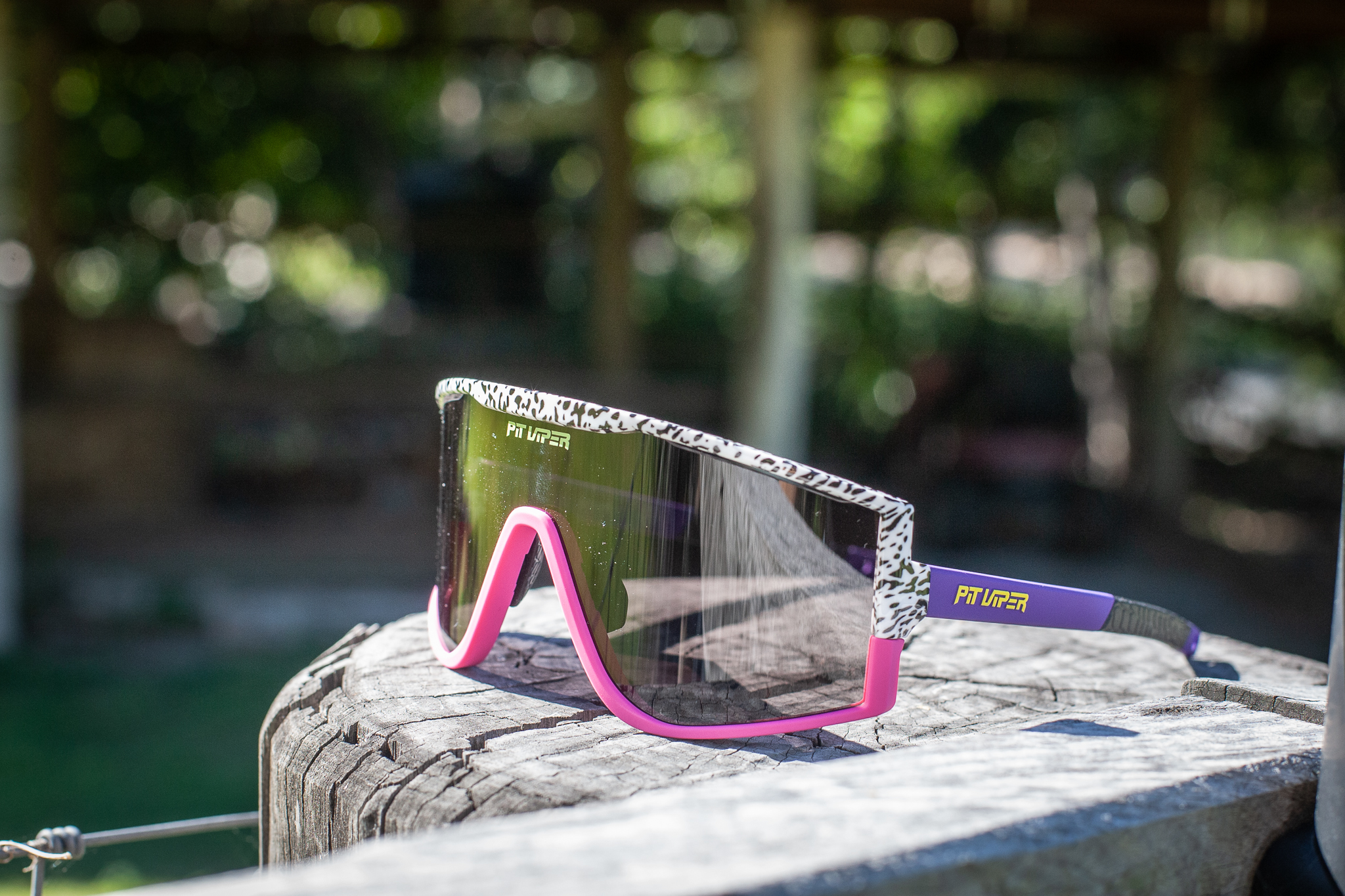
Frame construction is TR90 thermoplastic, and the Try Hard’s feature a click and adjust nosepiece as well as rubberised ear socks. While the default lens on both models supplied were quite dark (the darker end of category 3 lenses), they both came with a lighter pink/amber lens with 44% light transmission, which were much better for trail riding. The interchangeable lens also highlighted another key feature: you can convert the glasses from a full frame to half frame by swapping over the extra nosepiece to the frame, and removing the lower frame. It was a simple and easy process, and I actually preferred the look of the half frame option.
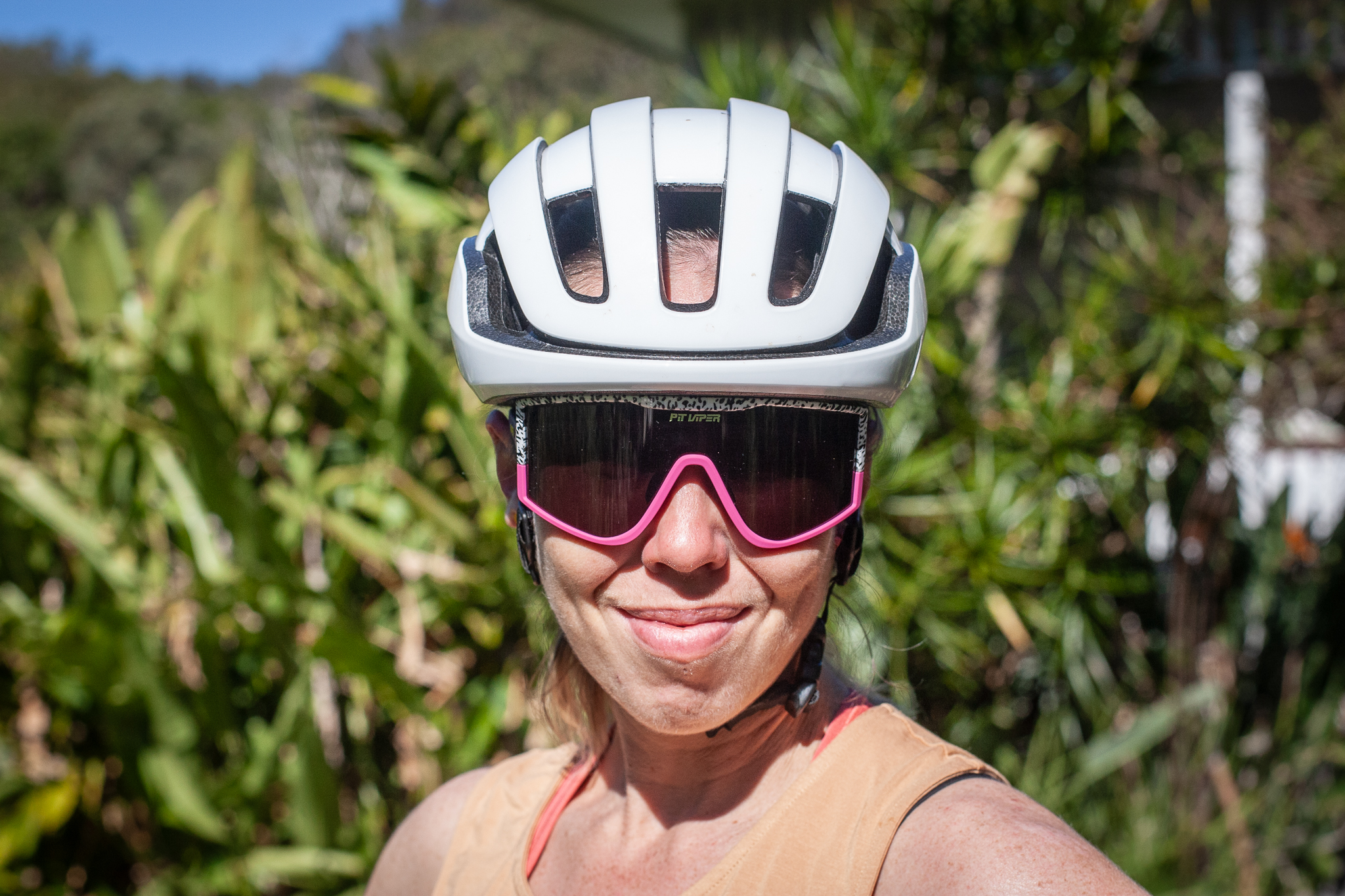
I found the fit to be generous and while they stayed mostly in place, they certainly weren’t as firm as others on test. The fit was better on my secondary tester. The pink/amber lens was more than adequate in the trail, and the category 3 lens was pretty dark in ,my early morning shreds. Swapping it for the pink/amber lens made the glasses infinitely more capable, and allowed for better trail vision. While I wouldn’t put the highlight or contrast of these lenses in the same category as that of the POC Clarity or the 100 Percent HiPER, they still held their own (and at a much lower price point!). If you’re after some gnarly aesthetics, and a glasses that can be both full and half frame, the Try Hard’s may be a great option for you.
Shimano CE Technium – $119.95
Shimano CE Aerolite – $149.95
Heatwave Future Tech – $159.95
Heatwave Lazerface – $139.95
Heatwave Vector – $129.95
100 Percent Norvik – $329
100 Percent Hypercraft and Hypercraft XS – $279/$259
Pit Viper Try Hard – $199.69
Pit Viper Flip-Off – $164.69
POC Elicit – $345
POC Devour – $360
Oakley Sutro S – $239
Oakley Encoder Strike – $344
Magicshine Windbreaker – From $94.95
SunGod Velans – $355
SunGod Vulcans – From $270
Pit Viper Flip-off
$164.69 | pitviper.au
Colours: Copacabana (pink speckle, tested) white speckle, blue speckle, black speckle.
Lens options: Blue/purple revo (tested), black smoke, grey.
Weight: 38g
Contact: Rubber nose piece, rubberised temples.
The Pit Viper flip off brings 80s aesthetics with the functionality of…flip-up lenses! Pit Viper state that these are a medium fit frame, similar to that of the Try Hard, however the temple construction is more sharply curved allowing a firmer fit for smaller heads. I had no problems with fit or movement of the Flip-off’s on even the roughest of descents, and they could be used without movement on our smallest tester (11yo). The rubberised nosepiece itself is fixed and quite wide, however due to the firm fit of the temples this didn’t affect fit performance on the trails.
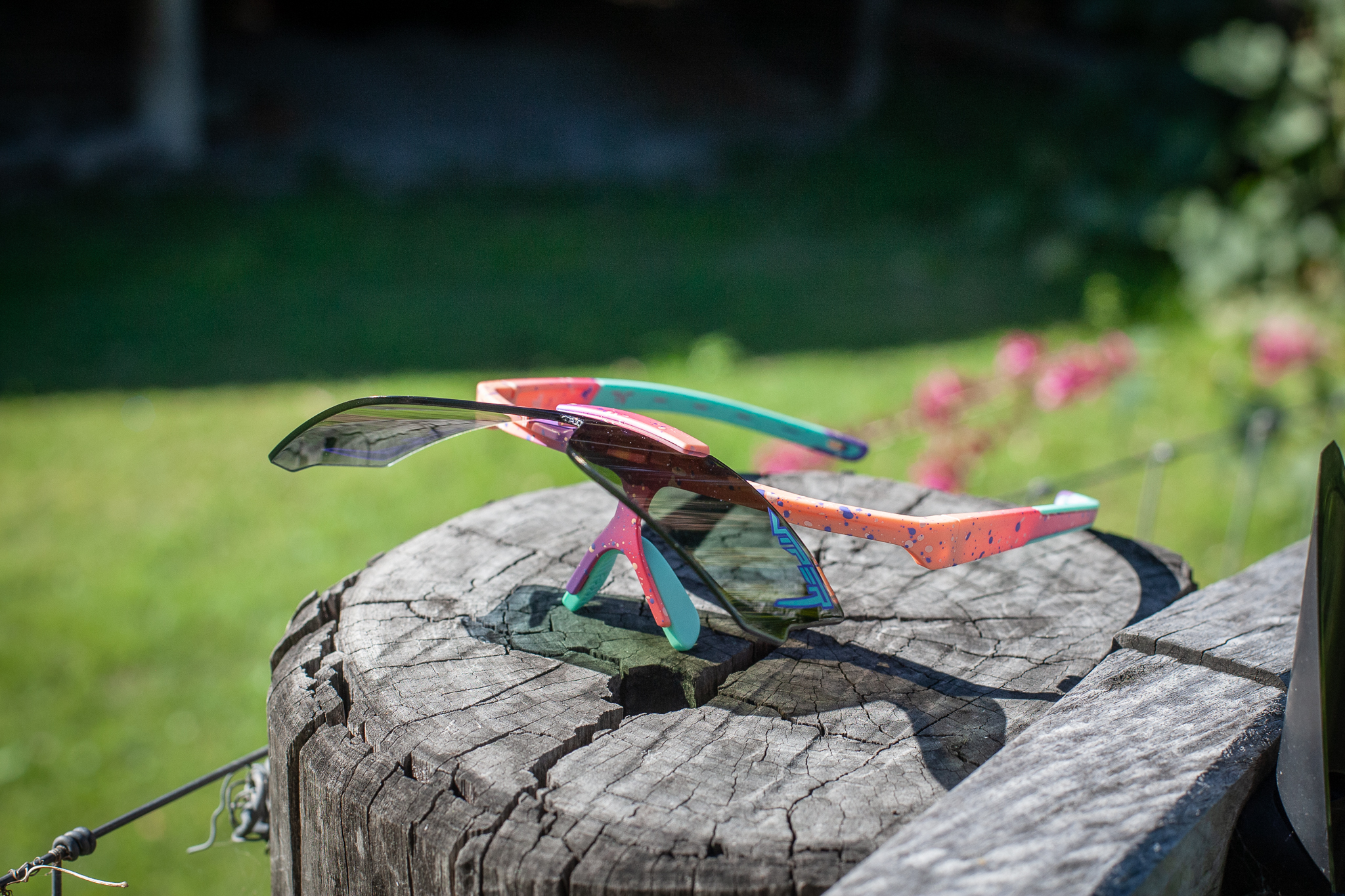
These glasses are called the Flip-off’s because they are a flip-up sunglass: push up from the bottom of the lens and they protrude horizontally allowing for less fogging and many opportunities to feign deep concern or interest by stopping and looking at your riding partner seriously while flipping up your lenses. The flip up action itself was quite firm requiring one hand to stabilise the frame from the top while flipping up the lens from the bottom and as such, it’s not an ‘on the move’ action. Flipping down however requires only one hand, just in case you take off from a trail and forgot your lenses were up!
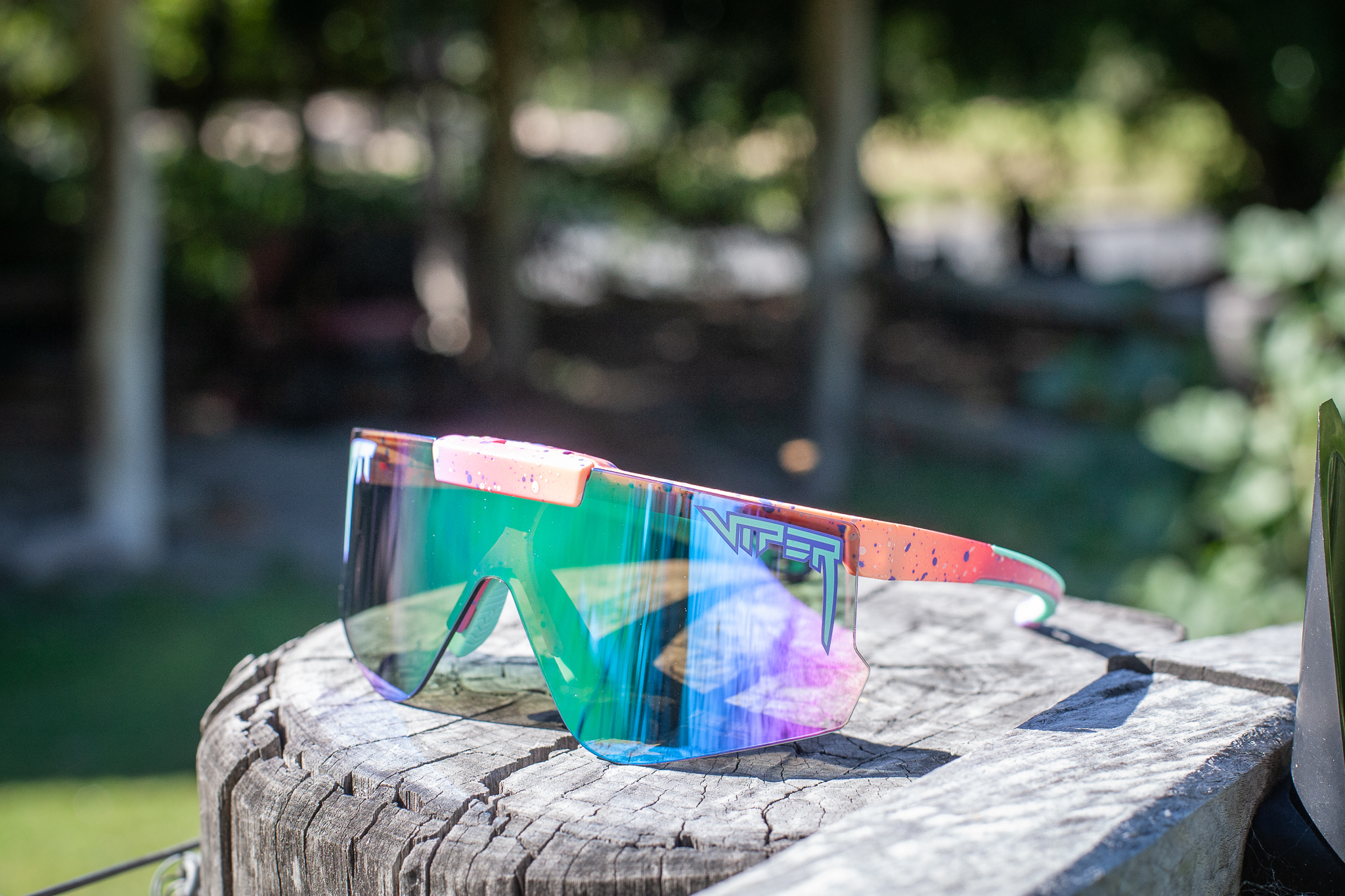
The lens tested is the same black/puple revo colourway as the primary lens of the Try Hard, however the Flip-offs are a fixed lense option: they’re bolted to the upper part of the frame and they don’t feature an alternate lens. The lens itself is a category 3 allowing 15% light transmission; as such these are a great option for brighter and more open trails or alpine areas, and less capable in dark or dappled forest trails. All in all, these are a stable-fitting, party-themed sunglasses that even had a party trick: the flip up.
Shimano CE Technium – $119.95
Shimano CE Aerolite – $149.95
Heatwave Future Tech – $159.95
Heatwave Lazerface – $139.95
Heatwave Vector – $129.95
100 Percent Norvik – $329
100 Percent Hypercraft and Hypercraft XS – $279/$259
Pit Viper Try Hard – $199.69
Pit Viper Flip-Off – $164.69
POC Elicit – $345
POC Devour – $360
Oakley Sutro S – $239
Oakley Encoder Strike – $344
Magicshine Windbreaker – From $94.95
SunGod Velans – $355
SunGod Vulcans – From $270
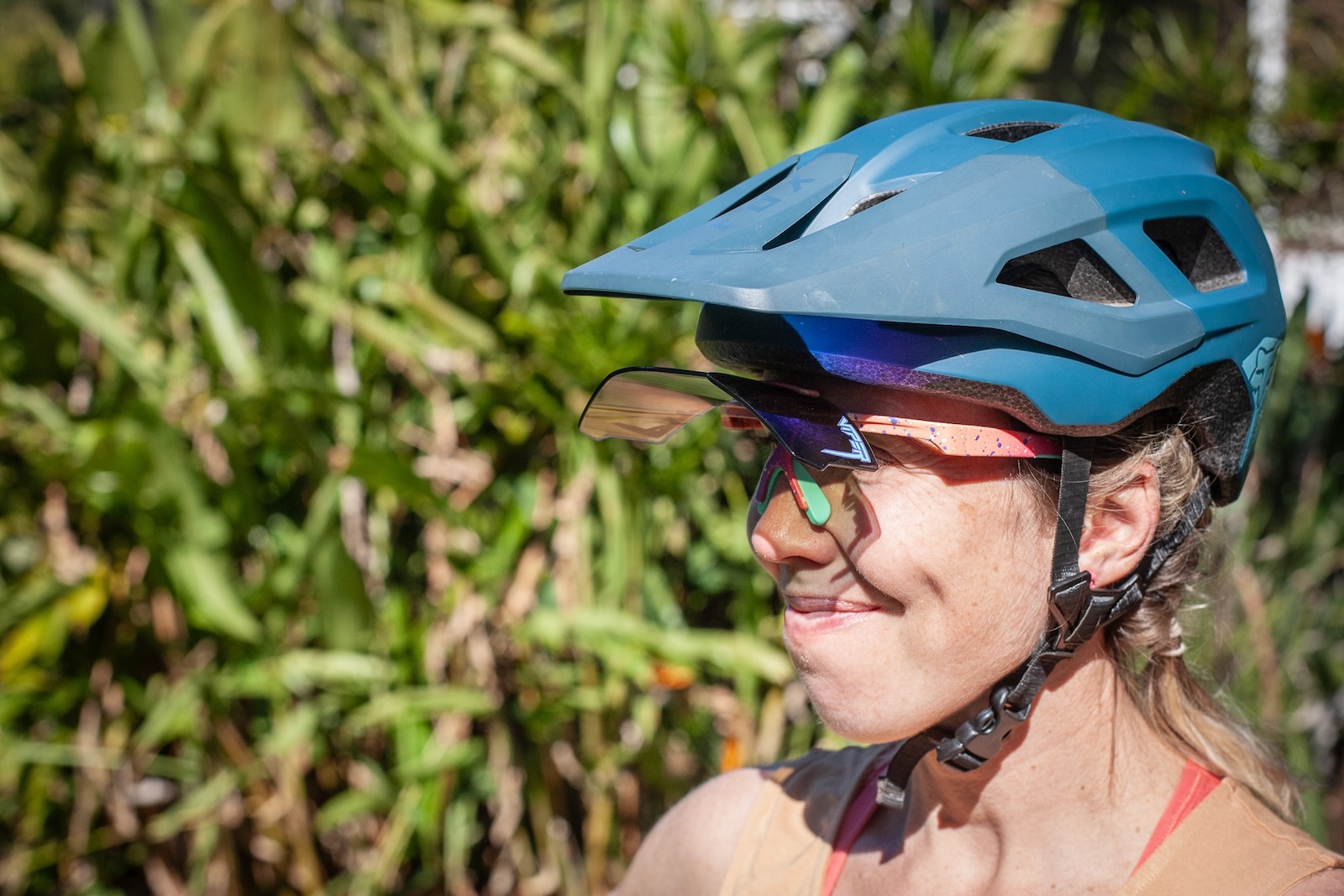
POC Elicit
$345 | au.pocsports.com/
Colours: Uranium black (tested), fluorescent orange, hydrogen white, lemon calcite, sapphire purple, actinium pink.
Lens options: Violet gold mirror and clear (tested), violet silver mirror, Clarity define violet mirror, Clarity define no mirror.
Weight: 30g
Contact: rubber, replaceable nose piece and integrated ear socks.
A company founded on innovation, POC aren’t afraid to rock the boat aesthetically if it means improved safety. With their ethos of reducing weight and adding style, POC developed the Elicit sunglasses. The frameless lens is oversized and offers full coverage, while their range of Clarity lenses promise sharper vision in all conditions. The construction of the glasses themselves is incredibly simple: a single curved frame with snap-in hinges supporting the bio-grilamid temples. POC states that the sunglasses are made from a majority of renewable sources. The soft, silicone-like nose piece comes with an alternate sizing option, while the ear socks are in-moulded.
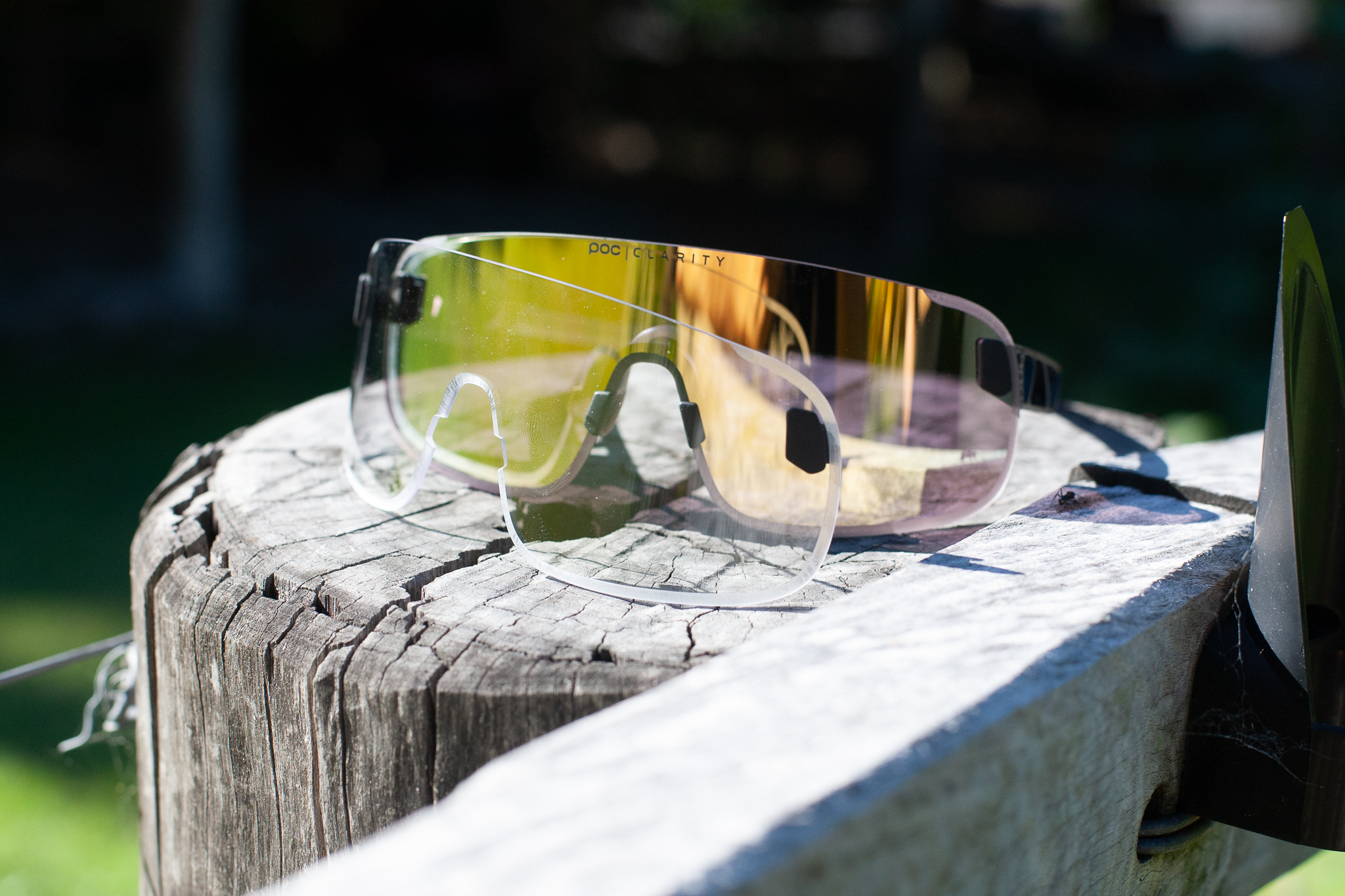
The violet gold mirror lens is treated with POC’s trademarked Ri-Pel, which protects from ‘dirt, water, sweat, salt, oil and dust’ and ensures ease of cleaning. A clear lens is also included. With a single frame with snap-in temples, the structure wasn’t as firm and sturdy as other offerings. The addition of a smaller nosepiece with a more silicone-like texture also allowed customisation for smaller faces.
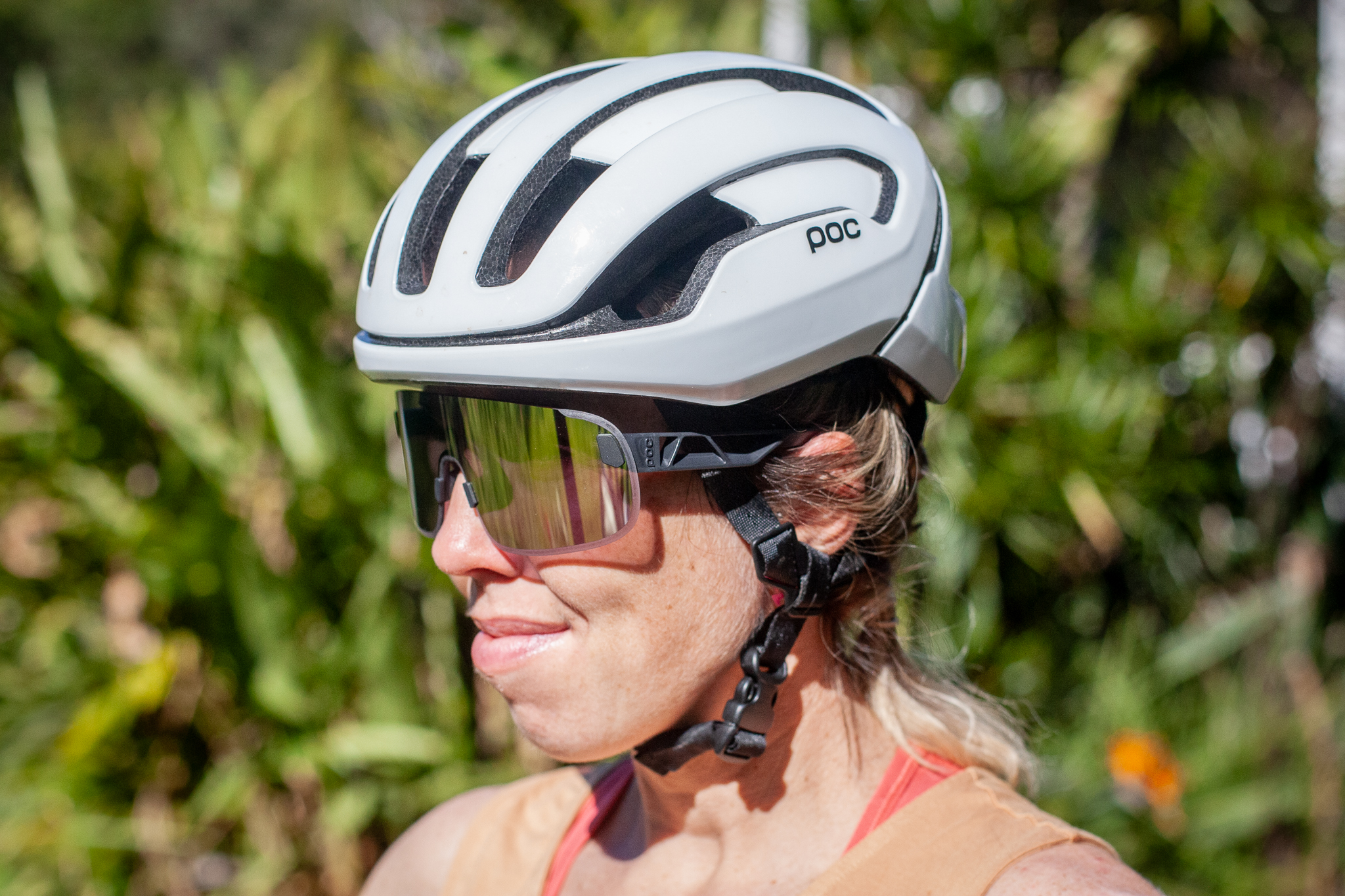
Hitting the trail, the violet gold mirror offered amazing clarity, however lacked some of the brightness and trail contrast offered from some of the other trail lenses on test. The large frameless lens was compatible with trail and XC helmets, and offered full coverage from the savage winter wind. On the fast and rough stuff the glasses stayed firmly in place despite their less rigid construction, likely due to the extra-grip from the nosepiece and in-molded temple tips. The Elicit offers versatility in having a slightly darker lens, meaning it was an easy pick when heading out on other two wheeled adventures on the gravel or road bike in moderate-light conditions, as well as brighter dirt adventures.
Shimano CE Technium – $119.95
Shimano CE Aerolite – $149.95
Heatwave Future Tech – $159.95
Heatwave Lazerface – $139.95
Heatwave Vector – $129.95
100 Percent Norvik – $329
100 Percent Hypercraft and Hypercraft XS – $279/$259
Pit Viper Try Hard – $199.69
Pit Viper Flip-Off – $164.69
POC Elicit – $345
POC Devour – $360
Oakley Sutro S – $239
Oakley Encoder Strike – $344
Magicshine Windbreaker – From $94.95
SunGod Velans – $355
SunGod Vulcans – From $270
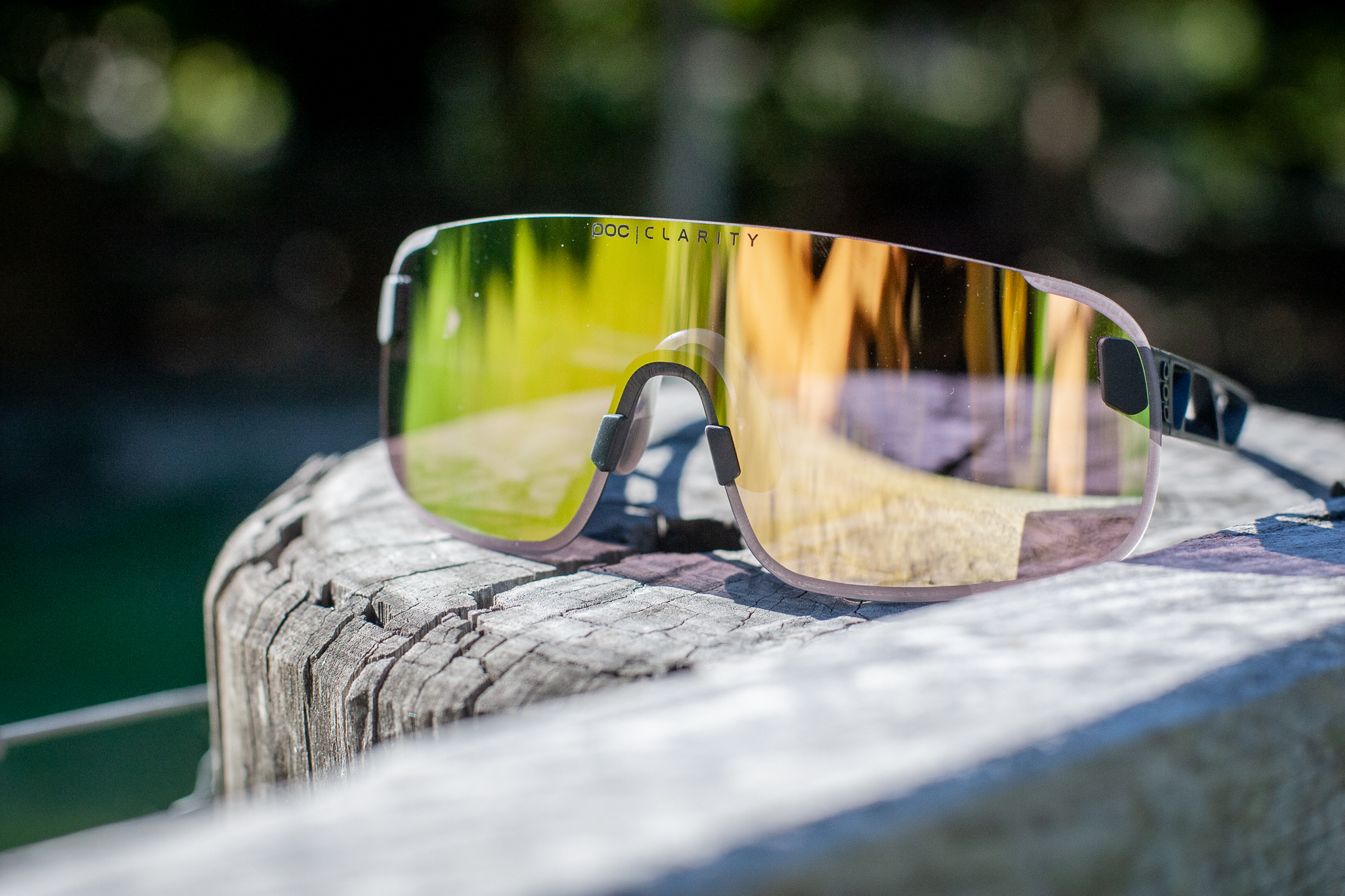
POC Devour
$360 | au.pocsports.com/
Colours: Uranium black, transparent crystal, epidote green translucent (tested), Himalayan salt, opal blue translucent.
Lens options: Clarity trail silver, Clarity trail brown silver, translucent brown silver, Clarity road gold, Clarity MTB silver mirror (tested), clear.
Weight: 41g
Contact: adjustable rubber nose piece, plastic adjustable temples with small rubber temple tips.
The POC Devour are without a doubt the largest, and perhaps the most aesthetically controversial glasses on test. The large, oversized lens breaks with cycling sunglasses tradition and actually expands upon the frame. With the Devour, POC capitalise on their extensive frame real-estate, paying homage to the their ski background.
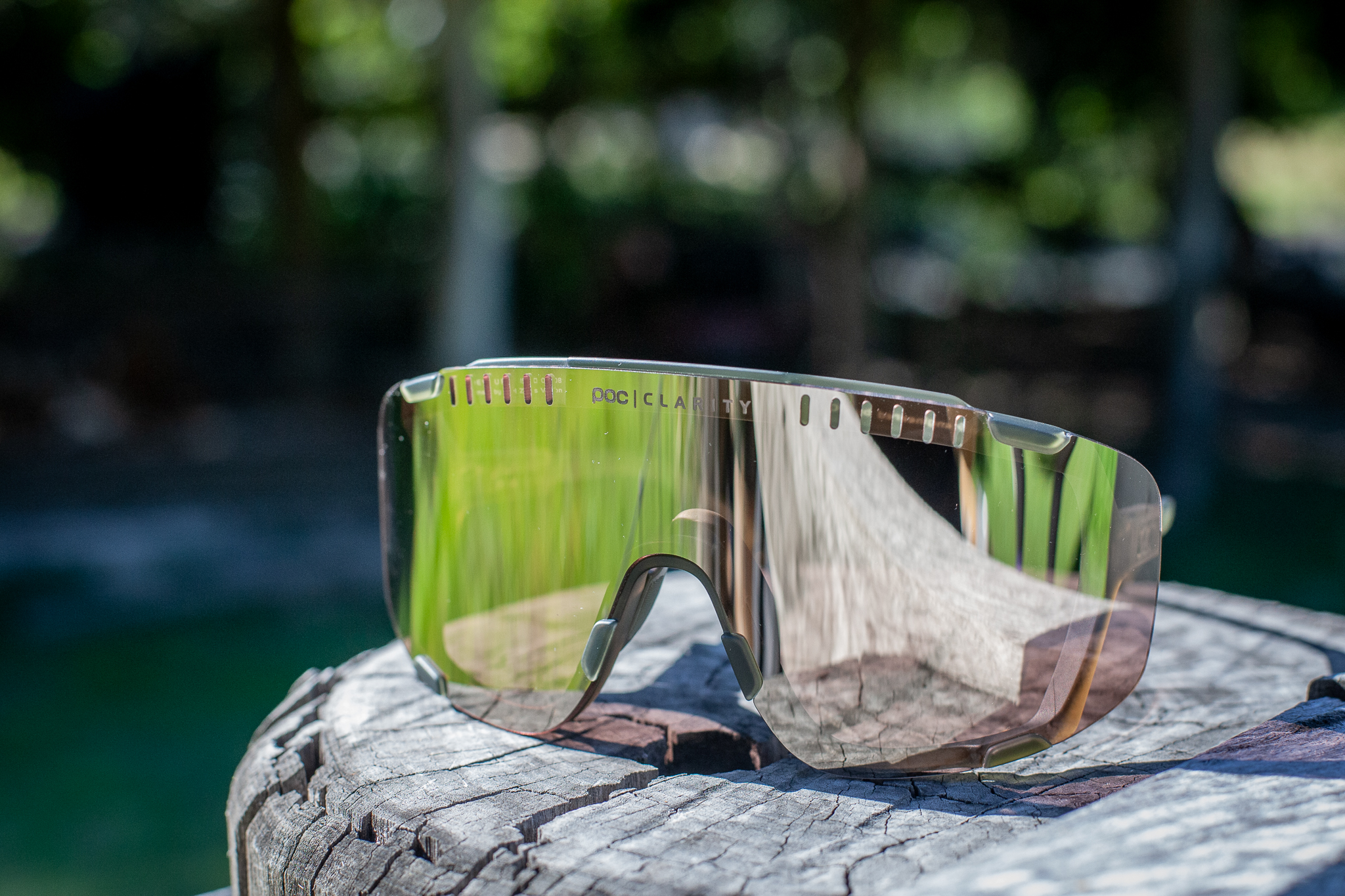
The Devour is one of the few offerings tested that feature adjustable temples with four different temple lengths, making them a versatile option for all different face shapes. I used these on the smallest size, which allowed a very snug and stable fit despite their oversized aesthetic. The lens tested was the Clarity MTB Silver Mirror; a category 2 lens that offered extremely clear vision and exceptional performance in dappled or shadowed trails, with more of an orange-brown hue to highlight the trail compared to the brown-rose hue of the POC Elicit. In addition to the lens vision, the Clarity MTB lens featured ventilation holes around the brow line, and I never had any issues with fogging.
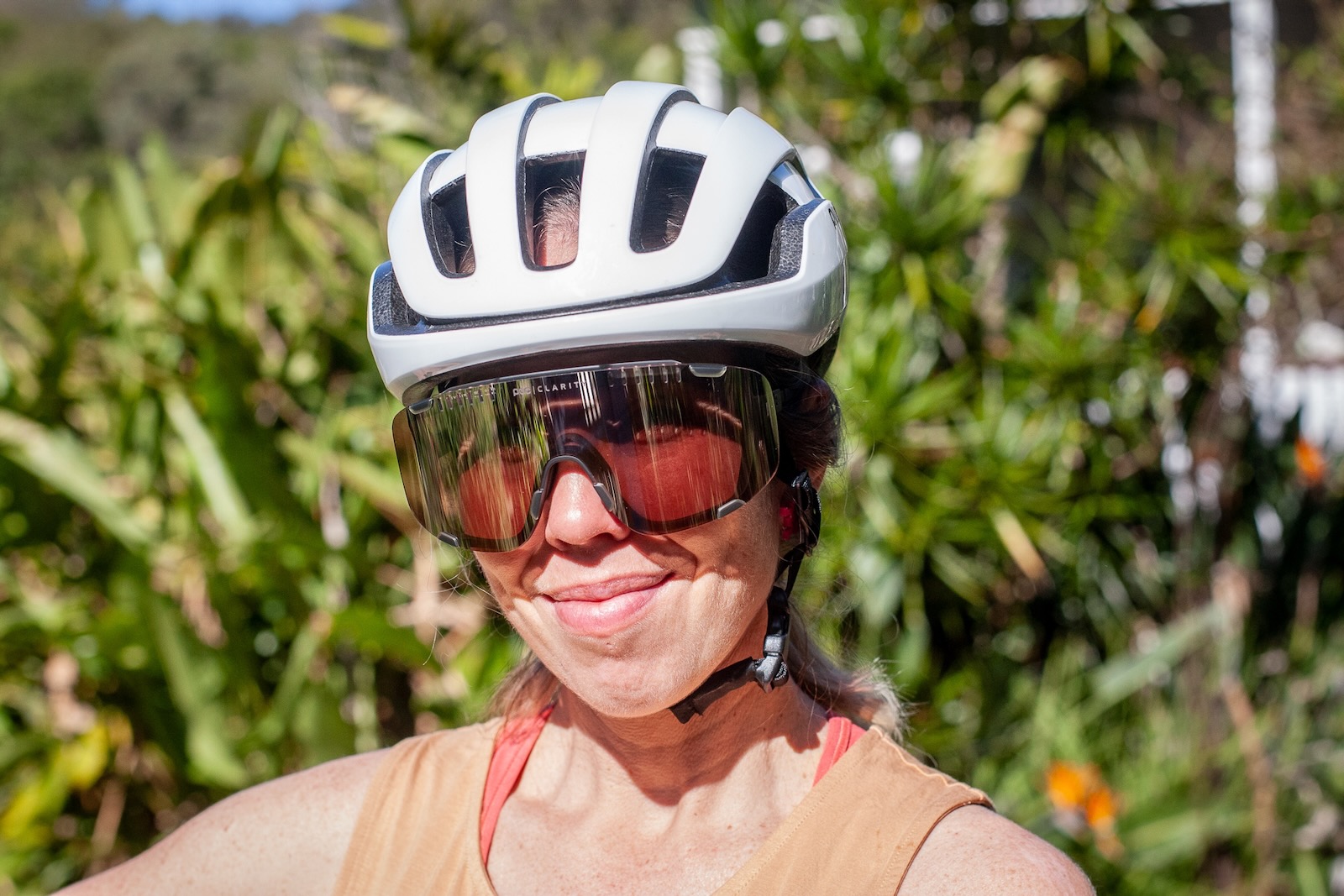
These glasses are a top shelf offering at $360, and as such I expected a lot from them, but the Devour really grew on me throughout the testing. I initially raised my eyebrows at these, but they ended up one of my top picks for both lens clarity and fit. They stayed stable during rough descents, and we I valued the extra peripheral vision that the oversized lens offered. Though the lens sat within the frame, it never obstructed my vision on the trail. The Devour is a premium offering for the uncompromising racer or trail rider who wants the best possible lens clarity available.
Shimano CE Technium – $119.95
Shimano CE Aerolite – $149.95
Heatwave Future Tech – $159.95
Heatwave Lazerface – $139.95
Heatwave Vector – $129.95
100 Percent Norvik – $329
100 Percent Hypercraft and Hypercraft XS – $279/$259
Pit Viper Try Hard – $199.69
Pit Viper Flip-Off – $164.69
POC Elicit – $345
POC Devour – $360
Oakley Sutro S – $239
Oakley Encoder Strike – $344
Magicshine Windbreaker – From $94.95
SunGod Velans – $355
SunGod Vulcans – From $270
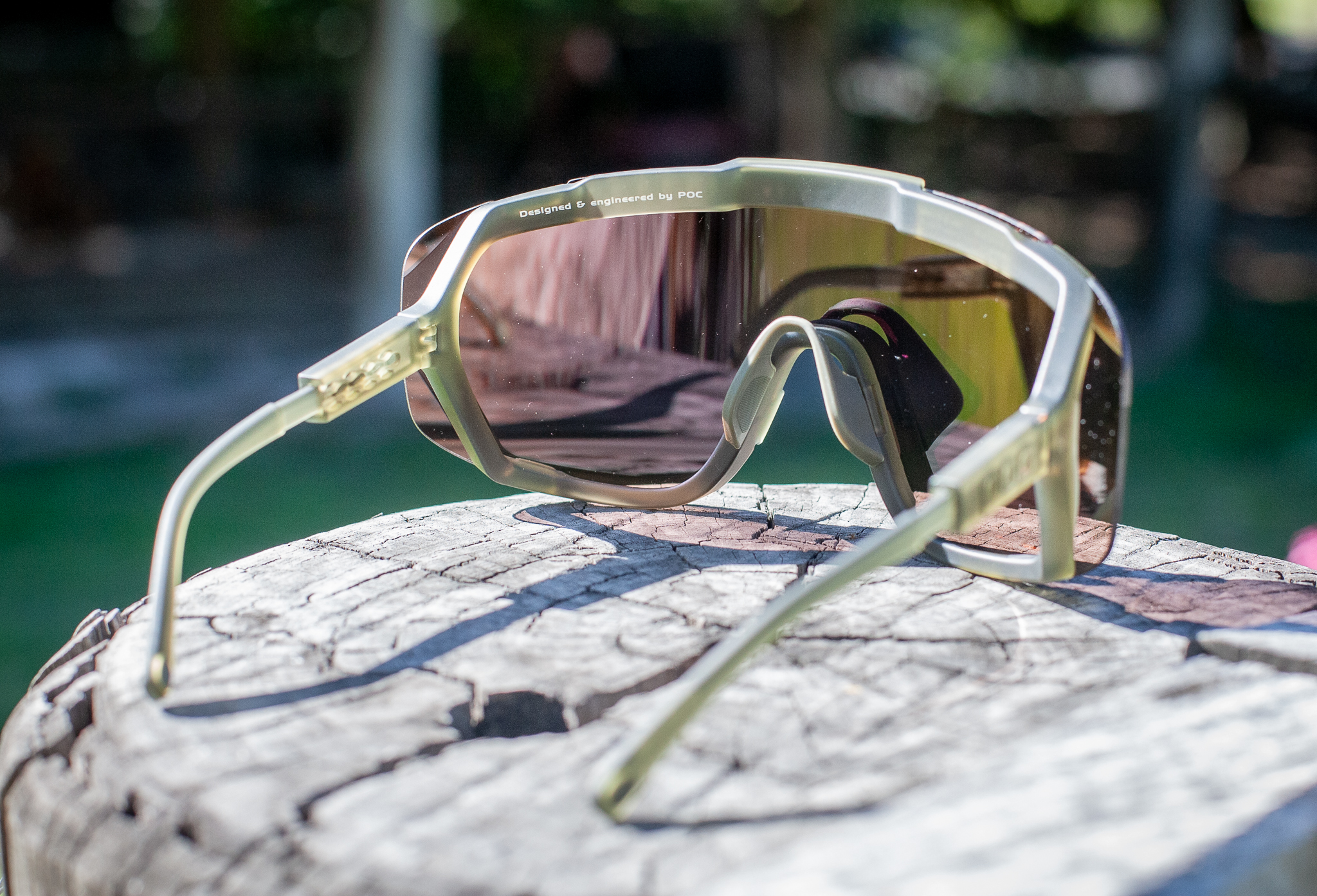
Oakley Sutro S
$239 | oakley.com/en-au
Colours: Matte black (tested), polished black, matte white, matte navy, matte carbon
Lens options: Prizm road black (tested), Prizm ruby, Prizm 24k, Prizm jade, Prizm trail torch, Prizm sapphire
Weight: 30g
Contact: Adjustable rubber nose piece, suspended temple tips.
Oakley have been instrumental in the development of sunglasses technology from their first offerings in the 80s: the Eyeshade, worn by none other than cycling legend Greg Lemond. The model tested here, the Sutro S, takes their popular Sutro model and scales it down into a smaller package. A full frame option with adjustable nose piece, the Sutro S relies on shaped and curved temples to hold the glasses steadily in place. At 30g, the Sutro offers a durable ‘O Matter’ frame that promises durability and comfort. These glasses appear and feel much more durable than many other options on test.
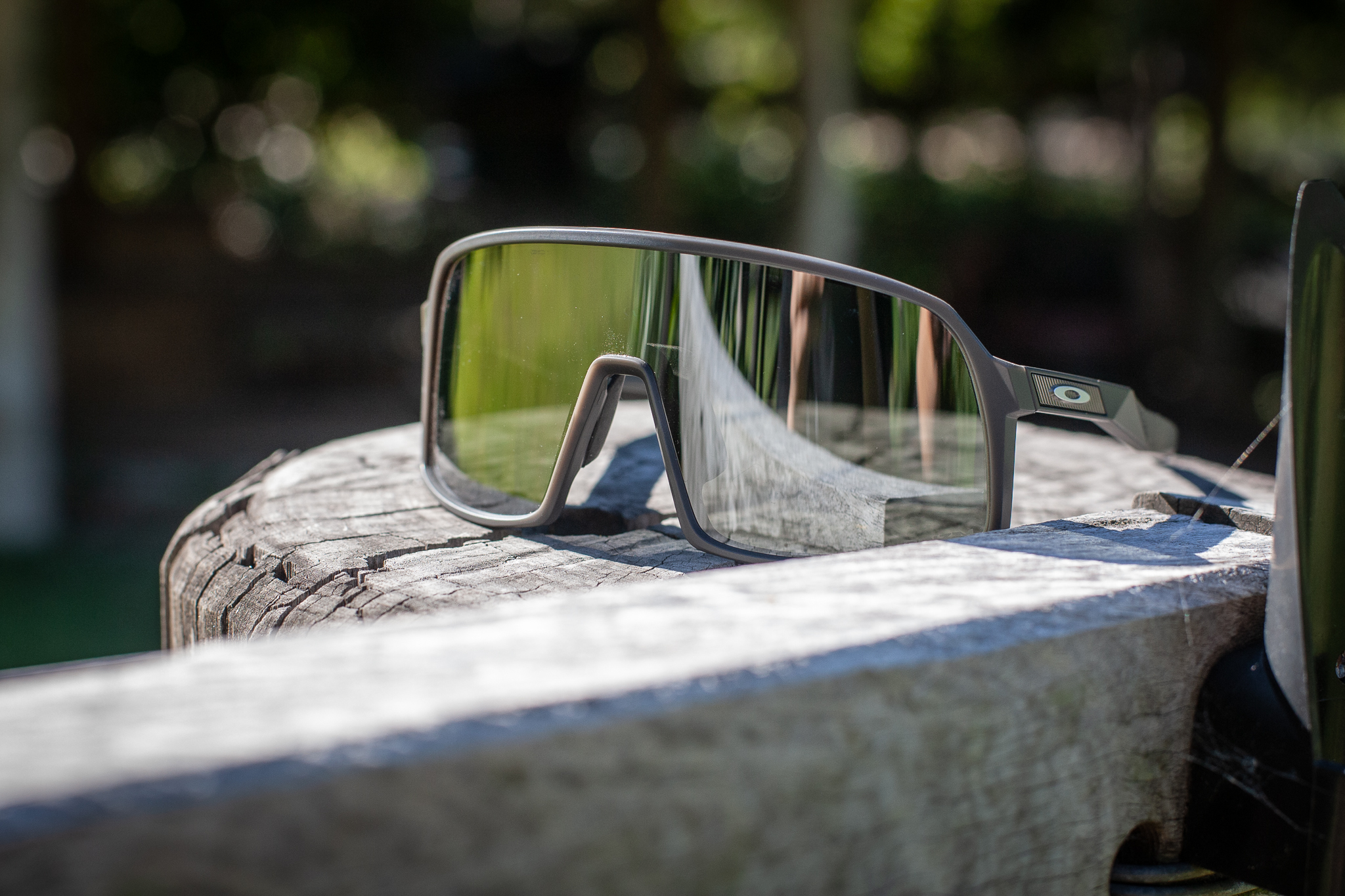
Despite the full frame construction, the Sutro S features a large curved Prizm Road lens and can be replaced manually by manipulating the frame. For this test we found the Prizm Road to be on the darker side: as a category 3 lens Oakley state it transmits 11% of light, with a rose tint these glasses are better for brighter days or open trails.The Prizm road lens did offer increased contrast compared to many other category 3 lens glasses on test.
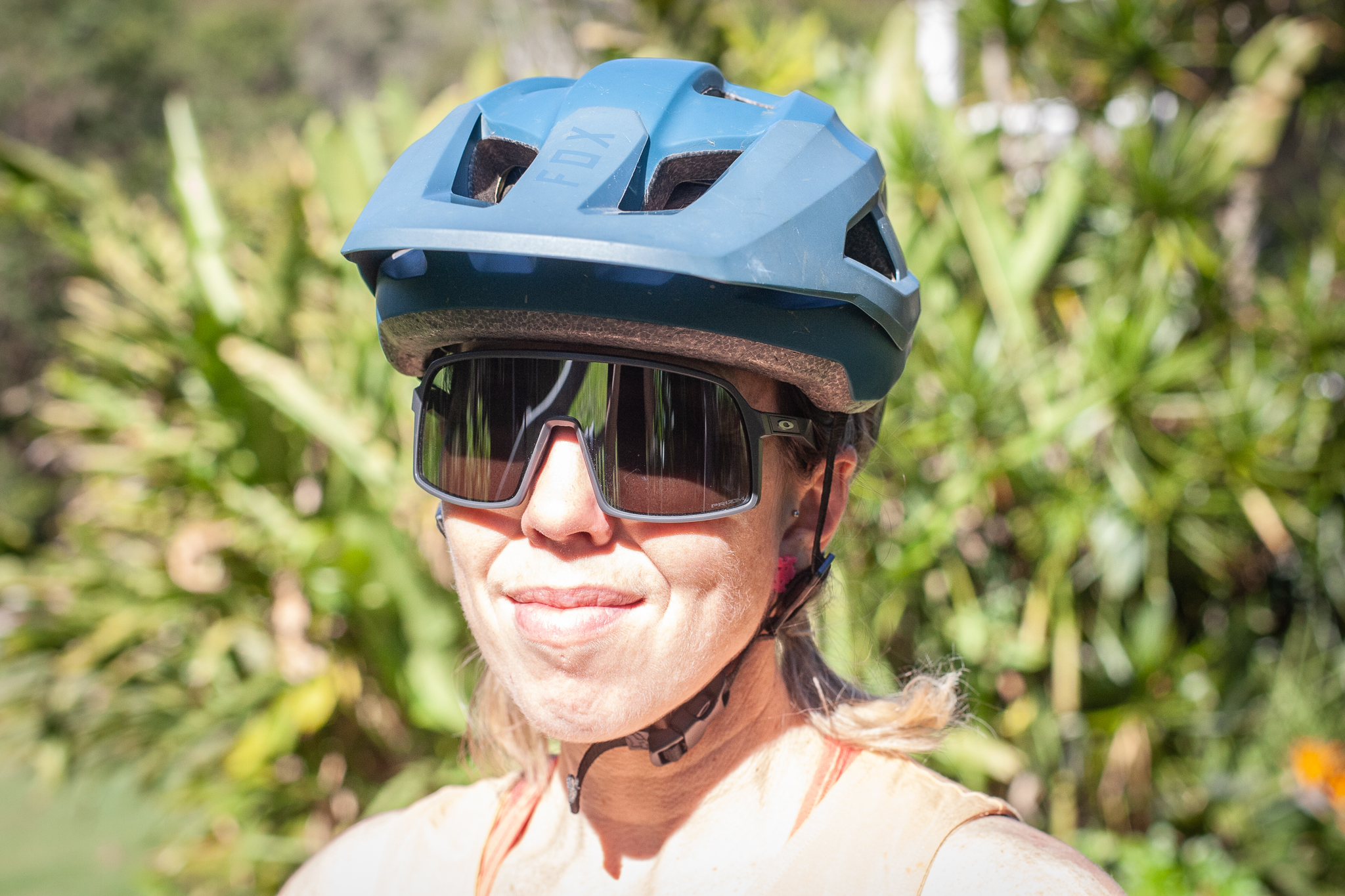
I found these to be the best fitting glasses for my face out of the box, with no need for adjustment at any time on the trail. These were my favourite for brighter midday rides in the winter sun, although I would have liked to have tested the lighter, mountain bike specific Prizm Trail lens. At $239, they’re on the mid-high price range of glasses on test, but these are a great all round cycling option: their light weight, exceptional fit and construction quality had me pretty impressed. For those of you with larger or wider faces, the Sutro classic may be a better option.
Shimano CE Technium – $119.95
Shimano CE Aerolite – $149.95
Heatwave Future Tech – $159.95
Heatwave Lazerface – $139.95
Heatwave Vector – $129.95
100 Percent Norvik – $329
100 Percent Hypercraft and Hypercraft XS – $279/$259
Pit Viper Try Hard – $199.69
Pit Viper Flip-Off – $164.69
POC Elicit – $345
POC Devour – $360
Oakley Sutro S – $239
Oakley Encoder Strike – $344
Magicshine Windbreaker – From $94.95
SunGod Velans – $355
SunGod Vulcans – From $270
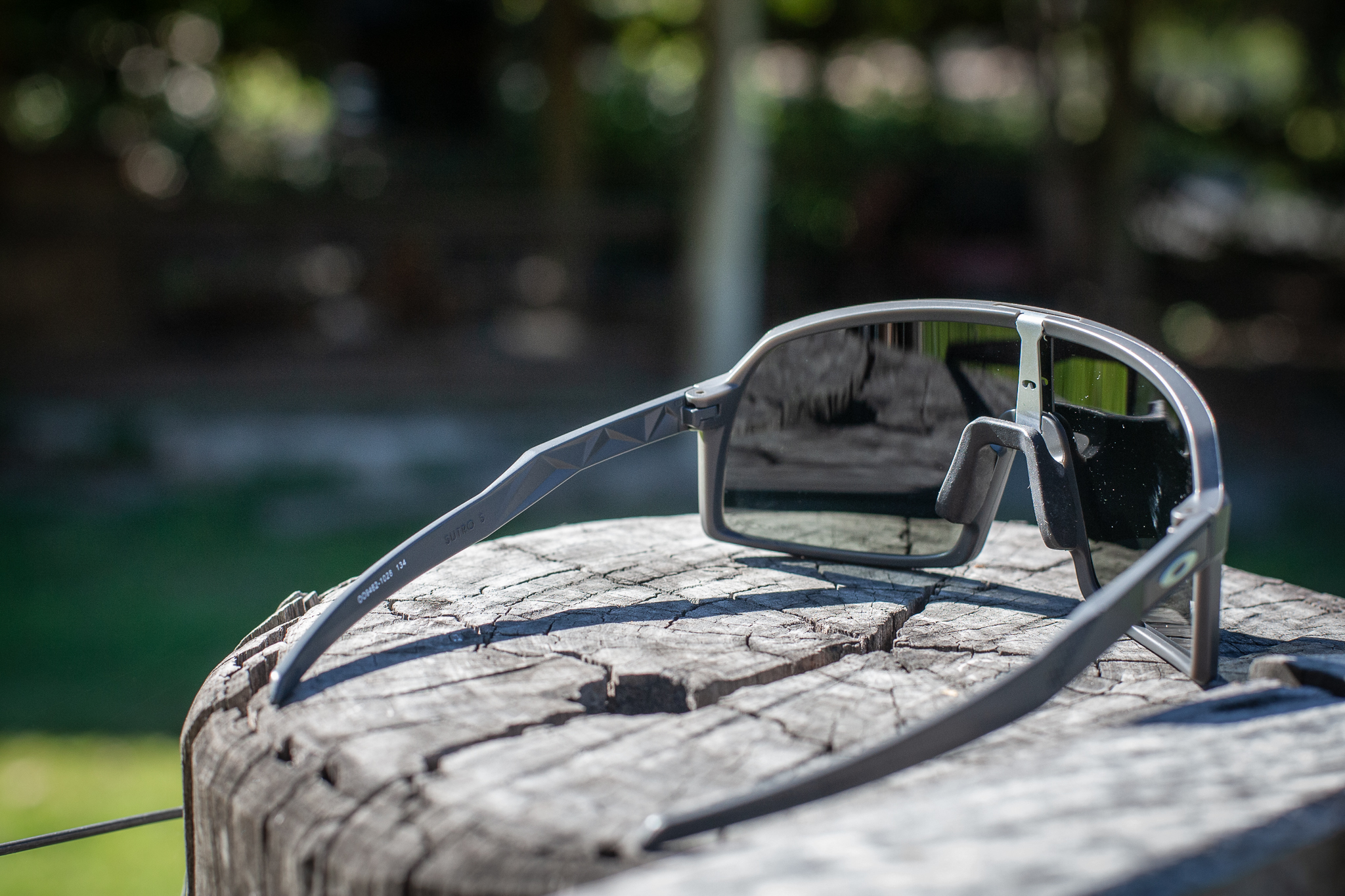
Oakley Encoder Strike
$344 | oakley.com/en-au
Colours: Matte black (tested), matte onyx, gamma green, polished white, matte carbon
Lens options: Prizm sapphire (tested), Prizm trail torch, Prizm 24k, Prizm jade, Prizm field, Prizm black
Weight: 30g
Contact: Adjustable rubber nose piece, suspended temple tips.
The Oakley Encoder Strike is a variation on their classic Encoder range. With a frameless construction and their trademarked ‘O Matter’ temples construction, these glasses are a throwback to Oakley’s Razor Blades, their iconic late 80s glasses.
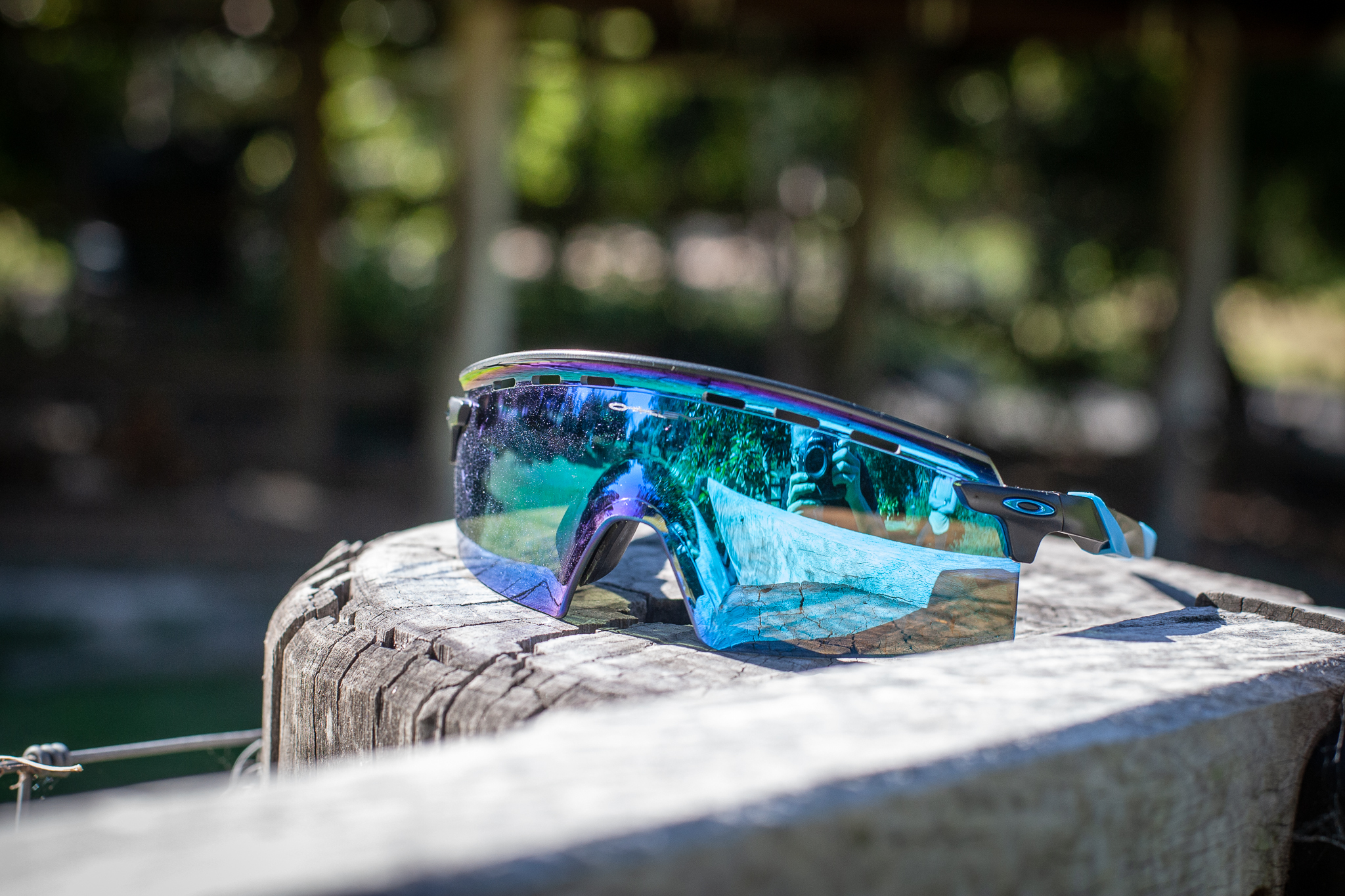
A frameless sunglass, the Encoder Strike features a vented Prizm sapphire lens that curves away from the forehead at the top, and Oakley’s patented Unobtanium ear socks for extra stability with helmet straps. Interestingly, the Encoder series lends from the Oakley Kato range and while the nosepiece is the largest single folded piece on test, it is nestled on the back of the frame while the frame continues to expand below it.
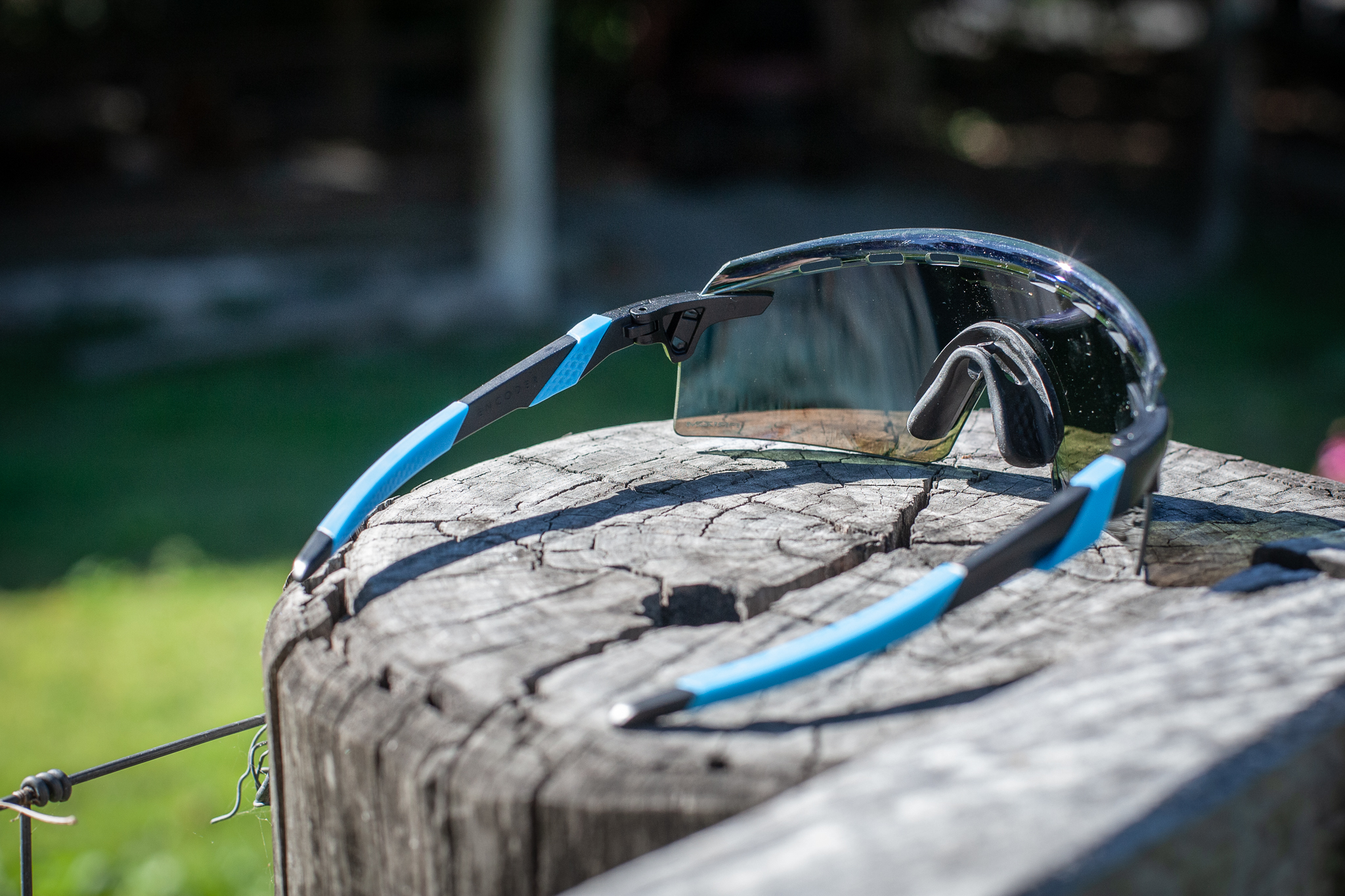
Another category 3 lens, the Prizm sapphire allows 12% light transmission and as such is similar to the Prizm road in light transmission. The base colour of the Prizm sapphire is grey and these were a great option for big sky days on the rail trail, open exposed trails and could be a great fit for open alpine or desert areas. The Encoder Strike fit my narrow face perfectly thanks to the Unobtanium fittings. The arms have a second piece of Unobtaium located further forwards towards the frame that aids stability. The construction on the Encoder is top-notch, and at $344 you can expect a premium product. Thankfully, Oakley has delivered.
Shimano CE Technium – $119.95
Shimano CE Aerolite – $149.95
Heatwave Future Tech – $159.95
Heatwave Lazerface – $139.95
Heatwave Vector – $129.95
100 Percent Norvik – $329
100 Percent Hypercraft and Hypercraft XS – $279/$259
Pit Viper Try Hard – $199.69
Pit Viper Flip-Off – $164.69
POC Elicit – $345
POC Devour – $360
Oakley Sutro S – $239
Oakley Encoder Strike – $344
Magicshine Windbreaker – From $94.95
SunGod Velans – $355
SunGod Vulcans – From $270
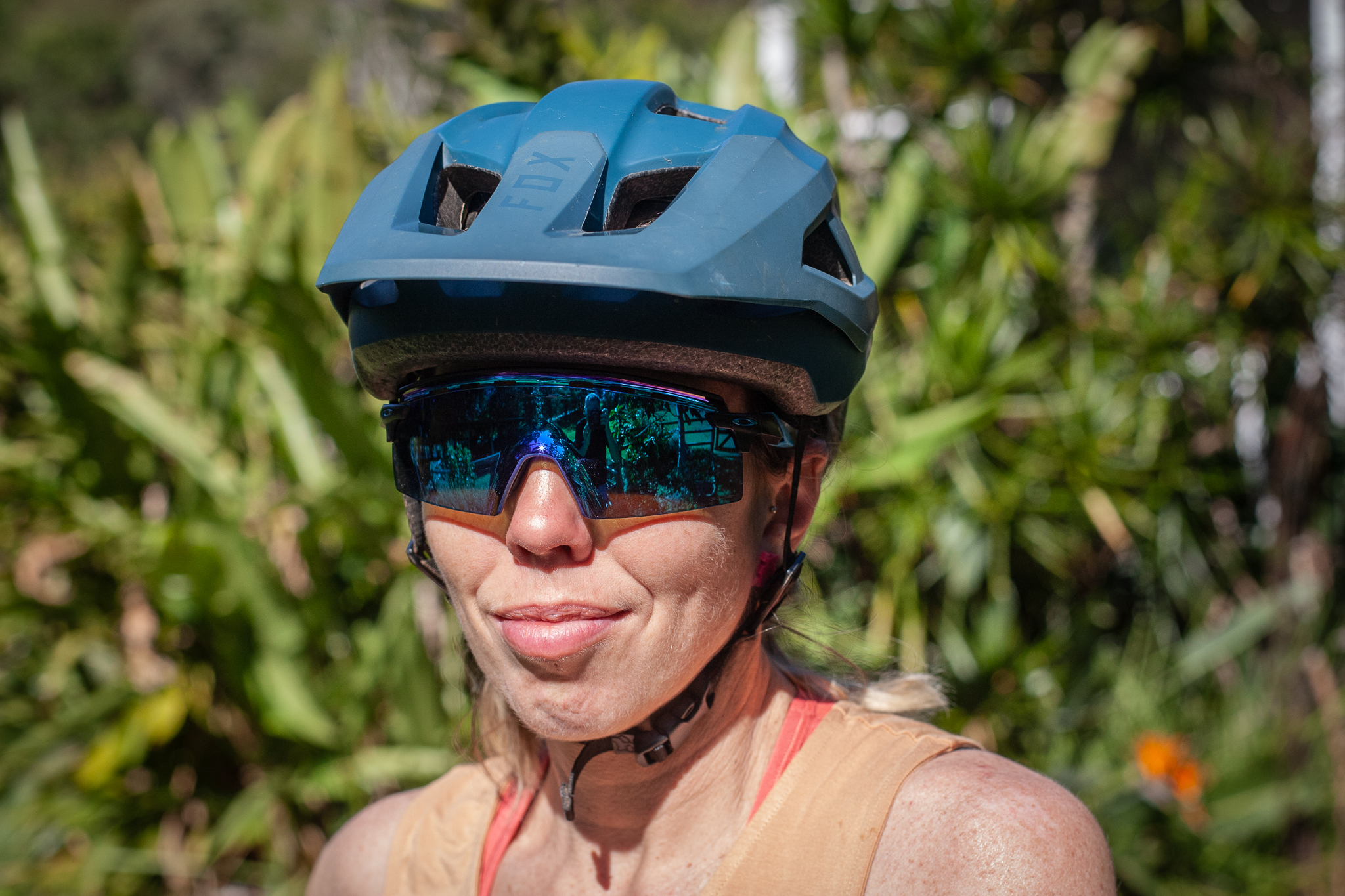
Magicshine Windbreaker
$94.95 (photochromatic) $124.95 (polarised) | magicshine.com.au
Colours: Matte silver grey/grey, and high transparency matte/lake placid blue (tested), matte black/blue, matte silver grey/grey, high transparency matte orange.
Lens options: light grey photochromatic high transparency, gold multilayer mirror (tested), multiple other lens/frame configurations available (see website).
Weight: 30g
Contact: Adjustable rubber nose piece, suspended temple tips.
The Windbreaker sunglasses model is new from Magicshine and complements their range with it’s simplistic, frameless glasses offered in classic, photochromatic and polarised lens options. All lenses offer UV400 protection, protective coating, light weight and durable temples and an ultra-grip adjustable rubber nose piece for a customised fit. Small ventilation slits at the bottom lateral margins of the glasses offer extra ventilation in order to avoid fogging while at low speeds.
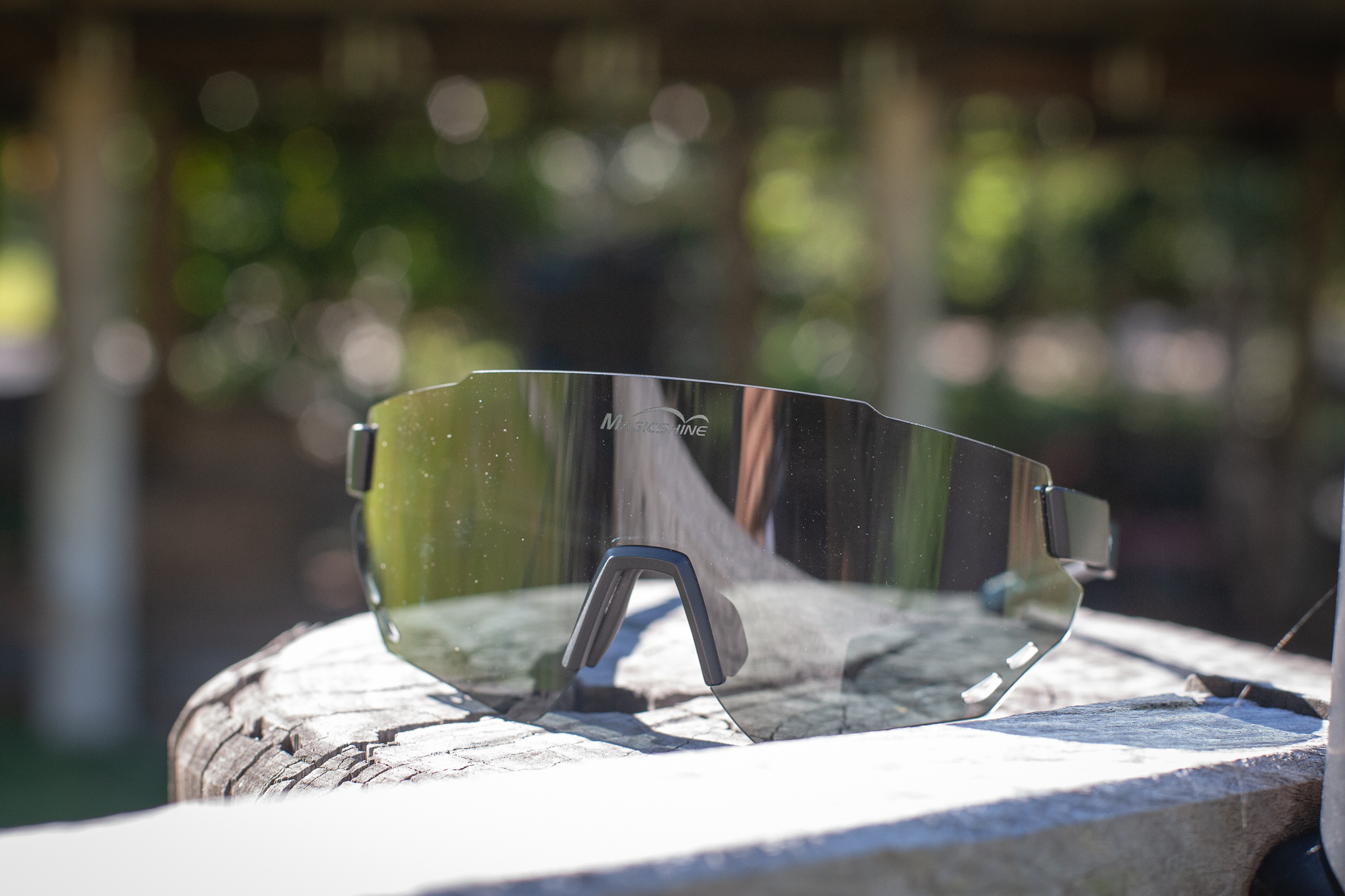
At 30g, these were one of the lightest glasses on test and they were noticeably feathery on the face. There is rubberised lower strip suspended under the temple, allowing a freer fit on the ears. Frameless options tend to offer less rigidity and security and Magicshine weren’t immune from this: the fit was wider and more loose than other half or full-framed options on the test.
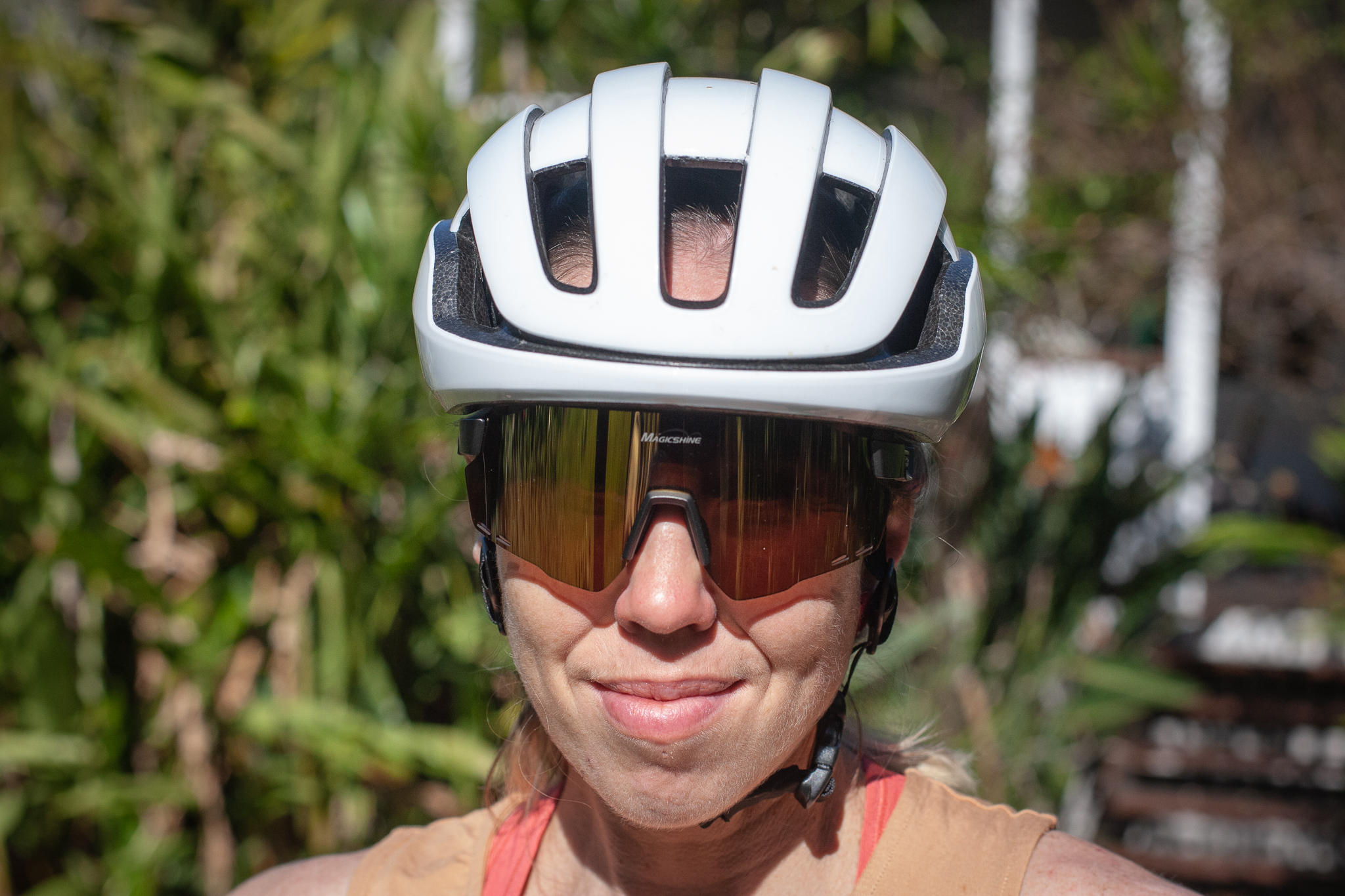
I initially took the photochromatic lens out in early grey light. While the lens clarity was superb in low light conditions, I did experience some slippage on rougher trails. This was partially mitigated by adjusting in the nosepiece on subsequent runs, and our secondary tester noted no slippage issues with his larger face.
The photochromatic option offered a near-clear grey lens that darkened marginally in high light conditions, making it a great option for early or late rides or in heavily forested areas. Alternatively, the gold multilayer mirror lens performed similarly to the POC Elicit’s violet gold mirror: not quite offering the same level high-definition contrast as other trail lenses but still a solid performer for dappled or slightly brighter trails, or for rides that transition between open and dappled trails (or transitioning between the trails and a commute, for example).
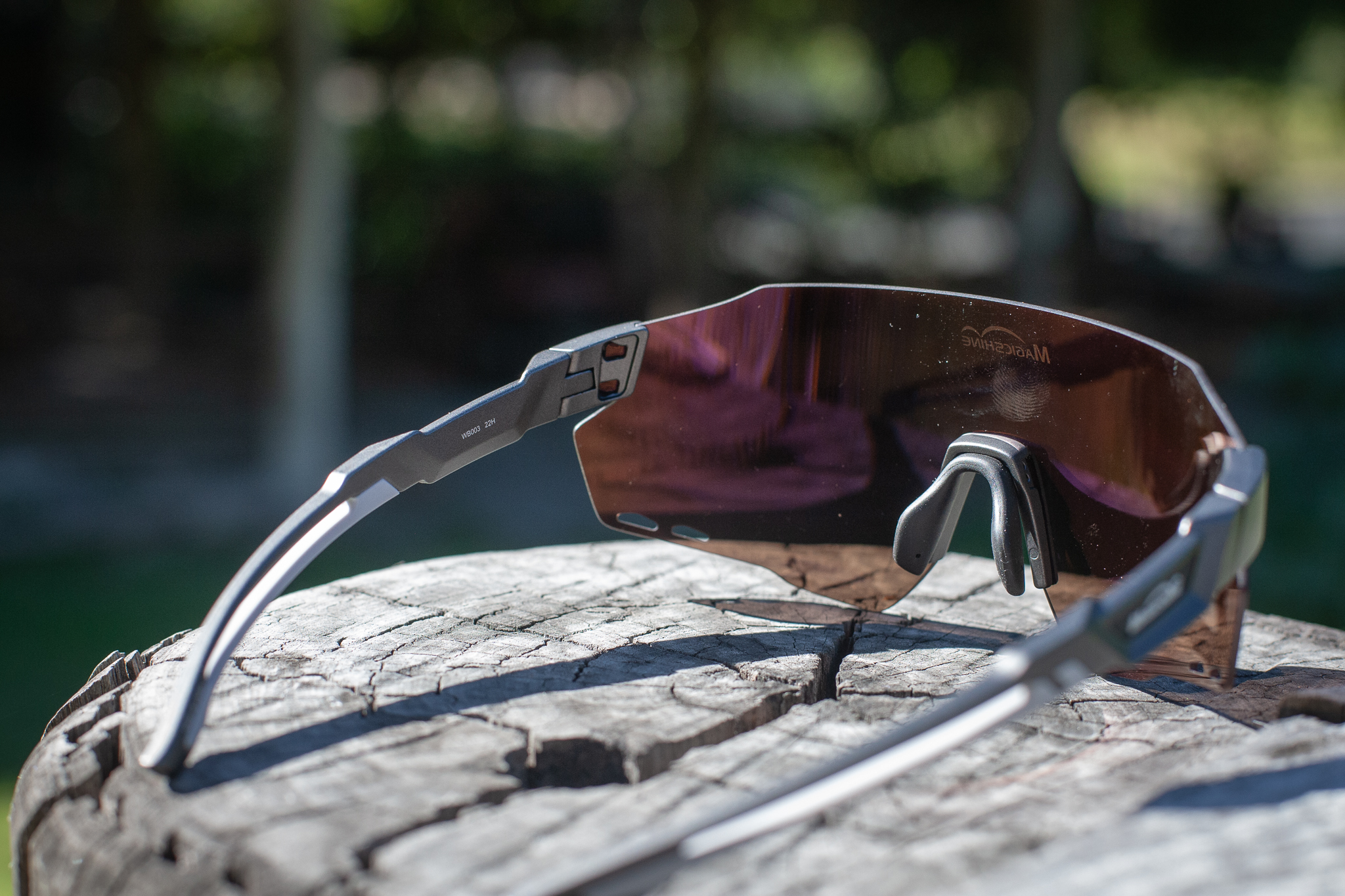
Unlike many other’s in the group test, the Windbreaker range doesn’t offer lens or part replacement. However, with classic lens options starting from $69.95 ($94.95 for the photochromatic model and $124.95 for the polarised model) they represent a great cycling-specific entry point into the technical sunglasses market that perform reliably in multiple light conditions.
Shimano CE Technium – $119.95
Shimano CE Aerolite – $149.95
Heatwave Future Tech – $159.95
Heatwave Lazerface – $139.95
Heatwave Vector – $129.95
100 Percent Norvik – $329
100 Percent Hypercraft and Hypercraft XS – $279/$259
Pit Viper Try Hard – $199.69
Pit Viper Flip-Off – $164.69
POC Elicit – $345
POC Devour – $360
Oakley Sutro S – $239
Oakley Encoder Strike – $344
Magicshine Windbreaker – From $94.95
SunGod Velans – $355
SunGod Vulcans – From $270
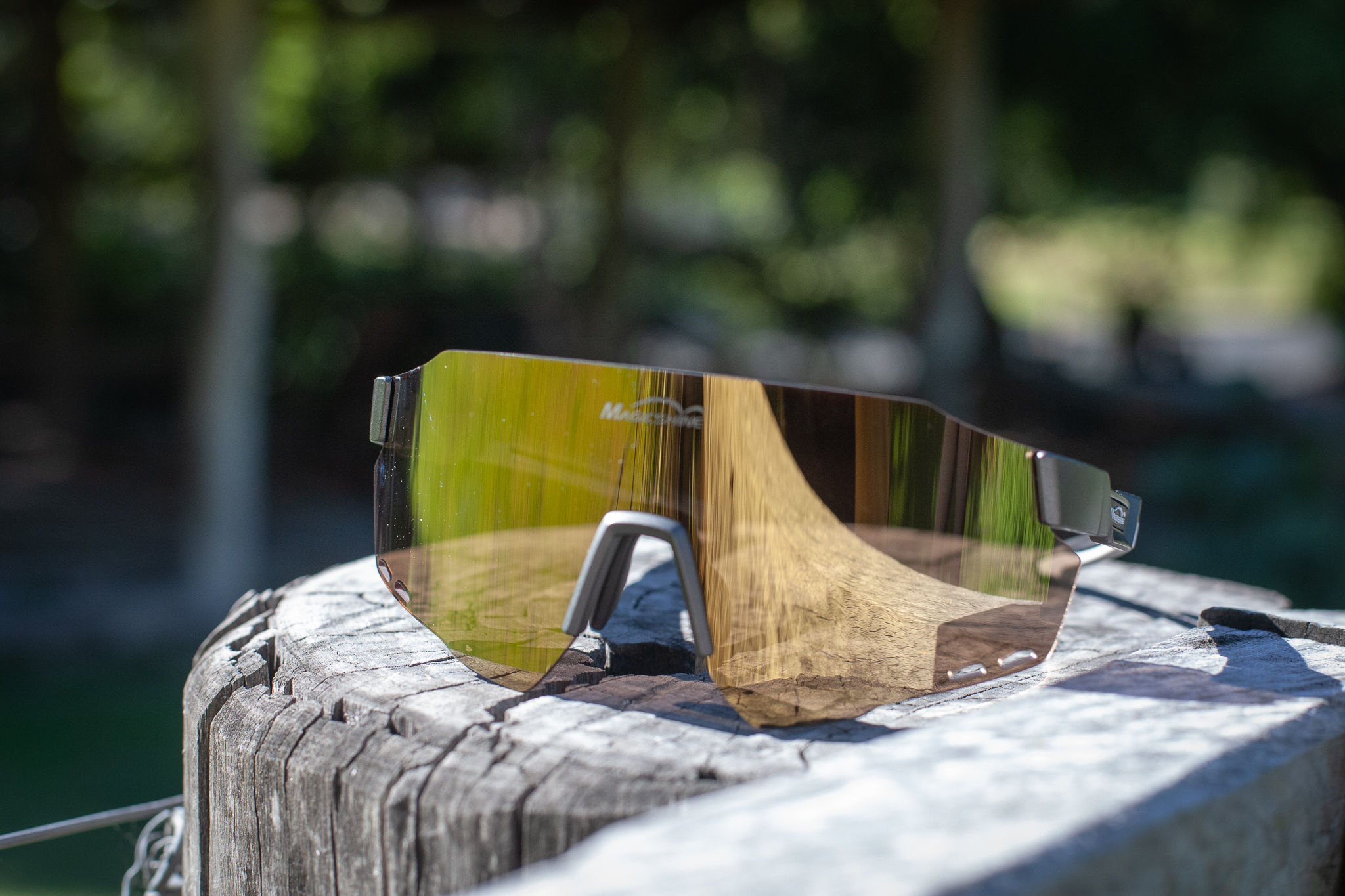
Sungod Velans
$355 (full frame with HV lens) | sungod.co/en-au
Colours: matte black (tested), matte grey, infinite grey, purple/turquoise, red/blue and translucent red.
Lens options: Iris HV blue (tested), silver blue, gold, green, smoke, fire.
Weight: 32g
Contact: Adjustable rubber nose piece, rubberised ear socks.
Sungod are a relatively recent newcomer to cycling sunglasses in Australia. The UK-based brand has a keen focus on sustainability: as a registered B corp they have a responsibility to remain sustainable and carbon neutral.
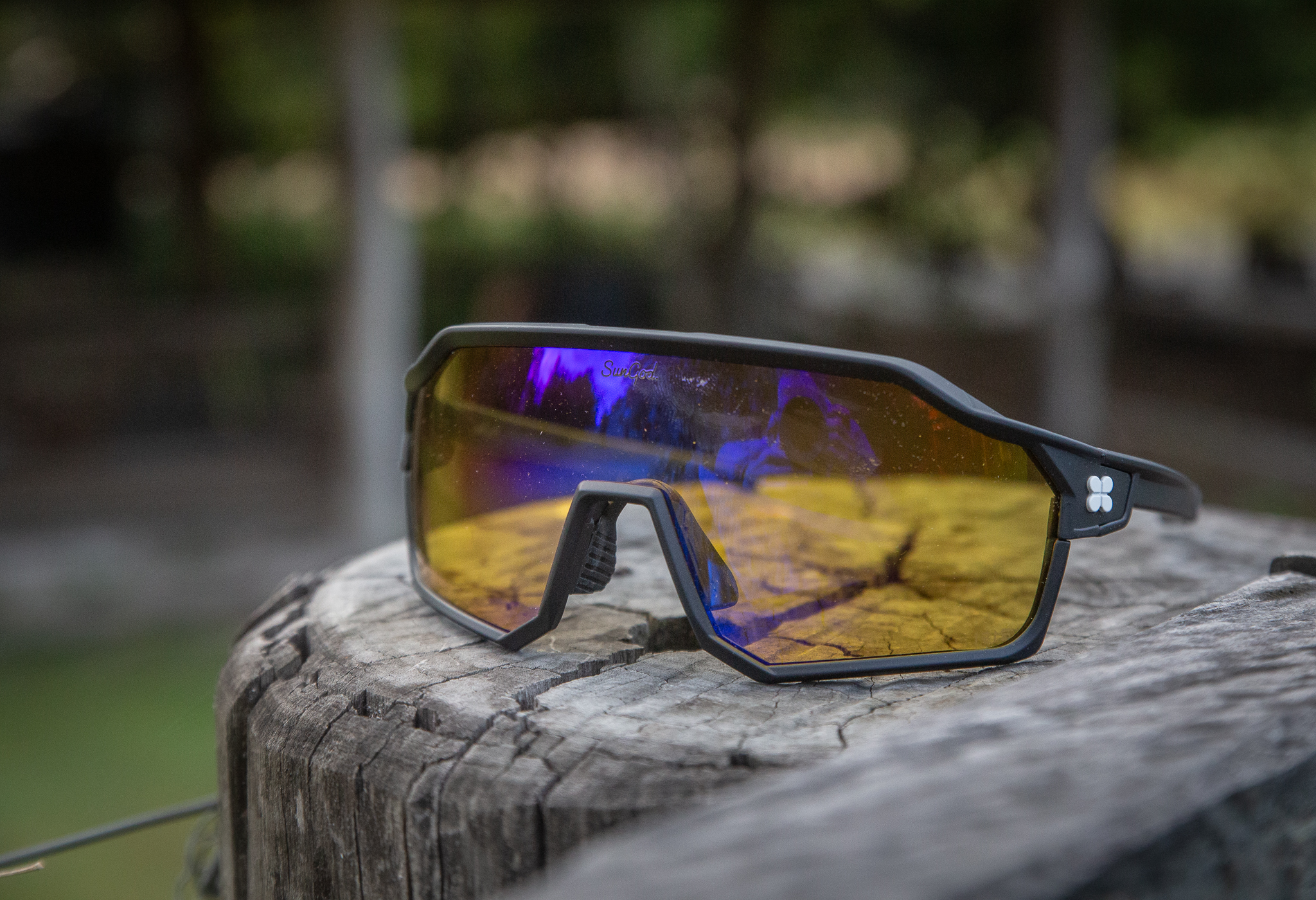
The Velans are described as a small to medium fit on the Sungod website, and have the flexibility to ride as both a full and half-frame model, with the addition of a lens nosepiece for the half frame option. The frame itself allows manual lens changes and is constructed of impact-resistant material. The glasses come with a total of four nosepieces of differing sizes, allowing a wider range of fit options.
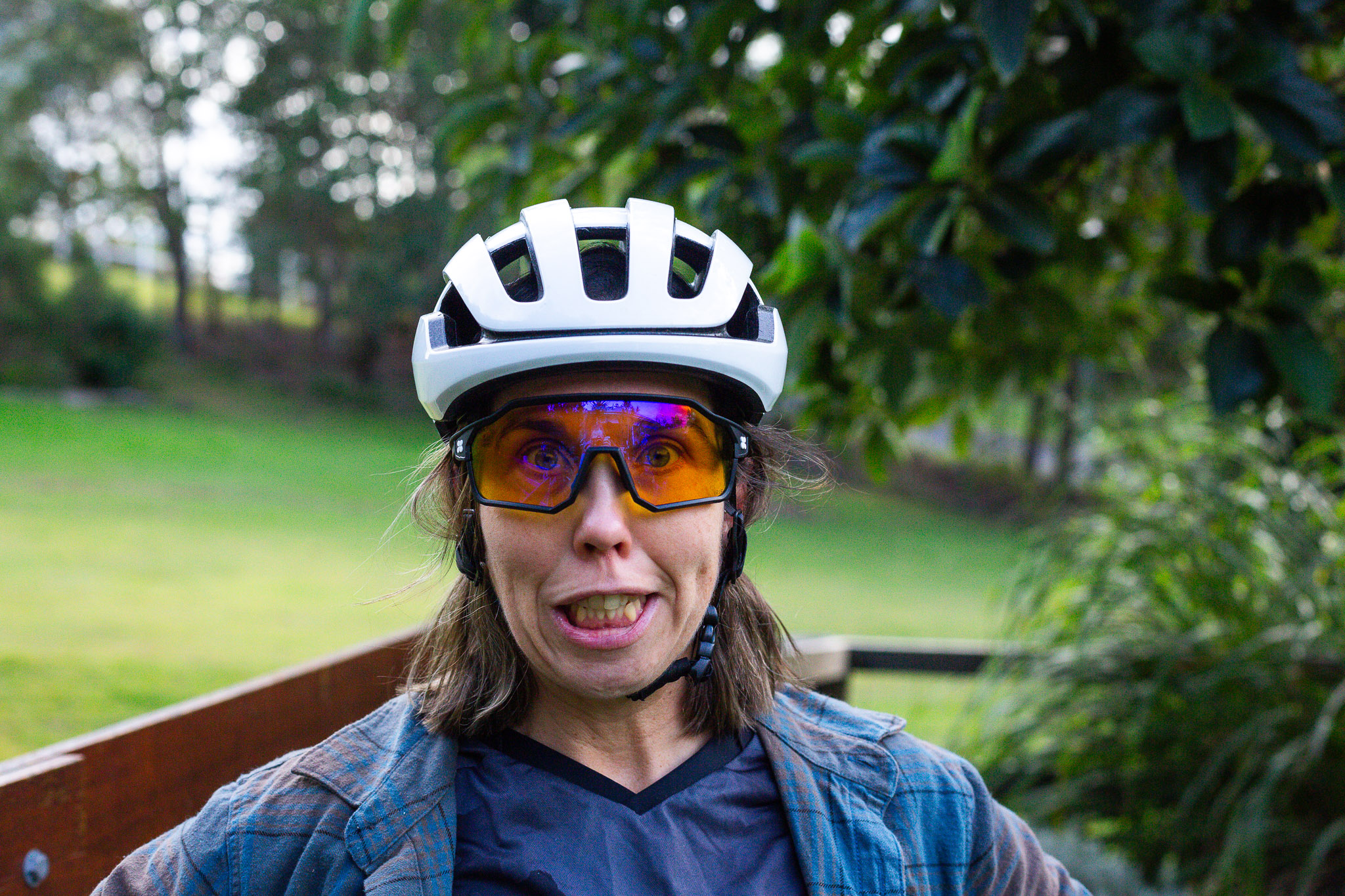
The Velans are extremely secure without any pressure points with zero slippage on any run. The lens I tested is the 8KO Iris photochromic blue, a category 2 lens with 44% light transmission. The lens itself is made from 2mm nylon, offering extreme clarity while being lighter than the polycarbonate used by most gasses manufacturers. The lens is also features a hydrooleophobic coating and scratch resistance.
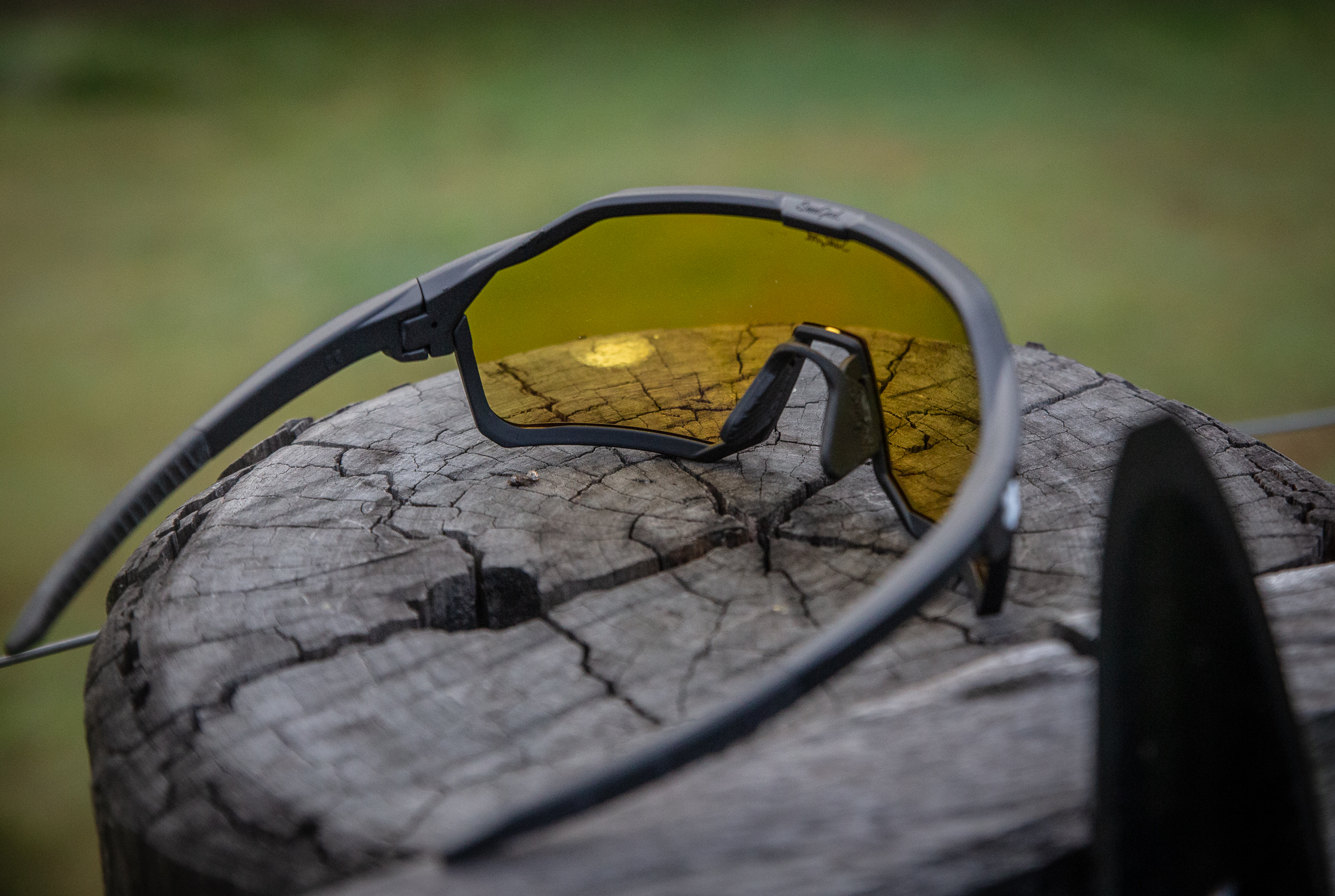
I found these glasses a little ray of sunshine on darker days, they brightened the road or trail and were a go-to on overcast days; more manufacturers should bring back the yellow lens! These wouldn’t be my pick of lenses for brighter trails or very sunny days, however, and while they were solid performers on the trail, the lens lacked the highlighting capacity of the POC and 100% options.
Shimano CE Technium – $119.95
Shimano CE Aerolite – $149.95
Heatwave Future Tech – $159.95
Heatwave Lazerface – $139.95
Heatwave Vector – $129.95
100 Percent Norvik – $329
100 Percent Hypercraft and Hypercraft XS – $279/$259
Pit Viper Try Hard – $199.69
Pit Viper Flip-Off – $164.69
POC Elicit – $345
POC Devour – $360
Oakley Sutro S – $239
Oakley Encoder Strike – $344
Magicshine Windbreaker – From $94.95
SunGod Velans – $355
SunGod Vulcans – From $270
Sungod Vulcans
$270 (half frame option) $300 (full frame option) | sungod.co/en-au
Colours: matte white (tested), matte grey, matte black, matte grey, matte pink, red/blue, purple/turquoise, rainbow.
Lens options: silver blue (tested), gold, green, smoke, fire.
Weight: 34g
Contact: Adjustable rubber nose piece, rubberised ear socks.
Similar to the Sungod Velans, the Vulcans offer the flexibility of a full and a half frame, and we were provided with the half frame option to test. Described as a medium to large fit, the Vulcans are slightly wider temple to temple, and feature a larger frame. The frame itself is slightly more aggressive than the Velans, with a more acutely downward sloping top frame and deeply angled lens. I found the Vulcans to fit snugly in a variety of situations (trail riding, handstands, cleaning under the sink) without any slip, likely aided by the inclusion of multi-sized nosepieces.
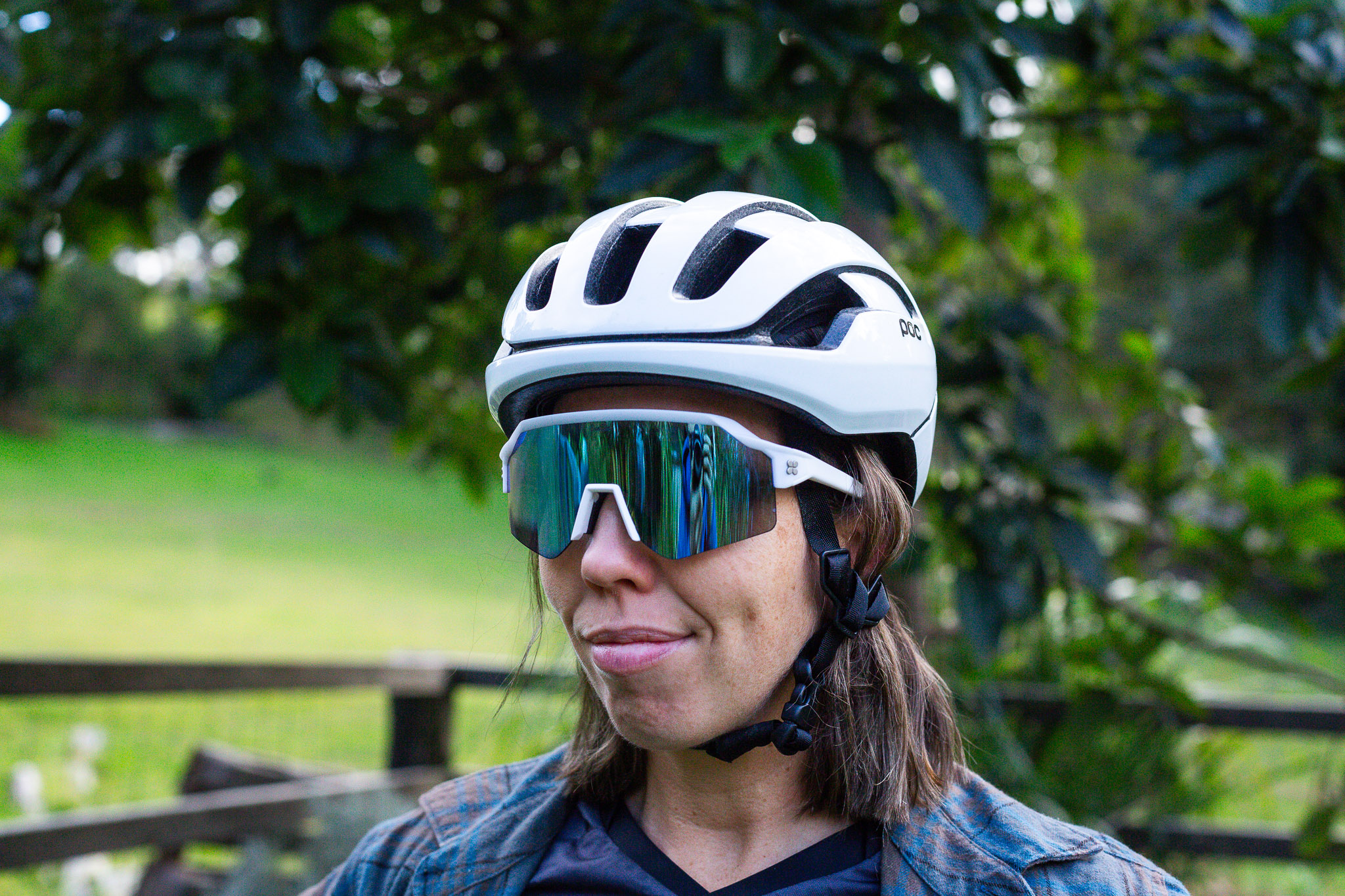
The lens tested was the silver blue, a category 3 lens with 11% light transmission. As such, these were much better for bright sunny days, open trails or time spent in open country on gravel or roads. These became the pick later in testing on longer more open rides, due to their full coverage and stability and comfort at all times. If looking for a specific trail lens for low and dappled light conditions, they are also offered with a Blue HV and rose lens, and all Sungod products can be customised online to ensure you get the perfect sunglasses combination for your riding conditions.
Shimano CE Technium – $119.95
Shimano CE Aerolite – $149.95
Heatwave Future Tech – $159.95
Heatwave Lazerface – $139.95
Heatwave Vector – $129.95
100 Percent Norvik – $329
100 Percent Hypercraft and Hypercraft XS – $279/$259
Pit Viper Try Hard – $199.69
Pit Viper Flip-Off – $164.69
POC Elicit – $345
POC Devour – $360
Oakley Sutro S – $239
Oakley Encoder Strike – $344
Magicshine Windbreaker – From $94.95
SunGod Velans – $355
SunGod Vulcans – From $270
